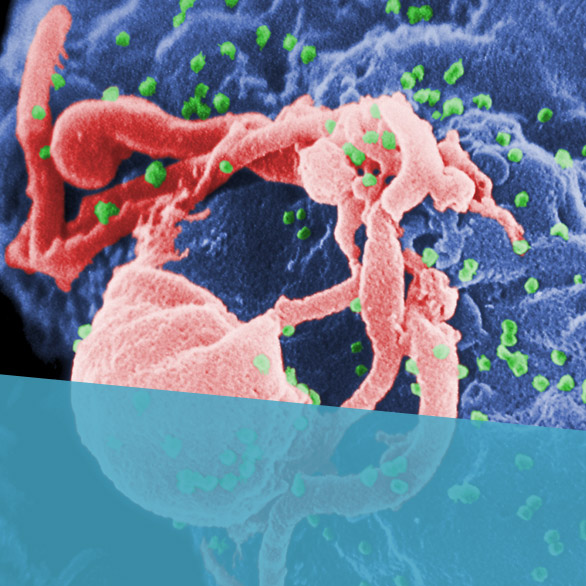

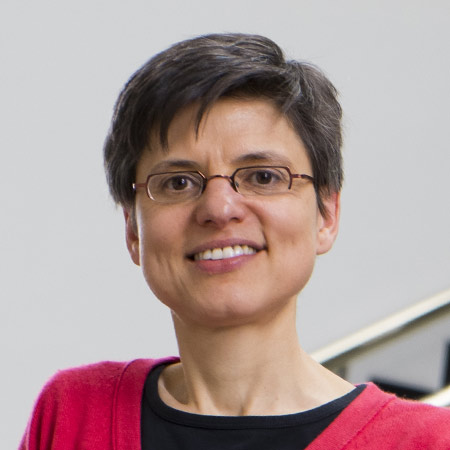
“Science remains the driving force of the reformed ITM, and scientific excellence the yardstick for all its activities.”
Cathy Berx
Governor of the Province of Antwerp
Chair of the Board of ITM
The Board of Governors had a busy year, with six full gatherings and two restricted bureau meetings. We took many important decisions, but the highlight of 2013 was undoubtedly the revision of the bylaws. This final keystone of the structural reforms and strategic reorientations stemming from the ITM2020+ vision had three main aims. First, several adjustments were required to reconcile the legal status of ITM as a foundation under private law with its mission as a publicly funded academic institute. Second, we strengthened the governance structure by redefining the mandate of the statutory board members, and by delegating important decision powers to the Bureau. Third, the director is now directly accountable for all daily matters and delegates specific powers to the three department heads and the general manager; together they constitute the internal Management Board of the ITM. I am very pleased to share these introductory pages with all five of them, as a direct illustration of the decentralised management that should become the main driving force towards ITM 2020+.
The old Board approved the bylaws on June 28th, and on October 23th, the new Board was instated. I was very pleased and honoured to be reappointed as chair, with Prof Minne Casteels and Prof Alain Verschoren as vice-chairs. The new governance structure will bring the Board and Bureau closer to the organisation and thus undoubtedly rebalance the dynamics between the different decision levels. Moreover, the revised bylaws require explicit policy statements about the mission, values and management systems, as well as back-translation in adapted operational rules and regulations. Each of these tasks will be another test for the principles and modalities of ITM2020+, which, in addition, is up for internal and external evaluations in the first months of 2014. At the same time, the political and budgetary environment in Belgium is at a critical junction, while the world at large is changing ever more rapidly.
The most important bylaw of ITM, however, needed no change. Article 3 defines the goal of the foundation as “performing and promoting scientific research, education and service provision”. Science remains the driving force of ITM, and scientific excellence the yardstick for all its activities. ITM2020+ redefines this mission for a 21st century in which North and South share the world as equal partners.
I look forward to very challenging times, in the company of an exceptional board and exceptional staff.
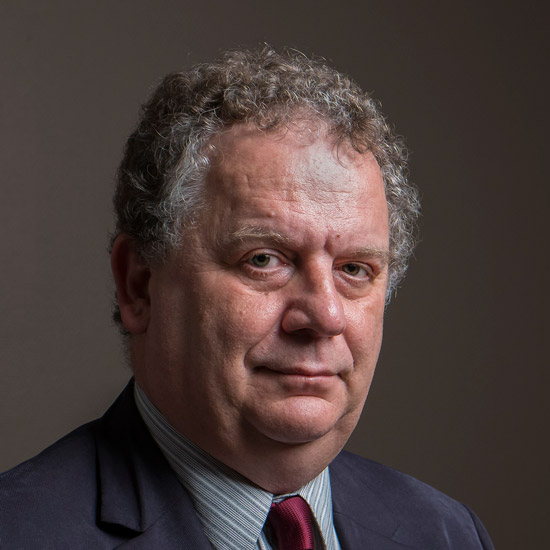
“ITM’s drive towards scientific excellence and its aspiration for mature international collaboration are two sides of the same coin.”
Prof. Dr. Bruno Gryseels
Director
The goals of the ITM2020+ reform plan, on which we embarked in 2012, are relatively straightforward yet complex in their implementation. The strategic reorientation towards scientific excellence for a future “beyond aid” goes hand in hand with a revised organogram, decentralised management and new career structures. Bringing these three main lines in practice simultaneously is a daunting task as such; in our case, moreover, much of the terrain is actually uncharted, as we have to accommodate academic values in a private-law foundation. For the people on the bench or in the field, it is not easy to keep these long-term goals in sight while dealing with changes in daily practice. The new heads of department are the spearheads in a daily endeavour of communication, persuasion and motivation. With great pleasure, we share from now on this platform to report on the progress of the institute.
In 2013, the renewal of the covenant with the Flemish Ministry of Sciences was an important milestone in the implementation of ITM2020+. It required the submission of an ambitious research policy plan in line with ITM2020+ and the recommendations from the 2012 research assessment. The articulation of departmental autonomy with institutional policies was a challenging test to the new ITM and the management board. Similar topics included the introduction of competition for institutional resources, and the recalibration of the relation between management and the Academic Council. Many efforts went also in the renewal of the Framework Agreement Programme with the Belgian Directorate-General for Development (DGD), and in the evolution of its motto “Switching the Poles” to “Collaboration Beyond Aid”. That question remains, indeed, the flip side of the ITM2020+ coin. These debates are healthy but need to be concluded at one point. The internal and external evaluations of ITM2020+ that will take place in the first half of 2014 will be the just occasion to that end.
Meanwhile, staff, students and partners valiantly continued their work in research, training and services provision. Another cohort of excellent masters joined the global health work force. The scientific output grew considerably, reflecting the important investments in young talent over the past decade. We organised more than a dozen international conferences, in Antwerp and abroad. In a pioneering staff reform process, we laid the foundation for a “horizontal” expert career track besides the “vertical” academic track. Just before Christmas, the construction of the magnificent student home and restaurant “Karibu” was finalised. A new communication team produced some amazing quick wins, which I would like to highlight next year except for the new format of this annual report. On behalf of all staff, I wish you a pleasant reading and look forward to your reactions.
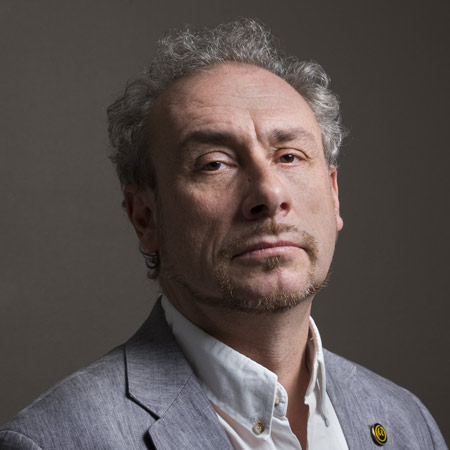
“Studying pathogens from home to genome allows us to respond decisively to new challenges.”
Prof. Dr. Jean-Claude Dujardin
Head of the Department of Biomedical Sciences
In 2013, the Department of Biomedical Sciences (BMS) physically relocated its activities to two main campuses, hosting (i) eco-epidemiology (field oriented), (ii) Pathogens’ System Biology and (iii) Immuno-virology (both mainly laboratory oriented). With the acquired critical mass in these three new research poles, we are now even better equipped to generate improved scientific knowledge on tropical and global infectious diseases.
Several new research projects kicked-off in the department, with grants from the European Commission, the European Research Council and the Bill and Melinda Gates Foundation, among others. These activities involve collaboration with European and Southern partners with whom we have long-standing relationships that continue to grow increasing fruitful. The Flemish Ministry of Economy, Science and Innovation also funded five new research projects on innovative diagnostics for invasive Salmonellosis; African Trypanosome transmission; the role of band 3 protein in Plasmodium vivax invasion; single-cell genomics of Leishmania; and the global spread and transmission dynamics of Mycobacterium ulcerans.
Building on the success of the Genome and Metabolome Initiative (GeMiNi) project, we are running several ambitious Systems Biology projects. Our researchers use the biological treasures ‘sleeping’ in our cryobanks for pathogen diversity studies, as well as run experimental analyses of the complex biological host-pathogen interactions. These studies are of significant societal relevance, because they help us to understand the mechanisms of drug resistance and to develop new diagnostics and medicines.
Within eco-epidemiology, medical and veterinary groups come together to address infectious diseases in a one-health approach. Our research takes a whole system perspective to understand the dynamics of and interactions between pathogen infections, as well as their impact on prevention and disease control. As such, we pay particular attention to the way pathogens, vectors, and human- and animal- host populations interact with one another and with the environment. Additionally, collective actions are being taken to improve the diagnosis and control of diseases with common reservoirs or transmission modes, such as water-related diseases and vector-borne diseases. In 2013, the eco-epidemiology pole also played an important role in various research and control efforts related to emerging pathogens and vectors, both in Belgium (e.g. the introduction of the Asian tiger mosquito), and the tropics (e.g. Opisthorchis spp).
Last, but not least, the immuno-virology pole made considerable progress in the unravelling of the complex biological host-pathogen aspects of HIV transmission and immunotherapy, contributing promising perspectives for anti-HIV drug and vaccine development towards a functional cure. Capitalising on its expertise, immuno-virology is developing a new research line on newly emerging viruses, arboviruses in particular.
In 2013, we merged the epidemiology and disease control tracks of our Master of Science in Animal Health. This was a first step towards a joint master’s programme that is being developed together with ITM’s Department of Public Health and the Department of Veterinary Tropical Diseases of the University of Pretoria (DVTD-UP) in South Africa. The joint MSc will be launched in January 2016 and will focus on tropical zoonotic diseases based on a one-health perspective.
In October, we organised a training workshop on Molecular Epidemiology in Lima, Peru. This was a unique occasion to share our knowledge and practice in molecular epidemiology of tropical infectious diseases with leading researchers and junior scientists in Latin America and to explore new opportunities for joint research. We might extend this successful initiative to other countries and we plan on integrating it into the educational portfolio of the department.
Infectious diseases will continue to pose new challenges to society, but studying pathogens from home to genome allows the Department of Biomedical Sciences to respond decisively.
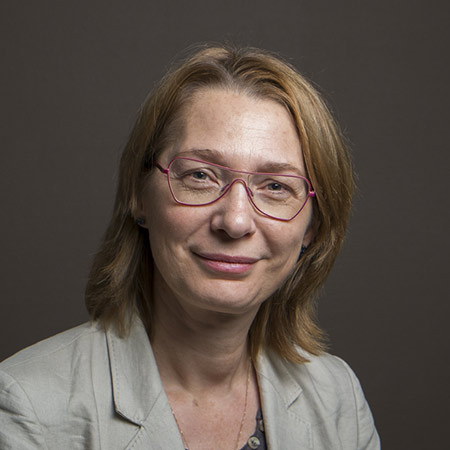
“Whether in Belgium or in the global South, the Department of Clinical Sciences gravitates around patients.”
Prof. Dr. Lut Lynen
Head of the Department of Clinical Sciences
Whether in Belgium or in the global South, the Department of Clinical Sciences gravitates around patients. They are the starting point for our research and education and they remain our core focus during diagnosis, treatment and care.
In 2013, our travel clinic in Antwerp provided advice to nearly 18.000 travellers and administered over 35.000 vaccines to prepare them for a safe journey. These routine activities are constantly underpinned by sound research. One such example is the clinical trial we conducted on a more rapid and less expensive intradermal vaccination schedule for rabies. The preliminary results are promising, which may be good news for the ‘last minute’ traveller on a low budget.
With over 6500 returning travellers having gotten check-ups by our specialists in tropical diseases, sound diagnosis is crucial. In 2013, we further improved our diagnostic capacity, especially for exotic infections such as dengue, rickettsial infection, acute schistosomiasis or strongyloidiasis that are frequently seen in travellers but that still remain difficult to detect. With the development of rapid diagnostic tests, which can easily be purchased by laypersons via the internet, the diagnosis of malaria has become even easier. Yet, our laboratory specialists remain vigilant and conducted extensive research on the quality and reliability of these mushrooming tests. This experience and knowledge fed into many publications and manuals, among which several updated guidelines of the Belgian Superior Health Council.
Throughout the year, our HIV/STI clinic followed up more than 2500 HIV patients, some of them belonging to the vulnerable group of illegal immigrants. We had intense debates with the relevant authorities about the need to guarantee the right to lifesaving treatment for illegal immigrants. We also played a pivotal role in developing the new national AIDS plan with Minister Onkelinx, who took notice of our arguments and case studies. Concretely, two main priorities with regard to HIV testing, established by the minister, are both already broadly applied in two of our projects. Firstly, emphasis on low-threshold HIV and STI testing centres such as ITM’s Helpcenter. Secondly, decentralised and demedicalised HIV screening such as is practiced in our pilot project Swab2Know, which uses a self-administered oral swab to detect antibodies against HIV in the saliva . This successful research project will be replicated in several European countries in the years to come.
As a centre of excellence in AIDS care, the clinic contributed new scientific findings on antiretroviral treatment through clinical trials both for HIV and hepatitis C. We also take part in START, a large international trial that investigates the optimal time to initiate antiretroviral treatment. The results of this trial will be decisive in adapting international treatment guidelines.
Concerning our efforts for patients worldwide, we narrowed the knowledge gap on opportunistic infections in HIV and the diagnosis and management of tuberculosis and kala-azar through research collaborations in Cambodia, Ethiopia, Burkina Faso, DR Congo, South Africa and Vietnam. Driven by scientific curiosity and human compassion, one of our senior professors went on a quest to Uganda and South Sudan in an attempt to unravel the mysterious, but deadly nodding disease. Growing antibiotic resistance, a major threat in Belgium and the world at large, is also slowly revealing its devastating effects in low-income countries. This calls for extensive research and evidence to adapt existing guidelines. Researchers from our department, together with several of our southern partners, are breaking ground in this largely unexplored field.
In 2013, lots of time and energy went into restructuring the postgraduate course Tropical Medicine for Bachelors in Nursing and Midwifery, and we expanded our e-learning portfolio by redesigning the Short Course in Clinical Research and Evidence-based Medicine as a blended course. We conducted field courses on good clinical practices and good clinical laboratory practices for practitioners from the global South in collaboration with partner institutions. For the first time, the Department of Clinical Sciences also joined the Emerging Voices for Global Health (EV4GH) training, held in Cape Town in December 2013.
Research in the field of tropical and global infectious diseases is, today, more important than ever. And we are thoroughly aware of the consequences globalisation, climate change, migration and (medical) tourism may have on the patients we care for in Belgium and abroad. In the Department of Clinical Sciences, we put the patient first.
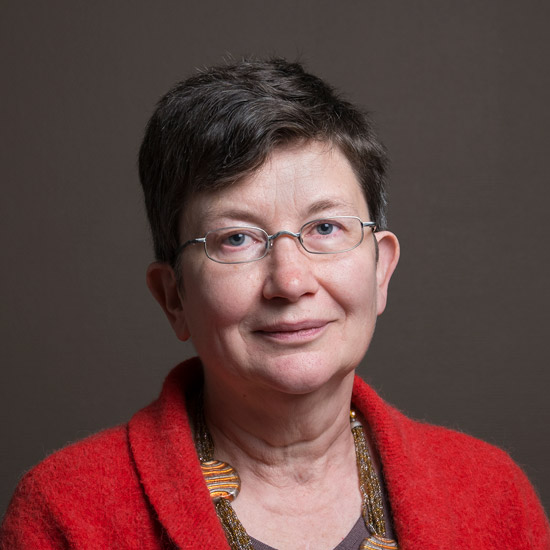
“The new structure of the Department of Public Health gives us more leverage to produce and share knowledge on health care worldwide.”
Prof. Dr. Marleen Boelaert
Head of the Department of Public Health
In the Department of Public Health, we look at health issues at population level and strive to increasingly contribute to improving health care in developing countries by generating new knowledge and sharing it through innovative knowledge management tools.
In 2013, we reorganised the 12 departmental units into 5 thematic research groups, each with a defined academic portfolio: Health Systems Management (HSM); International Health Policy and Financing (IHPF) ; Woman and Child Health (WCH); Epidemiology and Control of Tropical Diseases (EPITROP) and HIV and Sexual Health (HSH). Five incubators of new ideas and initiatives with a commitment to increase research outputs in these domains. This new structure has already started to bear fruit: our approaches to complex health system evaluation are internationally being applied to evaluate the impact of HIV prevention programmes.
This new structure has already started to bear fruit: our approaches to complex health system evaluation are internationally being applied to evaluate the impact of HIV prevention programmes. Moreover, we use mixed-method research approaches to study the control of malaria, dengue, sleeping sickness and kala-azar, as well as to evaluate capacity strengthening efforts. The Department of Public Health is also involved in testing performance-based financing models in fields as diverse as maternal health and nutrition, as well as in looking at maternal death from the perspective of the universal right to health care.
But innovation in the Department of Public Health is not limited to research. The QUAMED project is a prime example of social entrepreneurship. QUAMED is a rapidly expanding alliance of stakeholders committed to assuring the quality of medicinal products, which are often below par in low- and middle-income countries. At the end of 2013, participants representing over 60 organisations joined the QUAMED strategic workshop at ITM. Beyond assuring drug quality, QUAMED is also a pilot project about the role innovation can play in global health.
In 2013 we also updated our educational portfolio to offer students from around the world a top-class academic experience in public health. We restructured our Master in Public Health and organised the first edition of the revamped postgraduate course in Tropical Medicine for nurses and midwifes in collaboration with the Department of Clinical Sciences. We have, additionally, begun to integrate competency-oriented scenarios into our teaching and continually update our modern electronic learning platforms to further enhance students’ learning experience, which has proven particularly valuable for our distance learners.
The Department of Public Health has co-developed several methodological training modules, including short courses on research methods taught in Nepal, DR Congo and at the Pédro Kourí Institute (La Havana, Cuba). We also invested in a PhD training programme at University of Western Cape in South Africa. Our department hosts more than 40 doctoral students and we recently joined the TransGlobal Health programme, which is part of the Erasmus Mundus Joint Doctorate Programme. So far the department hosts one PhD student through this scheme and several departmental projects have been selected in the present round.
Together with our Southern partners, we prepared a new three-year plan in the context of our capacity building programme supported by the Belgian Development Cooperation. New initiatives in this programme include institutional collaborations with University of Western Cape (South Africa), B.P. Koirala Institute of Health Sciences (Nepal), Ecole Nationale de Statistique et de Economie Appliquée (Ivory Coast) and Gadjah Mada University (Indonesia). We will launch new strategic networks on knowledge centres for nutrition and sexual and reproductive health, which will be an additional instrument in the area of knowledge management. We also set an ambitious goal: co-developing an Alliance of Schools of Public Health with international counterparts within the next three years to better capitalise on synergies at the educational level.
The Department of Public Health organised several large events and seminars in 2013, because we are aware that in order to make progress on health issues, the exchange of knowledge among stakeholders is essential. Our flagship scientific event, the 55th ITM colloquium on health systems and control of neglected diseases, was a great success. The event in Bangalore (India) was co-organised by our Indian partner organisation, the Institute of Public Health (IPH) and the Department of Public Health. Over 200 participants shared insights about alliance building and true trans-disciplinarity.
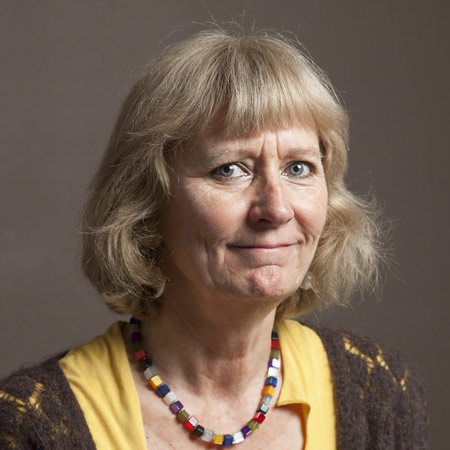
“We contribute to creating the right context for ITM staff to do research, train students and provide care to patients.”
Lieve Schueremans
General Manager
ITM’s supporting services help create the right conditions for academic, medical and scientific staff to do research, train students and care for patients with quality, safety and well-being in mind.
In 2013, we put considerable effort in clarifying the administrative procedures and increasingly focused on our core and expert tasks. These efforts are both part of a process of professionalization in line with ITM’s 2020+ vision as well as a conscious exercise in managing resources responsibly.
Throughout 2013, we helped ITM’s departments get acquainted with the new administrative procedures developed in line with the ISO (International Organisation for Standardization) quality management system.
With regard to human resources, we reached an important milestone in our academic staff policy by introducing ‘job families’, which apply to all academic, medical and scientific positions across ITM’s three departments. This new feature is part of a broader strategy to create an open international recruitment approach that fosters recruitment of the best scientists and provides attractive career options, while maintaining transparency with regard to evaluation and promotion policy.
In 2013, we also introduced a new, user-friendlier financial reporting tool for research projects. Additionally, our financial unit helped to successfully conclude the 2011-2013 development cooperation programme funded by the Belgian Development Cooperation and supported preparations for the 2014-2016 period.
The IT department introduced a new server park, and made several other improvements in 2013 in order to provide our students and staff with an advanced digital environment.
In terms of our structural developments, we finished construction of our new Karibu facilities. Today Karibu hosts 70 student rooms and a brand new restaurant. We also fully renovated ITM’s mycobacteriology lab, which was a daunting task. In fact, our main building, which houses the lab, is a classified monument and research activities continued during the renovation.
Our work is mainly carried out behind the scenes. Yet, a scientific institution cannot excel without sound administrative support. Therefore, ITM’s support services provide continuous assistance, responding to staff’s needs and concerns in order to optimise our service delivery.
Advancing the knowledge of tropical, infectious and poverty-related diseases and access to health care is at the core of ITM’s academic mission. Our innovative and interdisciplinary research focuses on Pathogens, Patients and Populations, our “three P’s”.

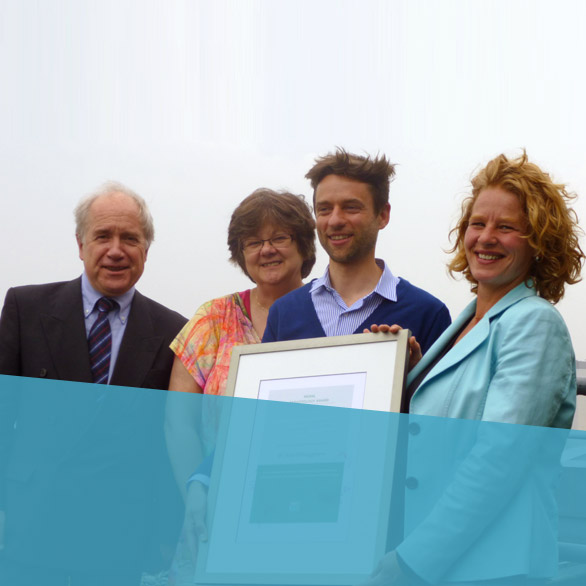
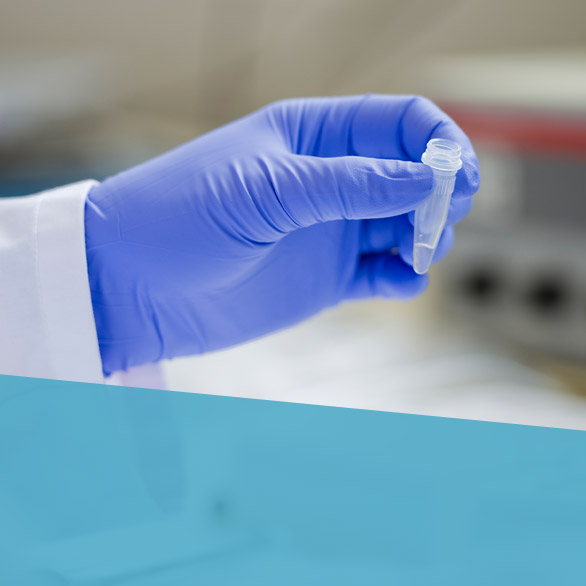
Department of Biomedical Sciences
Systems Biology, Eco-epidemiology, Immuno-virology
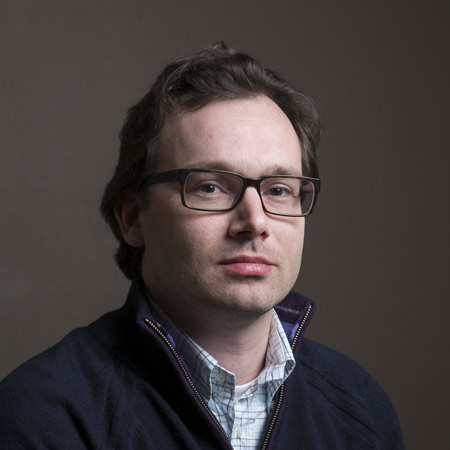
“Our new anti-HIV microbicide is more effective than comparable alternatives currently under study.”
Prof. Dr. Kevin Ariën

In 2013, ITM scientists and colleagues from the University of Antwerp developed a compound that is more effective than dapivirine, the most advanced microbicide currently under clinical trial. What’s more, the compound is also effective against dapivirine-resistant viruses.
A microbicide is a virus-neutralising gel that can be applied vaginally and anally. The microbicide being developed at ITM is a nucleotide reverse transcriptase inhibitor (NNRTI). Once HIV enters a human cell, the virus continues to reproduce itself. Early in this phase, viral RNA is copied into DNA using an enzyme called reverse transcriptase. This viral DNA copy is then integrated into the host cell DNA. NNRTIs block reverse transcription, thus interrupting this process. ITM scientist Kevin Ariën and his colleagues have published their encouraging results in the Journal of Antimicrobial Chemotherapy. Further tests of the new microbicide are foreseen for 2014.
Though HIV/AIDS has transitioned into a chronic disease over the years, it cannot yet be cured. Therefore, prevention is essential. And as long as a preventive vaccine is unavailable, alternative disease control strategies are vital to protect people against HIV and to impede the virus from spreading.
Microbicides can significantly complement existing strategies, which include safe-sex education, condom use, testing and counselling, particularly in parts of the world where HIV transmission is high and condom use is not culturally accepted. In many contexts, they could, for instance, allow women to protect themselves from infection and to essentially take their health into their own hands.
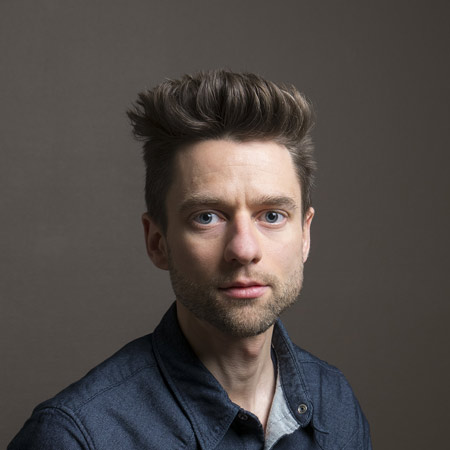
“DNA tests allow for the accurate detection of parasites in blood samples.”
Dr. Stijn Deborggraeve

In June 2013, Dr. Stijn Deborggraeve was awarded the Merial Award for contributing to the development of a new generation of diagnostic tests for leishmaniasis and human African trypanosomiasis (also known as sleeping sickness).
Annually, the Netherlands Society for Parasitology awards the Merial Award to one young scientist from the Benelux who has made an important, international contribution to the field of parasitology.
To improve the process of tracking parasites in the blood, Deborggraeve developed new techniques that specifically identify the parasites’ DNA. After the development phase, he coordinated various evaluation studies of the new diagnostics in Africa and South America.
Sleeping sickness and leishmaniasis are caused by single-celled parasites and together are responsible for thousands of deaths each year. And, despite the fact that these tropical diseases take a considerable toll on the health and economy of the general population, they are among two of the most neglected diseases in the world.
In 2009, Deborggraeve received a doctorate from the University of Leuven for his research conducted at ITM. Successively, he participated in a one-year research exchange with the University of California Santa Barbara. Currently, Deborggraeve is a post-doctoral researcher at ITM and, together with national and international colleagues, he continues his work in developing better diagnostic tests for tropical infectious diseases.
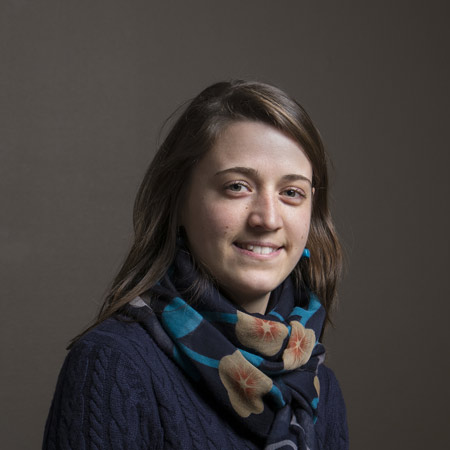
“Deciphering the biological mysteries of a parasite genome, is like being a genetic detective.”
Eliane Tihon

Spearheaded by the successful sequencing of the Leishmania donovani parasite, in 2013 ITM expanded whole genome sequencing to several other pathogens. This laboratory process defines the complete DNA sequence of an organism's genome in one go, which enables the creation of detailed biographies of the course of a pathogen’s life. These manuals are vital to decipher microbes’ remarkable adaptive skills and to develop new diagnostics and medicines.
The importance of gathering genetic information on parasites causing infectious diseases cannot be stressed enough. Neglected tropical diseases in particular, such as Buruli ulcer, leishmaniasis and sleeping sickness in humans and in cattle, still hold plenty of secrets. And despite affecting large segments of general populations, namely poor, vulnerable groups, few efforts are invested into research to develop new diagnostic tools and cures.
ITM continues to build upon more than a century of expertise in the fight against neglected diseases and our Department of Biomedical Science plays a leading role in pathogen research. Our collections of strains are well-documented and, unlike most collections, are based on large cohorts of patients. ITM’s role as supranational reference laboratory for various pathogens is yet another indication of our recognition as an institute that prides itself in its high level of expertise and quality analysis.
In 2012, ITM scientists collaborating with the Sanger Institute sequenced a collection of pathogens causing visceral leishmaniasis or “kala-azar”, Leishmania donovani. They did so under the Genome and Metabolome Initiative (GeMiNi) project, supported by the EU, the Flemish Ministry of Science (EWI) and the InBev Baillet Latour Foundation. This paved the way for whole genome sequencing on the mycobacteria causing tuberculosis (Mycobacterium tuberculosis) and Buruli ulcer (Mycobacterium ulcerans). ITM scientists will also apply this procedure to the Plasmodium parasite, which causes malaria. Whole genome sequencing is also on the agenda for our international cooperation programme, which is supported by the Belgian Development Cooperation, and will first take place in Peru, where our partners will soon start sequencing Leishmania braziliensis.
Since 2013, we have also been unravelling the DNA sequence of Trypanosoma congolense. Spread by the tsetse fly, this pathogen causes sleeping sickness in cattle. Also known as nagana, this devastating disease is responsible for the deaths of millions of cattle in Sub-Saharan Africa. Aside from its detrimental economic impact, this disease also threatens human food production, as oxen play an important role in farming.
Isometamidium Chloride (ISM) is currently used to counteract T. congolense infection in livestock, but parasites often develop resistance to this drug. Doctoral student Eliane Tihon is investigating how resistance occurs at the molecular level. For her, DNA sequencing is like slowly unravelling the mystery of a parasite.
The aim of Tihon’s research in the context of TRYRAC, a five-year EU programme on agricultural research development, is to improve control of nagana and to develop a inexpensive tool that farmers can use in their fields to test whether cattle will respond to treatment or not.
Department of Clinical Sciences
Scientists of the Department of Clinical Sciences take the patient as a starting point:
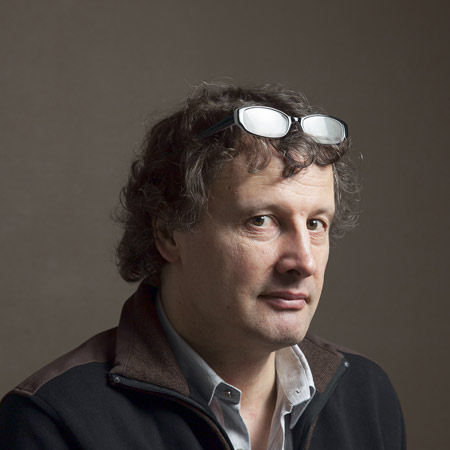
“Sound research is vital to improve rapid tests and to get more people a correct diagnosis and treatment.”
Prof. Jan Jacobs
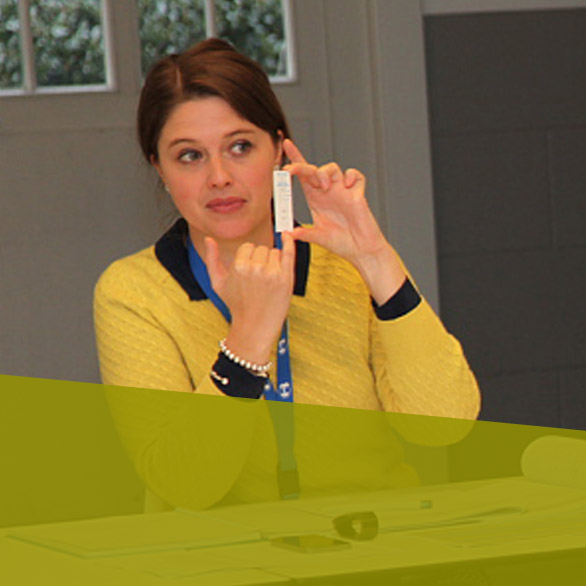
An international group of researchers, coordinated by ITM’s Prof. Jan Jacobs, assessed similarities and differences in design, packaging and test procedure of nearly 60 commercially available malaria Rapid Diagnostic Tests (RDTs). The research was commissioned by the Roll Back Malaria Partnership, which aims at boosting the scaling up of malaria testing in order to achieve the goal of near-zero malaria deaths by 2015.
The researchers found that many RDT shortcomings, such as confusing names, unclear and non-consistent labeling and terminology, variations in design and test procedures can be overcome within a short period of time. What’s more, field observations showed that even small details like the readability of the test instructions can mean the difference between a correct and a failed test.
Manufacturers, donors, country implementers, and regulatory experts, including the World Health Organization (WHO) and the Global Fund, came to Antwerp in December 2013 to discuss the results of the study. They assessed the interchangeability and user friendliness of nearly 60 different RDTs on the market, and generated a list of RDT requirements to meet needs in countries where malaria is endemic.
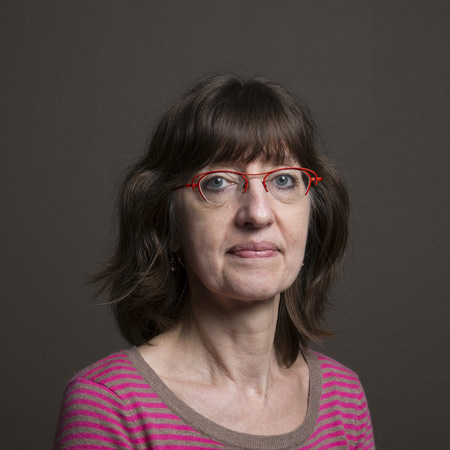
“Combining clinical results with people’s views on unwanted pregnancy and HIV, we can develop better prevention strategies.”
Dr. Tania Crucitti
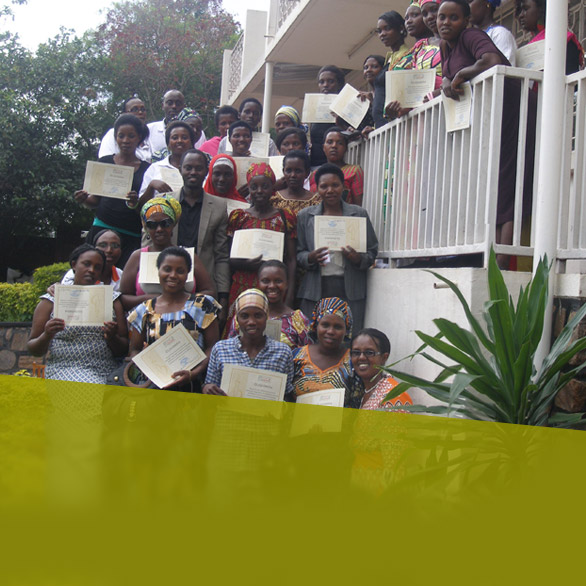
ITM researchers are examining whether vaginal rings could also be used to prevent sexually transmitted infections.
The ‘RingPlus’ study combines a clinical safety evaluation of the contraceptive vaginal ring with social science research on how Rwandan women perceive and adhere to the use of these vaginal rings.
The clinical aspect of this study focuses on how using the vaginal ring affects the normal vaginal microbiome. Little is known about these bacterial communities living in the vagina, but what we do know is that the risk of contracting HIV increases if they are disturbed. ITM researchers from the Department of Clinical Sciences look particularly at the forming of biofilm, a complex aggregation of micro-organisms. This biofilm might be excellent breeding ground for germs, which might interfere with the release of active components once the germs adhere to the vaginal ring.
In the study’s social science component, researchers in ITM’s Department of Public Health aim at identifying and describing the context-specific attitudes and beliefs regarding family, family planning, and gendered norms in order to explore women's beliefs and expectations about a potential multi-purpose vaginal ring. To this end, the researchers use in-depth interviews, focus group discussions and questionnaires.
The ITM-coordinated study, which also involves the University of Liverpool, is run locally by Kigali-based Rinda Ubuzima. In 2013, Rinda Ubuzima enrolled 120 participants in the study. Since then, none of the women have been lost during follow-up due to the fact that enrolment took place in close collaboration with the local community. The first study results are expected in the course of 2014.
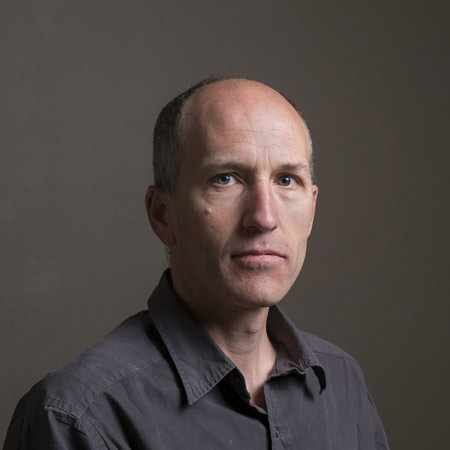
“The importance of a quick and accurate diagnosis of infectious diseases cannot be overstated.”
Prof. Chris Kenyon
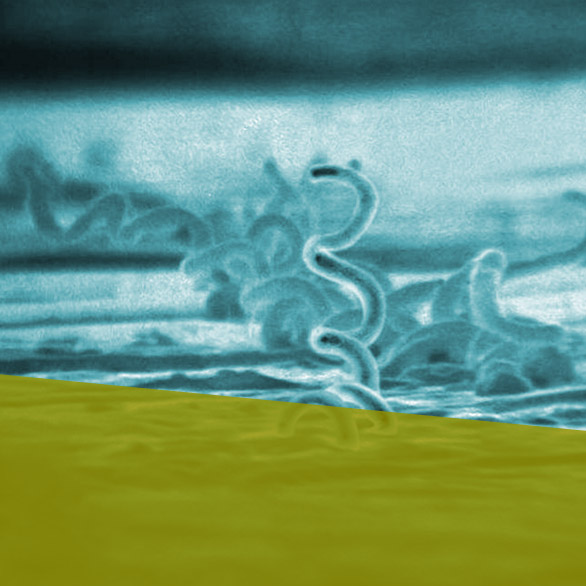
A quick and accurate diagnosis can be lifesaving. Therefore, ITM scientists are searching for new ways to detect neglected tropical diseases and sexually transmitted infections. ITM’s Prof. Chris Kenyon is working on innovative diagnostic tools for a new species of dimorphic fungus and for syphilis.
The HIV pandemic in Sub-Saharan Africa has resulted in an epidemic of opportunistic fungal diseases, some of which are caused by new and emerging fungi about which much remains unknown. In 2013, Kenyon identified a new dimorphic fungus of the Emmonsia genus, the first new dimorphic fungus able to infect humans to be described in over 50 years. The fungus was detected thanks to DNA sequencing in 42 mostly HIV positive patients in South Africa. Kenyon published his findings in the prestigious New England Journal of Medicine. 62% of patients infected by this fungus died – in part due to long diagnostic delays before therapy could be started. He and his colleagues at ITM are now developing a series of diagnostic tools for the rapid diagnosis of this Emmonsia fungus in specialised laboratories, as well as in places where resources and technology are limited.
Syphilis is yet another disease closely related to HIV. Current tests for syphilis have a number of limitations, including how poorly they are able to assess response to therapy and reinfection. In 2014, the Search for a Treponema pallidum Antigen Test (SeTPAT) project will kick-off. Kara Osbak (who is writing her PhD on this topic), Kenyon and colleagues will study the proteomic, immunological, serological and clinical changes associated with pre- and post-treatment of syphilis infection in a cohort of patients in Antwerp. They will attempt to identify a set of target proteins with the highest potential for the diagnosis of the bacterium causing syphilis, Treponema pallidum. The development of a new rapid antigen test based on these proteins would make it easier to diagnose syphilis earlier, would more accurately assess a patient’s response to therapy and would facilitate prompt diagnosis of syphilis reinfection.
Department of Public Health
The department covers health, health systems, epidemiology and control of diseases at the level of entire populations:
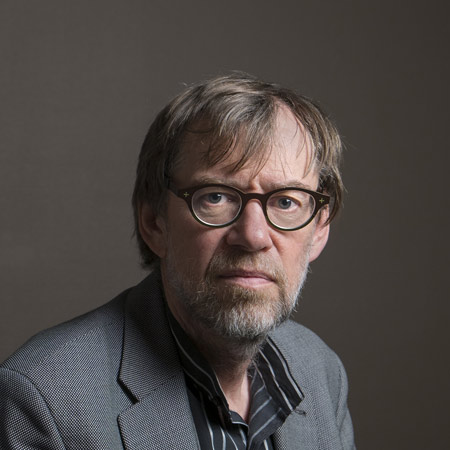
“We aim at giving health care a direct impulse through solutions which are focused on and carried out by local communities.”
Prof. Wim Van Damme
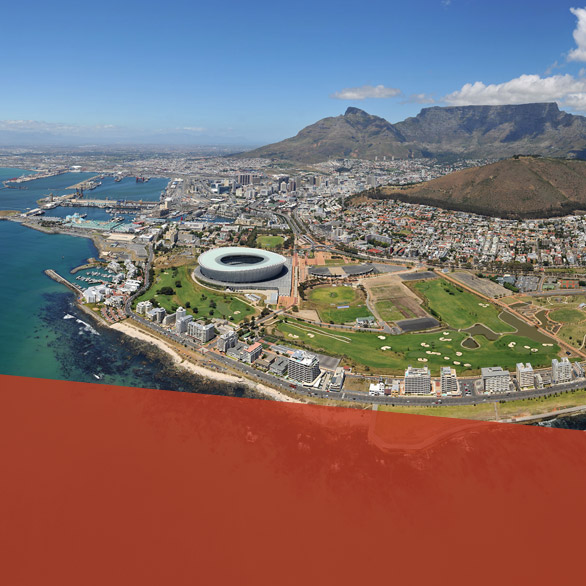
In 2013, the School of Public Health at the University of Western Cape, Cape Town (UWC-SoPH) and ITM strengthened joint efforts on social innovation in health care. ITM Prof. Wim Van Damme took up the South African Research Chair Initiative (SARChI) chair in “Health Systems and Social Change”, which the South-African government assigned to UWC-SoPH. Prof. Van Damme divides his time equally between Cape Town and Antwerp.
The two institutes, which are known for their innovation in healthcare delivery and responding to needs identified in the field, also launched a joint doctoral grant programme for promising young researchers. The programme is particularly tailored to researchers combining study with a job as a health professional. The grant provides them with the opportunity to take time off of work to develop bottom-up community-driven innovations. Bottom-up innovation in health care can range from establishing peer support groups for life-long HIV care to training community caregivers to support an aging population in which chronic diseases are on the rise. In this programme, the researchers travel to both Cape Town and Antwerp where, with the comprehensive support of senior academics and other PhD students, they analyse data and write up their projects.
To date, the lack of exchange of information and experiences with international peers has, in various contexts, hindered the growth of young researchers and, as such, has stifled social innovation. To address this, the doctoral grant programme has also foreseen exchange with researchers in Sub-Saharan African countries and beyond facing similar challenges of epidemiological and demographic transitions.
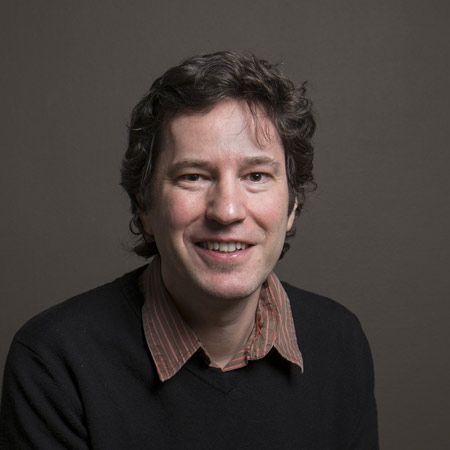
“There currently is a missing link in the knowledge management chain of health policy. I believe that collaborative models such as communities of practice can help to overcome this problem.”
Prof. Dr. Bruno Meessen
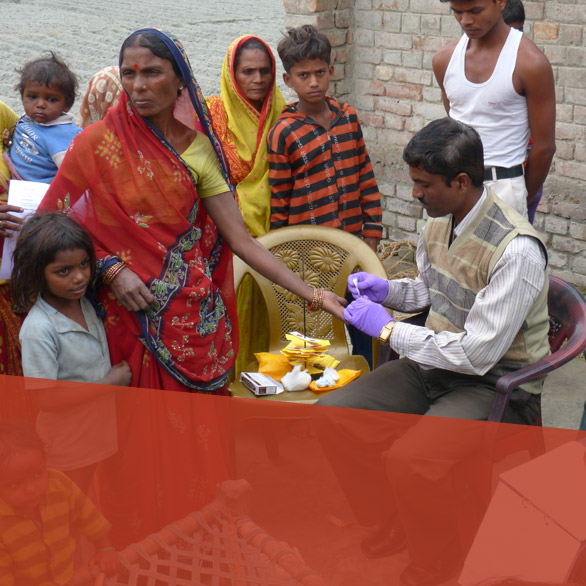
ITM's Department of Public Health has a proven track record of developing activities to improve health care in developing countries. The Community of Practice on PBF (Performance Based Financing), launched in 2010, builds on this tradition. Today, the Community of Practice gathers over 1300 experts, mainly from Africa, to share their findings and experiences on PBF from their respective countries.
PBF is a health care financing strategy that makes a country's health system more accountable by explicitly linking resources to performance. PBF strategies are being piloted in most African countries, which is inspiring several countries on other continents to do likewise. While PBF is attractive for countries looking to speed up progress towards reaching the Millennium Development Goals by 2015, it can also contribute to strengthening health systems in the long term. Several countries, including Benin, Burundi and Rwanda, have already made PBF a key building block of their health policy.
The international experts of the Community of Practice on PBF exchange knowledge through an online forum, a blog and face-to-face events. Lead facilitator Prof. Dr. Bruno Meessen promotes a balanced vision of PBF, because "it can only reinvigorate public health systems as part of a broader vision, not as a rigid doctrine".
Besides the heavy involvement in knowledge management, the Unit of Health Economics headed by Meessen also carries out research on PBF. The team is, among other things, involved in an impact evaluation of PBF in Burundi.
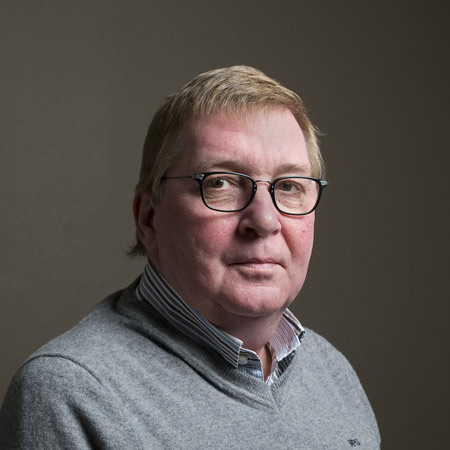
“We need to shake up nutritional research in Africa and turn it upside down.”
Prof. Patrick Kolsteren
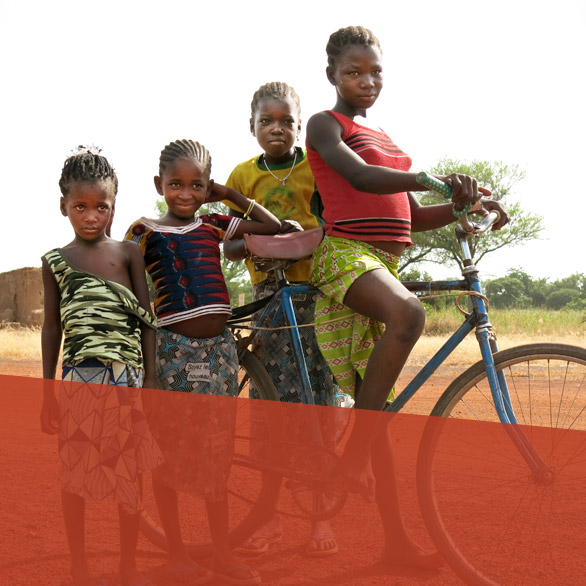
Nutrition programmes in Africa generally focus on treatment and technical solutions, such as vitamin and mineral supplementation. But African researchers and policy makers are asking for more community-based interventions to prevent, rather than simply remedy, nutritional problems. These are the findings of the international EU-funded study, SUNRAY (‘Sustainable nutrition research for Africa in the years to come’), coordinated by ITM, which was concluded in 2013.
Between January 2011 and December 2012, SUNRAY researchers reviewed nutritional research publications on Sub-Saharan Africa published between 2000 and 2010, interviewed 117 nutrition experts in 40 countries in Sub-Saharan Africa, and analysed the outcomes of three SUNRAY workshops in Benin, South Africa and Tanzania.
During the workshops, African experts identified community-based interventions, behavioural strategies and food security interventions to improve nutrition status as priority areas for research. They also concluded that Africa needs to take charge of research priorities. African research is currently mostly descriptive and generates too little new evidence. And most research is driven by an agenda developed outside of Africa.
“We need to shake up nutritional research in Africa and turn it upside down,” says Prof. Patrick Kolsteren, coordinator of the SUNRAY project. According to ITM, the research agenda should be based on needs identified within the African continent, and calls for research proposals by donors should match this agenda, not the other way around.
Findings of the SUNRAY study were published in PLOS Medicine and PLOS One.
 In 2013, six new innovative research projects started, funded on a competitive basis by the Department of Economy, Science and Innovation (EWI) of the Flemish Government. Our SOFI (Secundaire Onderzoeksfinanciering ITG) programme was set up in 2008 with a subsidy of EWI to promote scientific excellence and innovation in ITM’s research programme. SOFI provides institutional, competitive support to research pushing the frontiers of knowledge in fields that are relevant to our institutional and departmental missions.
In 2013, six new innovative research projects started, funded on a competitive basis by the Department of Economy, Science and Innovation (EWI) of the Flemish Government. Our SOFI (Secundaire Onderzoeksfinanciering ITG) programme was set up in 2008 with a subsidy of EWI to promote scientific excellence and innovation in ITM’s research programme. SOFI provides institutional, competitive support to research pushing the frontiers of knowledge in fields that are relevant to our institutional and departmental missions.
Principal Investigator: Stijn Deborggraeve
Budget: € 999.572
Principal Investigator: Chris Kenyon
Budget: € 610.000
Principal Investigator: Jan Van Den Abbeele
Budget: € 599.550
Principal Investigator: Ana Rosanas
Budget: € 475.000
Principal Investigator: Jean-Claude Dujardin
Budget: € 700.000
Principal Investigator: Miriam Eddyani
Budget: € 1.000.000
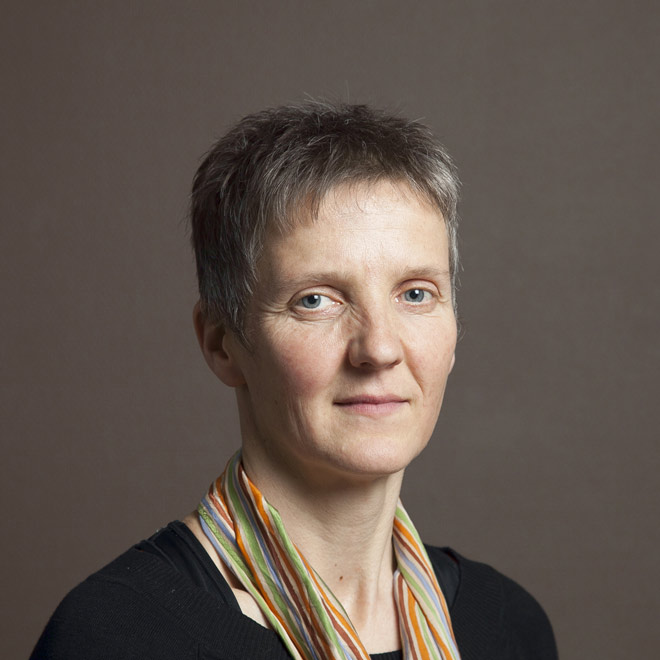
“Strains are vital for research on antibiotic resistance. We are proud that the Noah’s Ark of tuberculosis has been entrusted to us.”
Dr. Leen Rigouts
Since December 2013, ITM hosts the world’s largest public collection of tuberculosis (TB)-strains. The strains are an important tool for scientific research on drug resistance and for the development of new diagnostics and medicines. With antibiotic resistance on the rise globally (including in Europe) the use of such a tool is indispensable.
The WHO special programme for research and training in tropical diseases (TDR) transferred its TB-strains to the collection of mycobacterial strains managed by ITM within the Belgian Culture Collection of Microorganisms (BCCM) consortium. This move makes the public BCCM-ITM collection the world’s most comprehensive public database for TB bacteria.
The Federal Government established the BCCM consortium in 1983 to coordinate the collections of bacteria, fungi and other microorganisms at Belgian institutions. Today, there are seven BCCM-collections, each of which is housed at the institution where they were historically cultivated and continue to be studied.
The material stored in the freezers of our laboratories represent the worldwide diversity of TB-strains, as well as the various patterns of antibiotic resistance. In Antwerp, mapping of the entire genome of these TB-strains is on-going. Researchers from ITM and the London School of Hygiene and Tropical Medicine have already typed 190 strains from the TDR-collection. These efforts increase the strains’ value for fundamental research into vaccines and the development of diagnostic assays and new drugs. The results from the TB-strain typing will be published in 2014.
The strains have already made their mark in the development of a WHO-endorsed assay for diagnosing drug-resistant TB. Given the increasing resistance to drugs, they will become even more valuable in the future.
Through the integration of the BCCM-ITM collection, accessibility and quality assurance of the extensive collection have been improved in compliance with the ISO9001 standard. Small businesses and not-for-profit organisations will continue to have access to the collection through tiered pricing.
Students, researchers, medical doctors and nurses from all over the world come to ITM to specialise in tropical medicine and public health in a stimulating international context.
Our research-focused courses stimulate independent learning and the exchange of ideas, and we make full use of the latest media technologies. We do our utmost to prepare our students for a successful continuation of their careers after their stay in Antwerp.
Our advanced master courses, short courses and PhD programmes focus on tropical medicine and health care in low-resource settings. We have a special regard for neglected diseases and also devote considerable attention to veterinary health care and to diseases spread from animals to humans.

Thanks to our scholarship system, ITM students come from a wide variety of backgrounds. Our Master in Science programmes (MSc, “Master after Master”) allow policy makers, health managers and researchers to enrol at different stages in their careers. In 2013, for the first time, a third of our master students came from non-medical backgrounds.
In 2013, we further restructured our Master (MSc) in Public Health into a single degree with two focuses, ‘Health Systems Management and Policy’ and ‘Disease Control’. This course uses the traditional model of face-to-face learning at ITM. In addition, we introduced a third, more flexible learning track, the Master (MSc) in Public Health - International Health. This modular programme is a tropEd international collaboration.
The Master (MSc) in Tropical Animal Health became a single-track master programme on animal health, merging the former ‘Epidemiology’ and ‘Disease Control’ options. The reorganisation of the current master is a first step towards a joint master programme that is being developed with the Department of Veterinary Tropical Diseases from the University of Pretoria (DVTD-UP). The joint MSc will focus on tropical zoonotic diseases, using a one-health concept, and will be launched in January 2016.

We completely reorganised our postgraduate course Tropical Medicine for Bachelors in Nursing and Midwifery, using the 4C-ID model as a guide (“Four Components – Instructional Design”). We now focus on competency-oriented scenarios, moving away from the traditional classroom model. This focus on real-life cases allows us to integrate all fields of knowledge, skills and attitudes related to a specific professional task. As a result, students are better prepared to deal with challenging real-life situations in the field.

We further expanded our e-learning portfolio by diversifying our 6-week Short Course on Clinical Research and Evidence-based Medicine (SCREM). The course is a mix of face-to-face learning and e-learning. The larger part of the course remains face-to-face, but we plan on shifting the balance progressively towards more e-learning.

ITM offers doctoral training in fields ranging from molecular biology to health systems research in tcollaboration with Belgian and international universities. In 2013, 25 of our PhD students obtained a PhD degree. Currently, 110 PhD students are enrolled at ITM.

Date of public defense: 27 February 2013
Department of Public Health: Unit of Epidemiology and Control of HIV/STD
Date of public defense: 25 March 2013
Department of Clinical Sciences: Unit of HIV/STD
Date of public defense: 28 March 2013
Department of Biomedical Sciences Unit of Veterinary Helminthology
Date of public defense: 4 April 2013
Department of Public Health: Unit of Epidemiology and Control of Malaria
Date of public defense: 4 April 2013
Department of Public Health: Unit of Epidemiology and Control of Malaria
Date of public defense: 22 April 2013
Department of Biomedical Sciences: Unit of Veterinary Helminthology
Date of public defense: 2 May 2013
Department of Public Health: Unit of General Epidemiology and Disease Control
Date of public defense: 2 May 2013
Department of Clinical Sciences: Unit of Tropical Laboratory Medicine
Date of public defense: 27 May 2013
Department of Public Health: Unit of Epidemiology and Control of Malaria
Date of public defense: 10 June 2013
Department of Public Health: Unit of General Epidemiology and Disease Control
Date of public defense: 25 June 2013
Department of Biomedical Sciences: Unit of Veterinary Biostatistics and Epidemiology
Date of public defense: 26 June 2013
Department of Public Health: Unit of Health Policy
Date of public defense: 28 June 2013
Department of Clinical Sciences: Unit of Tropical Diseases
Date of public defense: 5 July 2013
Department of Biomedical Sciences: Unit of Medical Helminthology
Date of public defense: 9 July 2013
Department of Public Health: Unit of General Epidemiology and Disease Control
Date of public defense: 12 July 2013
Department of Clinical Sciences: Unit of HIV/STD
Date of public defense: 12 July 2013
Department of Clinical Sciences: Unit of HIV/STD
Date of public defense: 16 September 2013
Department of Public Health: Unit of Epidemiology and Control of Tropical Diseases
Date of public defense: 25 September 2013
Department of Public Health: Unit of Epidemiology and Control of Tropical Diseases
Date of public defense: 2 October 2013
Department of Clinical Sciences: Unit of Tropical Diseases
Date of public defense: 8 October 2013
Department of Biomedical Sciences: Unit of Immunology
Date of public defense: 14 November 2013
Department of Public Health: Unit of HIV/AIDS Policy
Date of public defense: 29 November 2013
Department of Clinical Sciences: Unit of Tropical Laboratory Mediciine
Date of public defense: 29 November 2013
Department of Biomedical Sciences: Unit of Virology
Date of public defense: 6 December 2013
Department of Biomedical Sciences: Unit of Virology
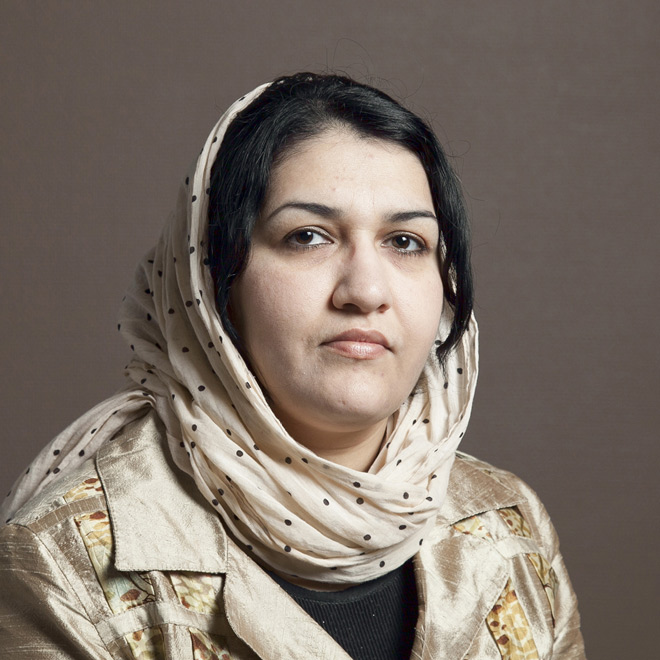
“We all have different backgrounds, sharing our field experiences with each other is so valuable.”
Farzana Maruf
Students from all over the world come to ITM to specialise in tropical medicine, public health and tropical animal health. Thirty-three year old Farzana Maruf from Kabul, Afghanistan, is one of them. Like many ITM students, she came to Antwerp with a very specific mission: she wants to contribute to the improvement of her country’s health care system. Farzana took part in the course ‘Master (MSc) in Public Health - Health Systems Management and Policy’ in 2013.
“I graduated as a doctor from Kabul Medical University. Afterwards I started working in a hospital at the maternity ward. I want to address the challenges women and children face in my country and contribute to the reduction of the high maternal and child mortality rates. I chose the Master in Public Health at ITM to acquire the expertise my country needs.”
Afghanistan has a high maternal and infant mortality rate. It is one of the consequences of the cultural and geographical barriers, as well as of the insecurity in the country. Afghans have limited access to health care services and the country needs well-trained health workers.
“After almost three decades of civil war, my country is ravaged,” says Farzana. “There is an enormous need for preventive care. Our infrastructure was destroyed, institutions fragmented and a basic health care system is non-existent. Education and sanitation facilities are often not fully functional and we lack recognised public health education facilities.”
Farzana was impressed by the teaching methods used at ITM: “I love the quality of teaching and the methodologies ITM teachers use. We have a lot of group assignments and field visits. It helps us absorb the theories. The interaction between the professors and the students is laudable. We all have different backgrounds and share our field experiences with each other. That is so valuable and makes ITM a very good school and learning environment.”

Each year, our medical doctors vaccinate tens of thousands of travellers, and provide care to those who return ill. We share our travel advice with patients, doctors and organisations.
ITM’s policlinic is home to the largest national reference centre for the diagnosis, treatment and care of HIV/AIDS, as well as a low-threshold Helpcenter for sexual health care.
We develop and validate diagnostic tests for infectious diseases and run clinical trials to find new or better medication. Thirteen ITM laboratories are recognised as national or international reference centres.
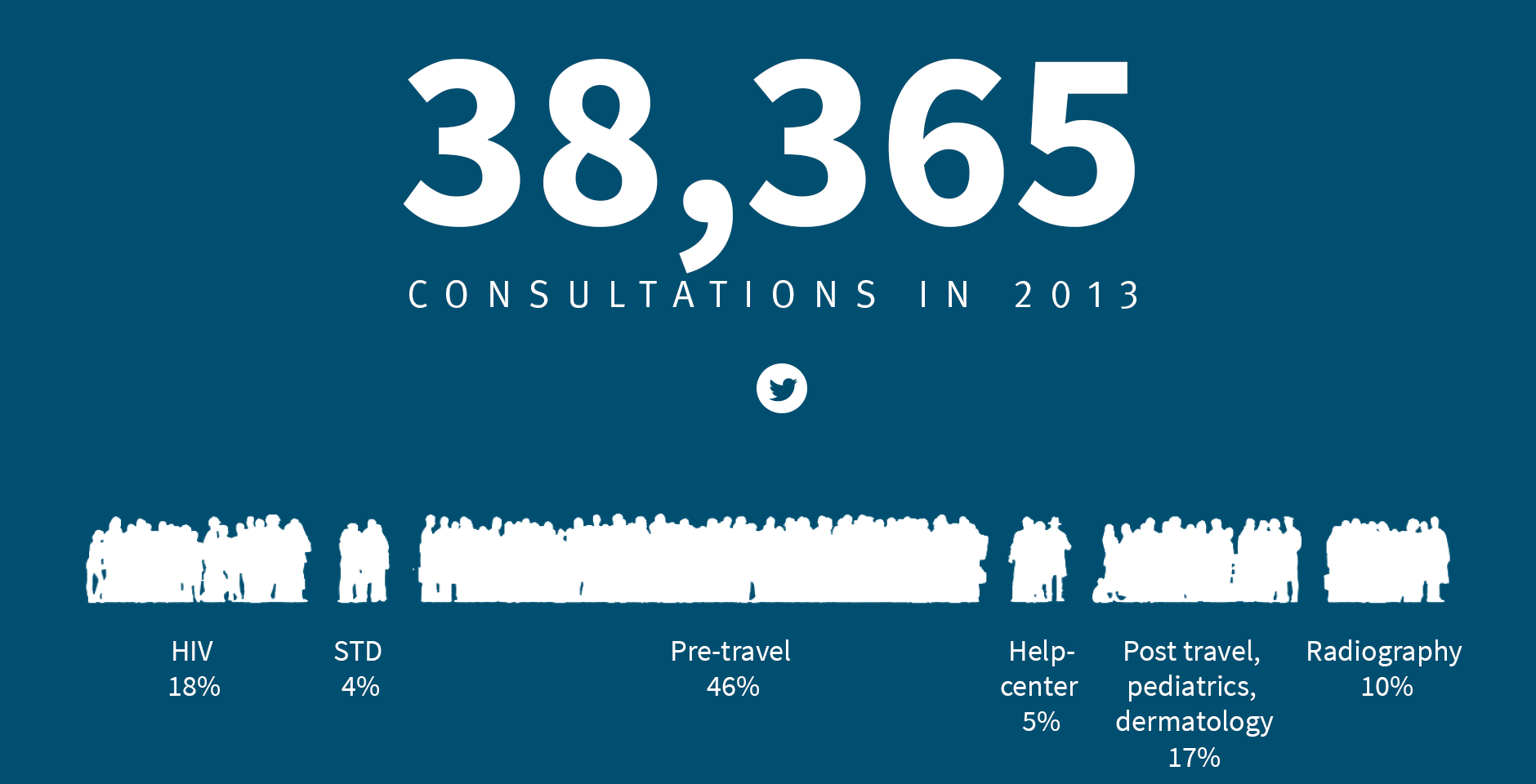


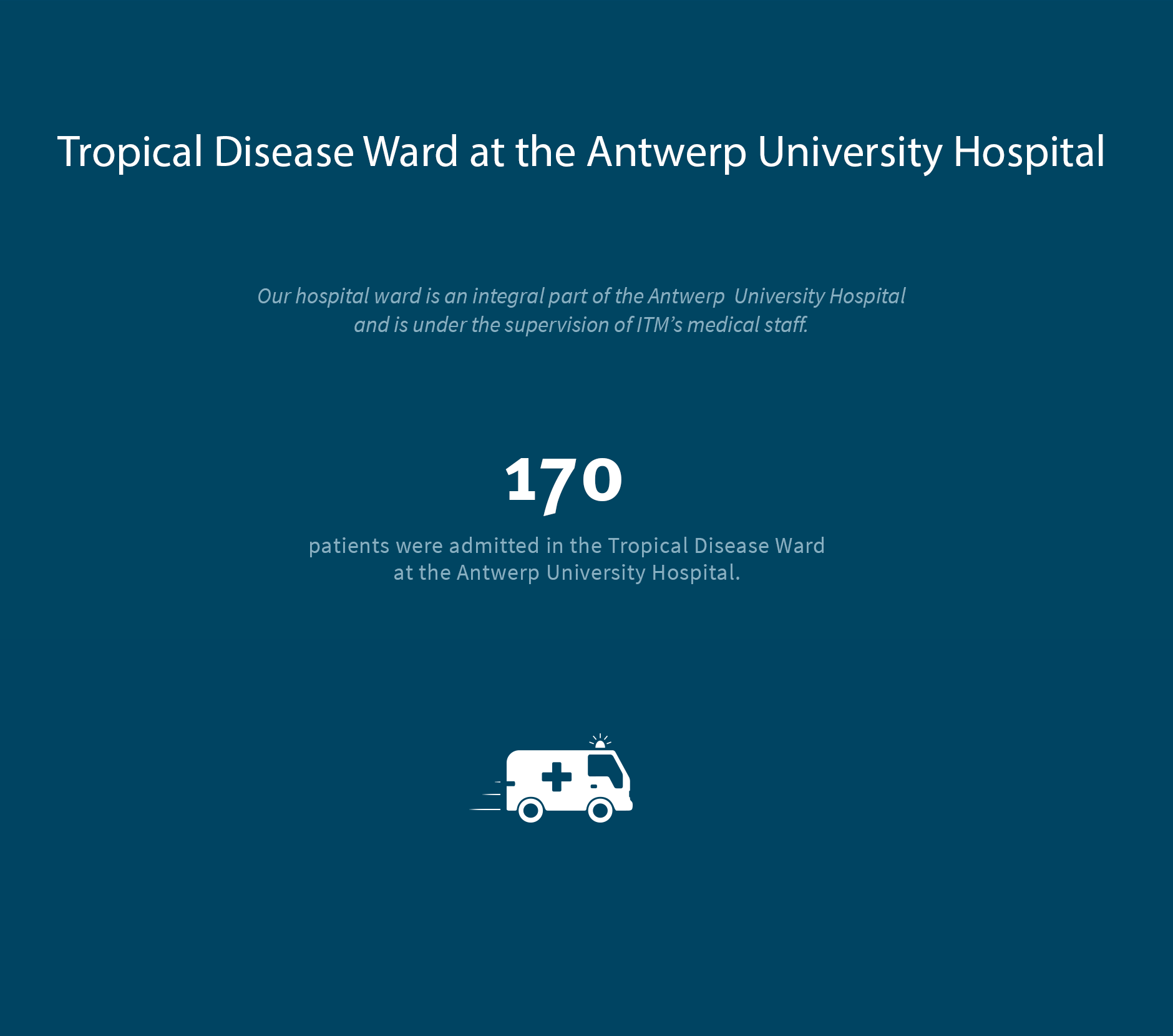
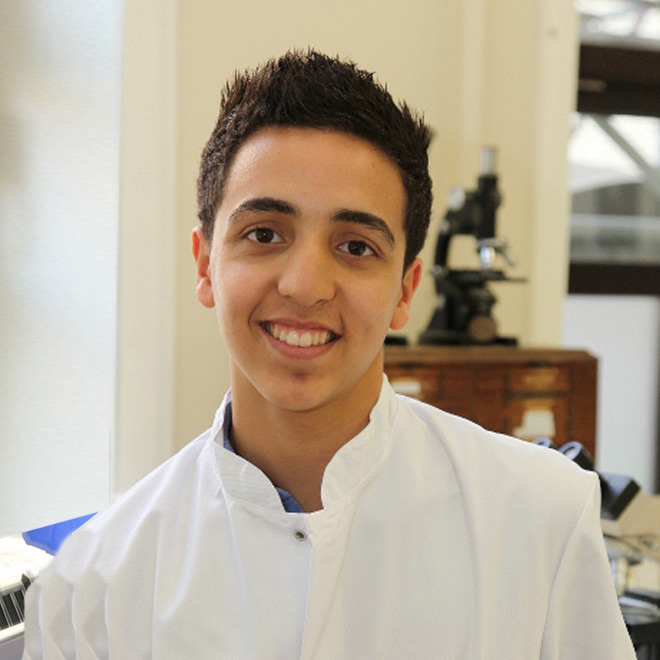
“I was still hesitating between a master's degree in civil engineering or medicine. After this week, my choice is clear: next year I’ll study medicine.”
Ilyas
Last year we invited six youth to get a taste of science during a one-week internship at ITM. With the support of our scientists, the students conducted research on HIV/AIDS and malaria. They reported their findings to their classes at Atheneum Hoboken and the Koninklijk Atheneum in Antwerp. The students took part in Youngster’s Lab, a project supported by the Flemish government to stimulate interest in careers in mathematics, science and engineering.
The 17-year old students were actively involved in our research activities. Yasmina and Ilyas evaluated malaria rapid tests, Emine and Houda were introduced to HIV research, while Sonia and Imad observed the malaria parasite.
The students shared their experiences in a blog, through, among other media, identity kits, a photo diary, and an interview with their mentor. They also kept their classmates informed about their activities at ITM through a daily Skype call. The students, teachers and ITM scientists look back fondly at this project.
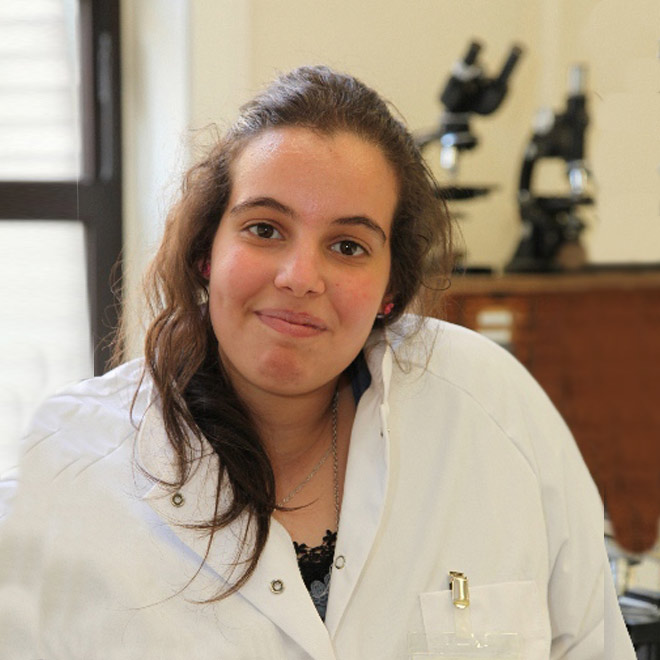
“Our school day usually ends at 3:30 pm, but at ITM we didn’t mind working until 5 pm. We were so dedicated to the project, the time flew by so fast.”
Yasmina
 ITM runs an extensive programme on sustainable scientific, medical and veterinary capacity building in the South, with support from the Belgian Directorate-General for Development (DGD).
ITM runs an extensive programme on sustainable scientific, medical and veterinary capacity building in the South, with support from the Belgian Directorate-General for Development (DGD).
Motto: Switching the Poles. Partner institutes gradually take charge of developing scientific and medical expertise, as they own, lead and are held accountable for their role in the partnership.




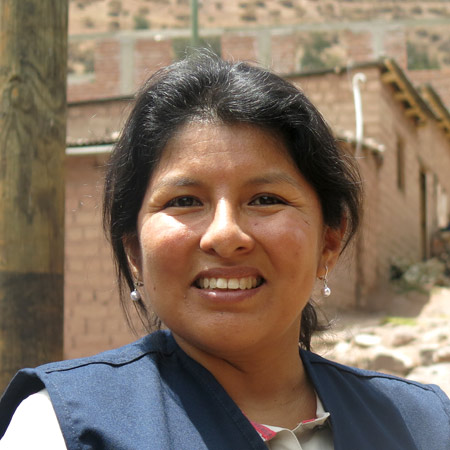
“Doing my PhD at ITM allowed me to learn from researchers from other countries who face similar challenges.”
Dalila Martinez-Medina, IMTAvH researcher
ITM’s longstanding relationship with the Peruvian Instituto de Medicina Tropical Alexander von Humboldt (IMTAvH) has helped strengthen both institutions in biomedical and clinical research on infectious and tropical diseases. Among other tropical illnesses, the two tropical institutes come together to tackle leishmaniasis, a highly neglected tropical disease causing mutilating lesions.
In Peru, the cutaneous and mucocutaneous forms of leishmaniasis occur mainly in the jungle and in the highlands. The disease is caused by a unicellular parasite, Leishmania, which is transmitted by the sand fly. The disease mostly affects poor people living in rural areas and, as a consequence, pharmaceutical companies have shown little interest in developing new medicines for leishmaniasis. Yet, according to conservative WHO estimates, each year more than a million people are infected worldwide.
Leishmaniasis is not neglected at IMTAvH, however. For more than twenty years, its scientists, together with colleagues from Antwerp, have been studying the parasites causing this disease. They are also working on more effective therapeutic options, as currently available drugs have toxic side effects. A quick and accurate diagnosis is, therefore, also of the essence. The IMTAvH laboratory has developed the most advanced and quickest test to diagnose leishmaniasis via molecular photocopying, or Polymerase Chain Reaction (PCR). This first-rate laboratory was developed in collaboration with ITM and several of its researchers have studied in Antwerp.
Dalila Martinez is one of eight IMTAvH researchers currently doing their PhD at ITM in what is known as a “sandwich programme”. In this programme, researchers spend part of their 4-year doctoral study in Antwerp, but spend the majority of their time carrying out fieldwork at their home base so as not to lose contact with their country of origin. “Doing my PhD at ITM allowed me to learn from researchers from other countries who face similar challenges,” Martinez said.
ITM and IMTAvH also run joint educational activities, such as a workshop on molecular epidemiology applied to infectious diseases, which was held in Lima at the end of 2013.
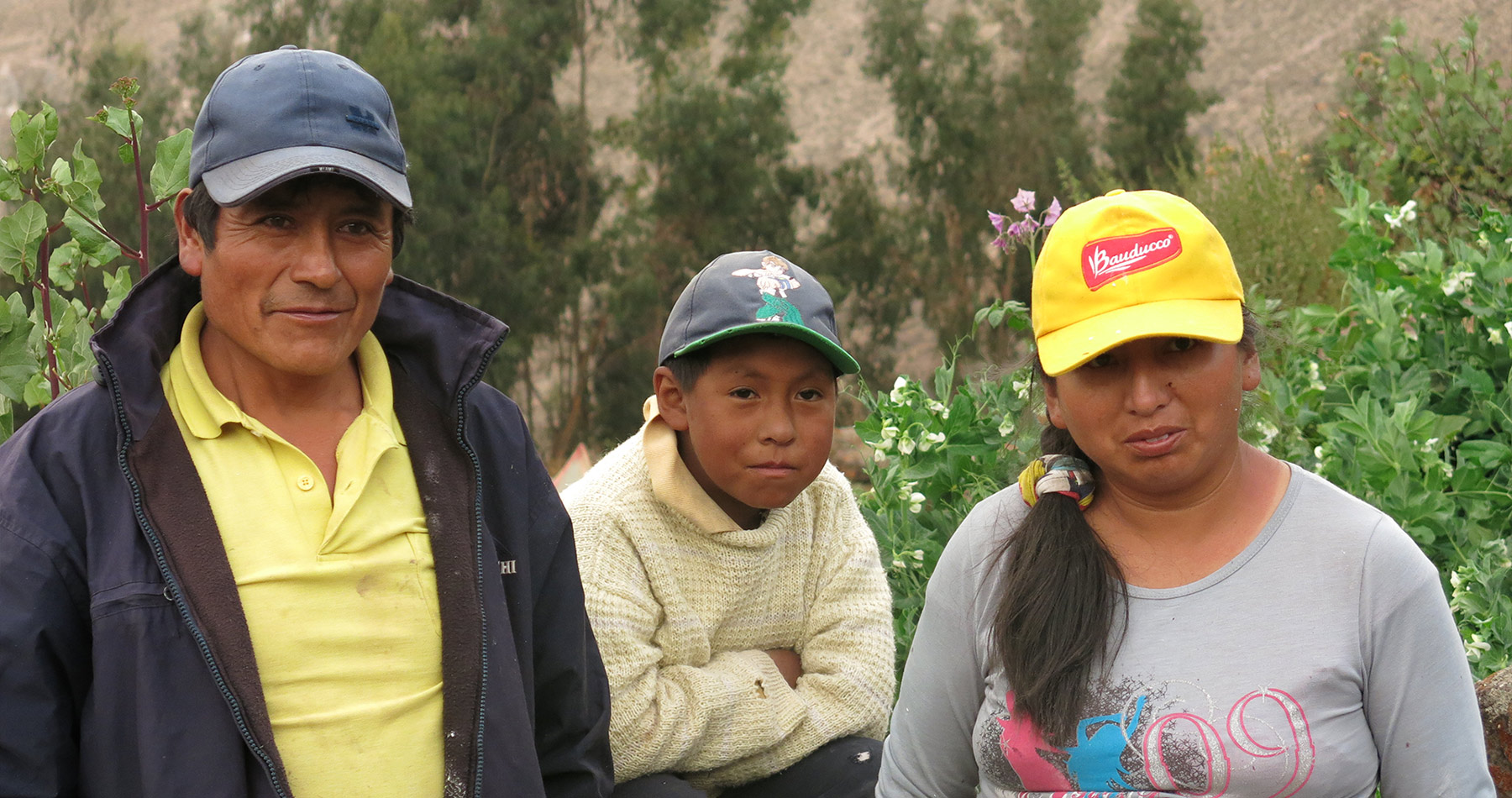
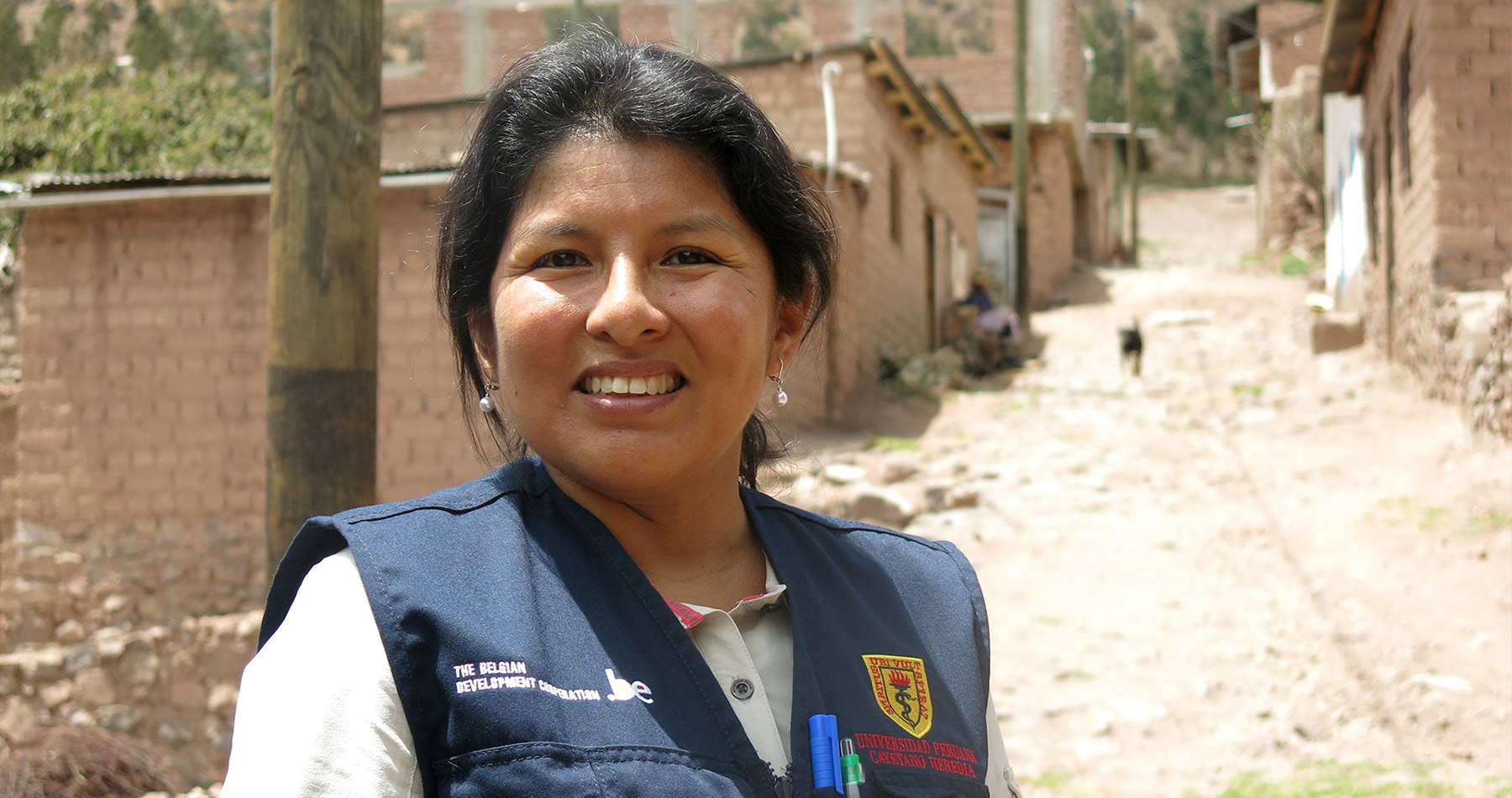
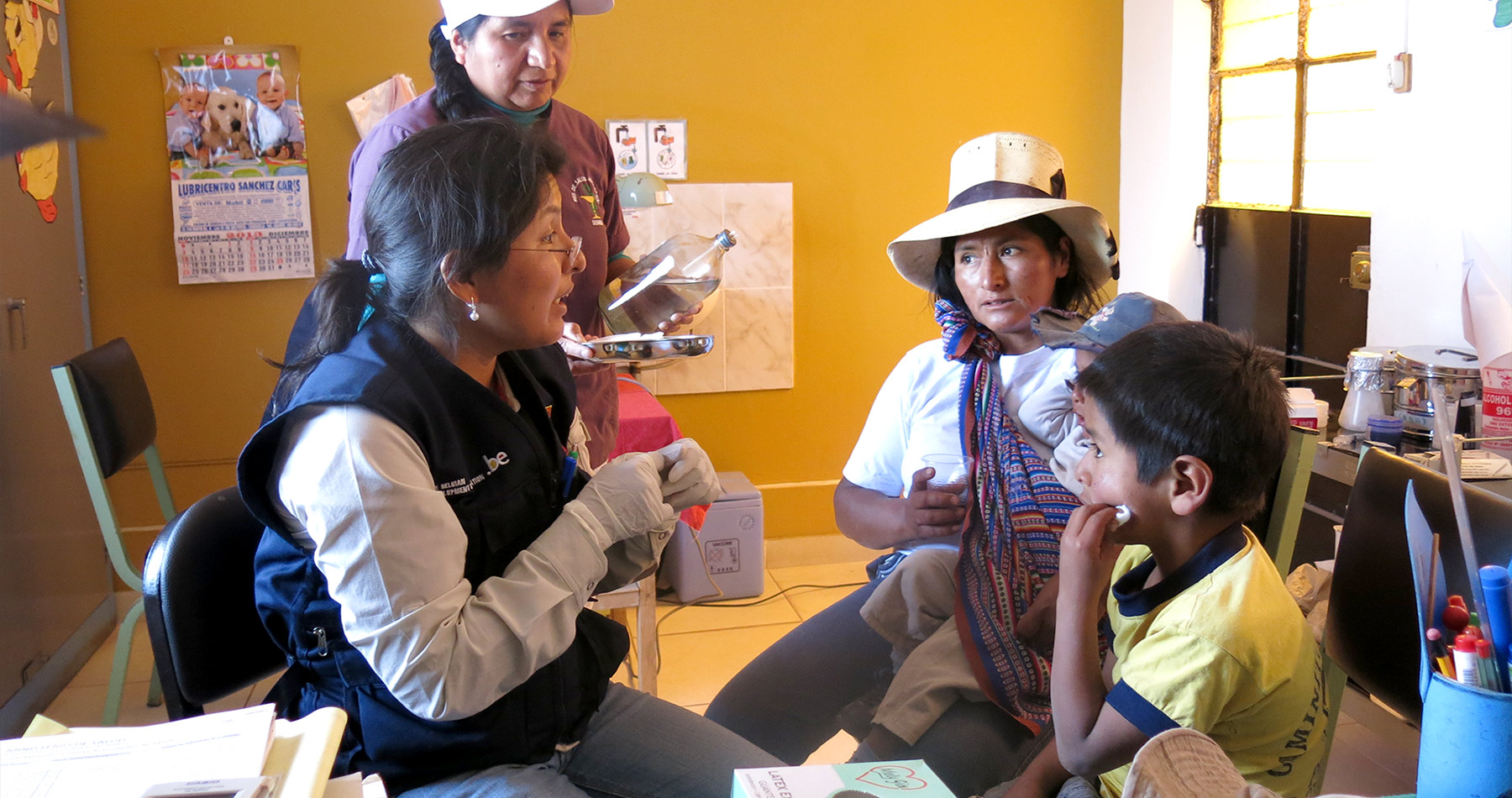
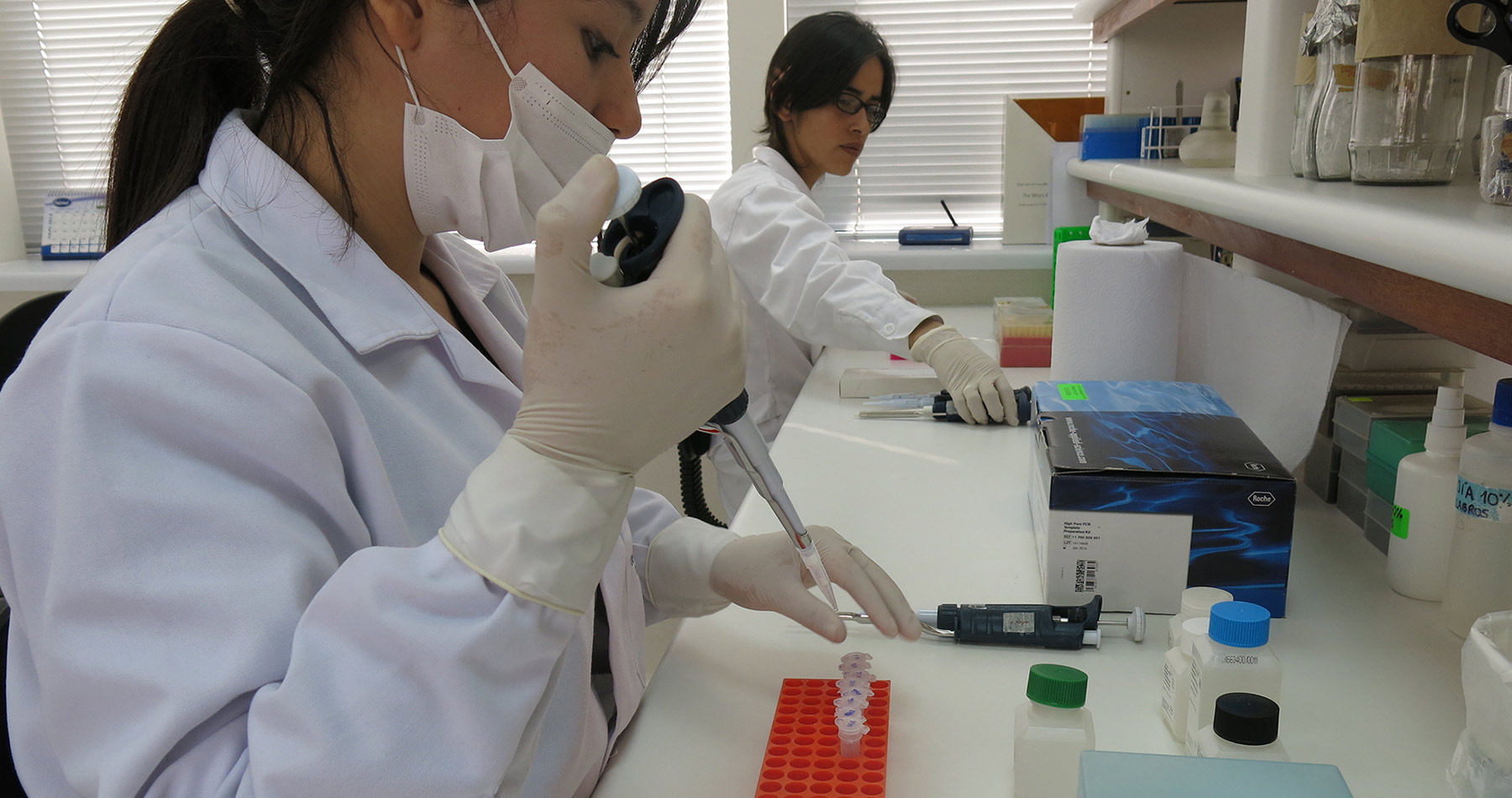
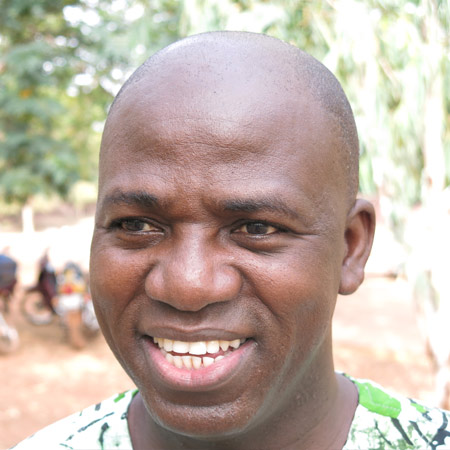
“Thanks to our collaboration with ITM we now welcome researchers from across Africa in Nanoro to learn about good clinical practice.”
Dr. Halidou Tinto, CRUN Director
After completing his PhD in Antwerp, in 2006, Halidou Tinto returned to Burkina Faso to set up the Clinical Research Unit of Nanoro (CRUN) with support from ITM. The centre, which has expanded from 10 personnel to over 250 since then, performs medical research and clinical trials to increase scientific knowledge and improve health care for the greater population.
Burkina Faso registers a staggering five million malaria cases each year from a total of only 15 million inhabitants. Through research, Halidou Tinto and his colleagues want to reduce the burden of this parasitic disease on the local population and on Africa as a whole.
Currently, CRUN is one of the trial sites for the most advanced malaria vaccine in development to date. In collaboration with ITM and research sites in Ghana, Malawi and Zambia, the centre is also testing the efficacy and safety of four different artemisinin based antimalarial combination treatments during pregnancy. Researchers are trying to determine which treatment is the most effective and the safest for mother and child.
Today, clinical trials are increasingly being carried out among poor communities in countries with limited resources. These trials are urgently needed to address the unanswered health needs of these populations. Nevertheless, exploitation in clinical research is also a danger, especially in resource poor settings where people may feel pushed into participating. To prevent this, trials should all respect the international principles of research ethics and Good Clinical Practices standards. For this reason, all the studies run jointly by CRUN and ITM are submitted for approval to ethics committees both in Burkina Faso and in Belgium.
However, ethical clinical trial research goes beyond simply seeking approval from ethics committees. Good collaboration and real partnership with the local community is just as important. For this reason, CRUN has built a transparent relationship of trust with the people of Nanoro, and is increasingly calling upon the expertise of ITM social scientists to help clinical researchers develop this relationship further. In line with Dr Tinto’s goal of improving health care for the general population, by monitoring and regularly following-up study participants as well as people from the whole community, CRUN continues to have a positive impact on general health, one example of which is its efforts to reduce infant mortality.
CRUN further makes it a priority to share the expertise it has acquired in the field of medical studies by training researchers from other African countries.
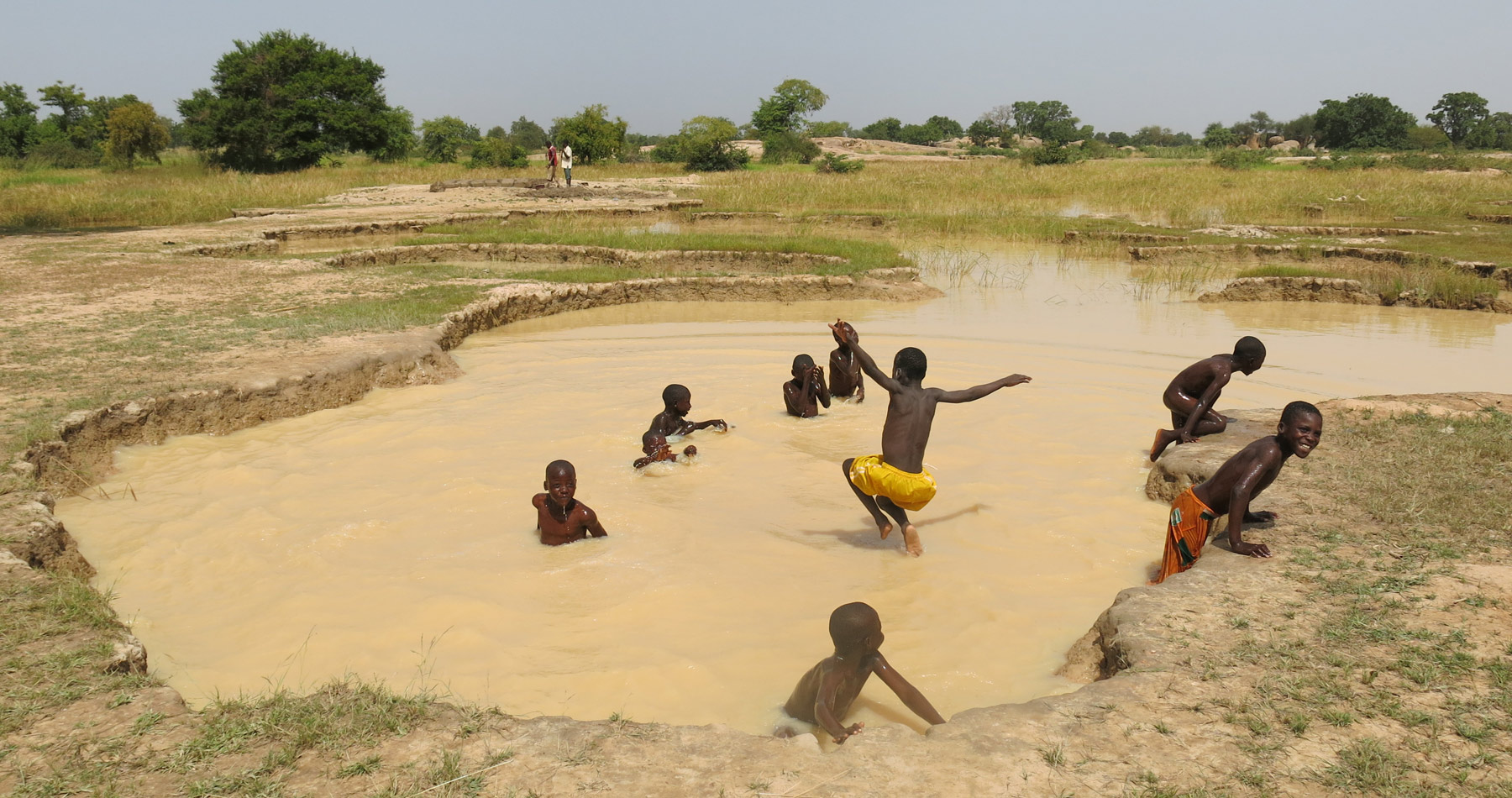
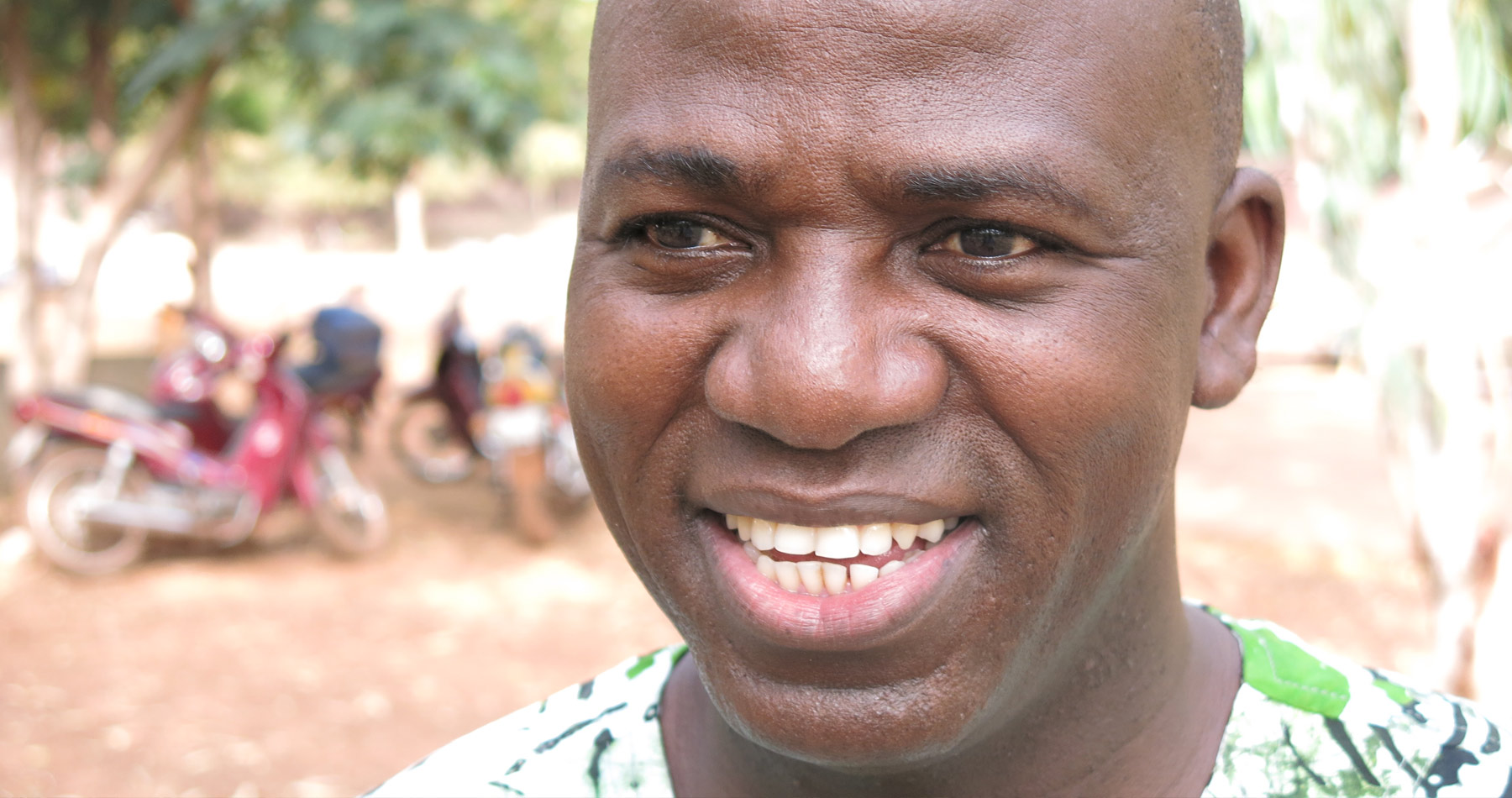
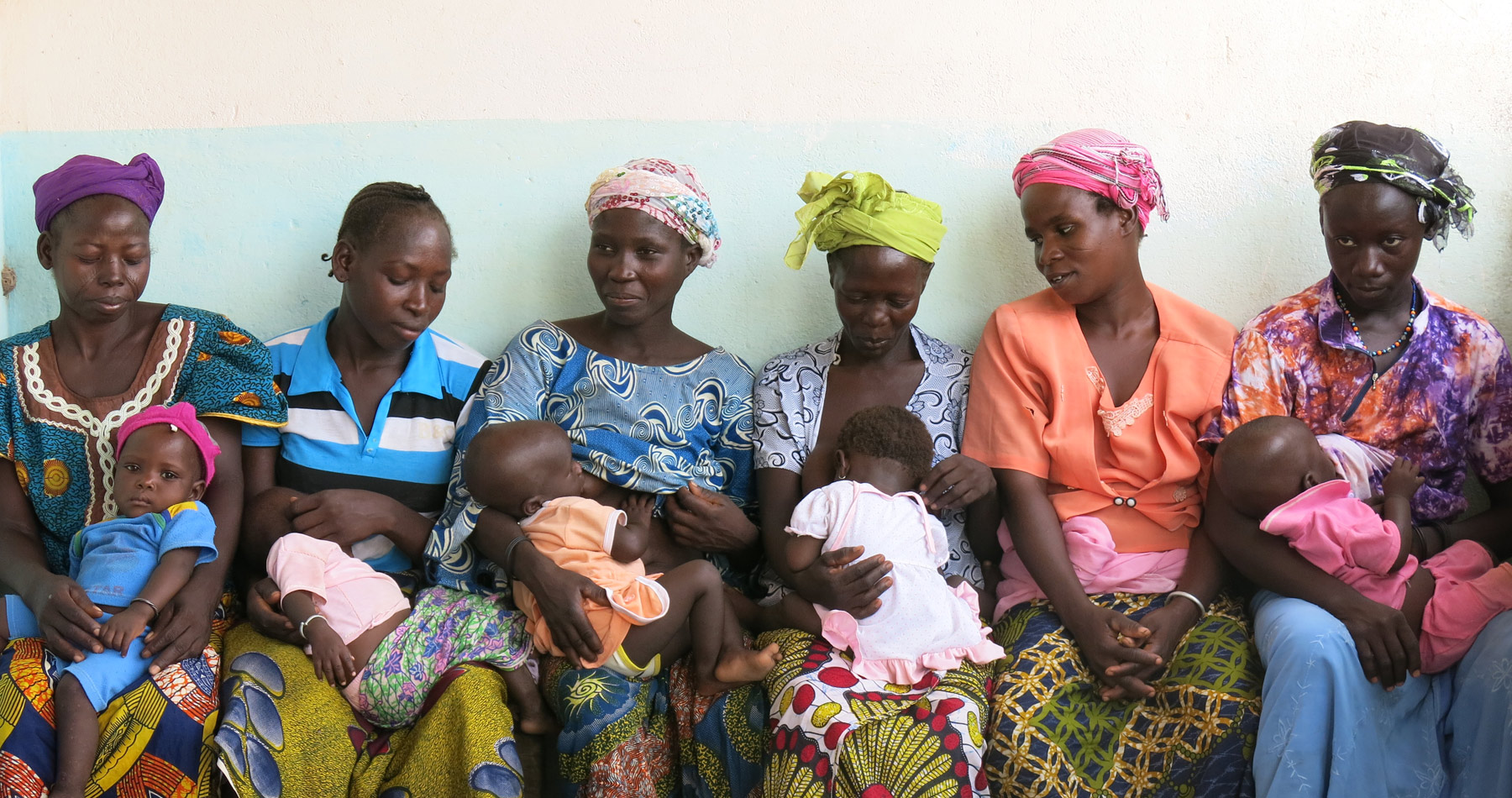
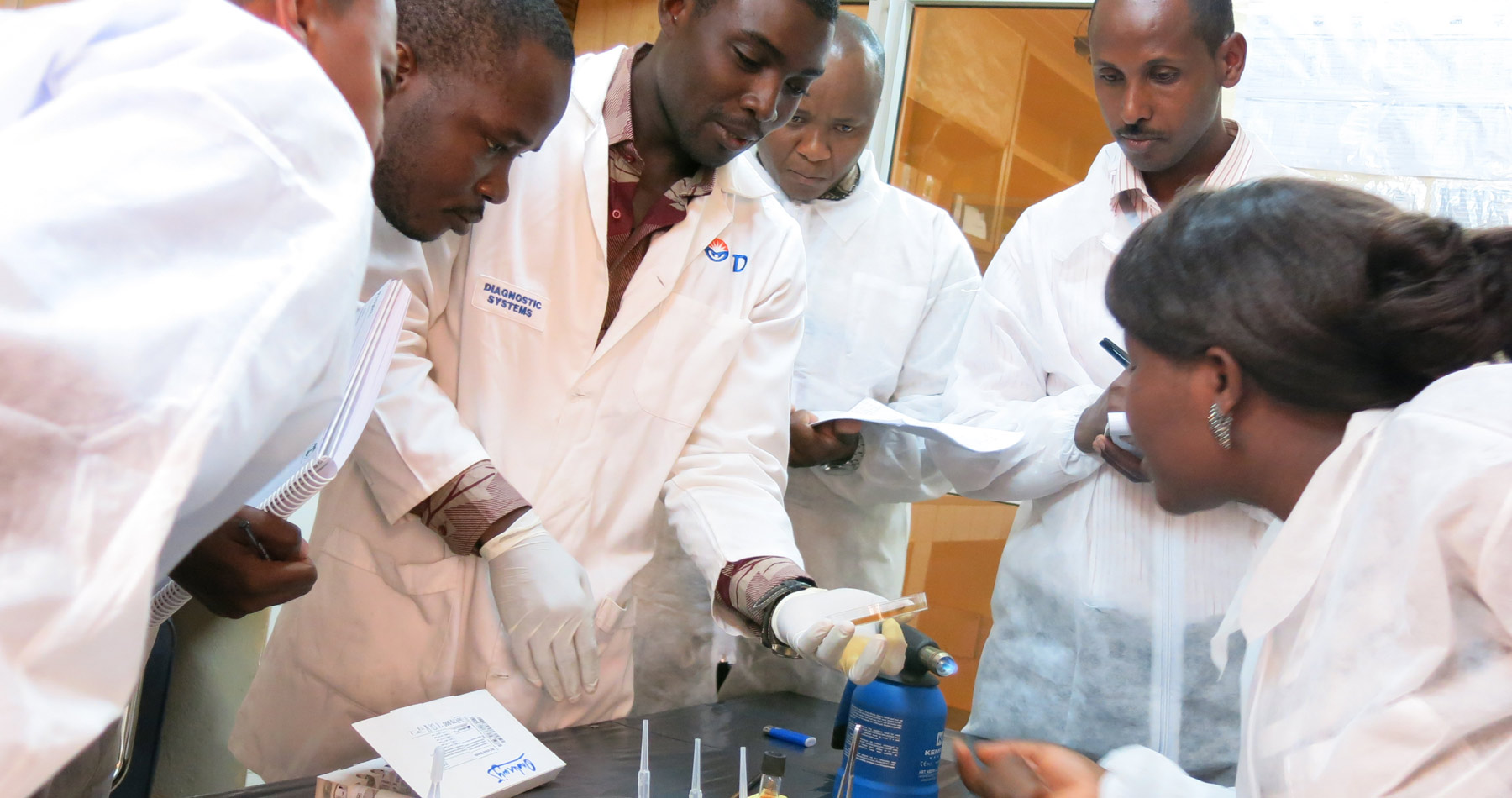
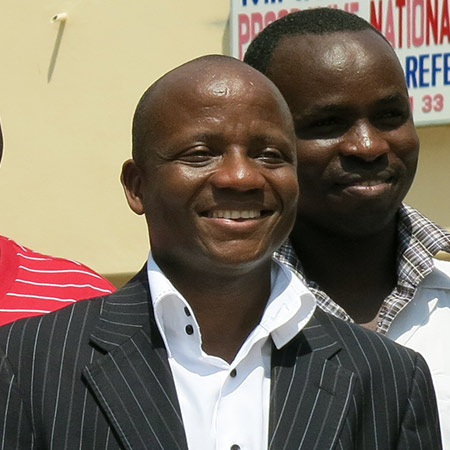
“Qualified people are the foundation for success. We are ready to build walls, without having to fear that they will crumble.”
Dr. Dissou Affolabi
Thanks to continuous support and training from ITM, the Laboratoire de Référence de Mycobactéries (LRM) in Cotonou, Benin has become a well-functioning lab network for the diagnosis of tuberculosis and Buruli ulcer, both caused by mycobacteria. LRM is even in the running to become the first WHO supranational reference laboratory in West Africa.
Previously, the analyses of tuberculosis and Buruli ulcer strains from Benin largely relied on the laboratory in Antwerp. But, with the support from ITM, LRM progressively expanded the necessary analyses locally, starting from microscopy, going on to implement culture, and finally performing Polymerase Chain Reaction (PCR), otherwise known as ‘molecular photocopying’. These analyses are crucial to successful diagnosis, to monitor treatment and to reveal how bacteria react to antibiotics. And we believe this should be carried out as close as possible to where most cases of a disease occur. ITM, an international reference laboratory on mycobacteria itself, increasingly focuses on transferring skills by supporting and ensuring the quality of analysis of regional laboratories, such as LRM.
In fact, after years of intense capacity building and collaboration between Antwerp and Cotonou, laboratories from Benin and surrounding countries now turn to LRM to diagnose tuberculosis and Buruli ulcer. The two institutes also develop research projects together, and ITM is increasingly encouraging LRM to take the lead in these projects.
Dissou Affolabi is the Vice-Director of the LRM in Cotonou. He conducted his PhD training at ITM with Prof. Françoise Portaels and, today, he leads a young and dynamic team of researchers and lab technicians, several of whom have also studied at ITM.
A new highly specialised L3-lab, which is required to obtain official recognition by the WHO, is currently under construction at LRM. Referring to this building, Dissou describes the essence of what ITM’s support has meant to his organisation: “Qualified people are the foundation for success. We are now ready to build walls without having to fear that they will crumble.”
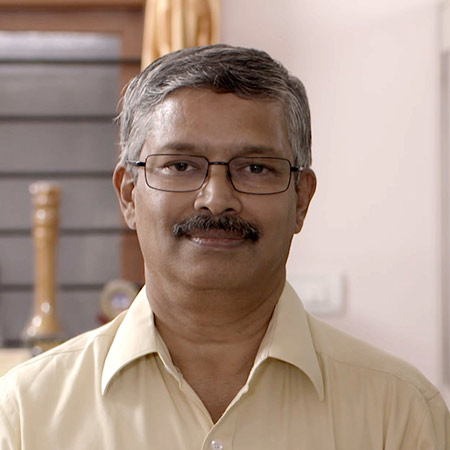
“ITM has helped us to grow as an institution. Our relationship is built on mutual respect and shared priorities.”
Dr. N. Devadasan
Since 2008, ITM has been supporting the Institute of Public Health (IPH) in Bangalore in its efforts to improve access to quality health care in India through research, capacity building and advocacy. The Indian organisation was founded in 2005 by former ITM student, Dr. Devadasan.
India has a mixed public/private healthcare system. When people fall ill they often turn to private practitioners believing they will receive better and quicker care. However, this is not always the case, as actors in the unregulated private sector often authorise unnecessary treatments motivated by financial incentives. Currently, seventy percent of medical expenses in the country come from out-of-pocket payments, which forces around 60 million people into poverty each year. This is where IPH comes in, taking equitable access to health care to heart.
ITM has helped IPH to set up a pioneering e-learning programme on public health management, and the two institutes collaborate on several joint research projects. For example, researchers from both institutes analyse district health services, looking at financial constraints and shortcomings in government structures. They also investigate why people do or do not visit public facilities. IPH and ITM are also consortium partners in the EU-funded Health Inc. project on socially inclusive healthcare financing in West Africa and India. Health Inc. focuses on social exclusion as an important cause of restricted access to health services despite the introduction of health financing reforms.
IPH also trains community health workers in KG Halli, a Bangalore slum, in order to bridge existing gaps in the health systems. The community health workers, which themselves are from KG Halli, learn to advocate for the rights of their community to both health practitioners and the authorities.
The Bangalore institute shares all its research findings with government authorities in order to bring about change that benefits the poor.
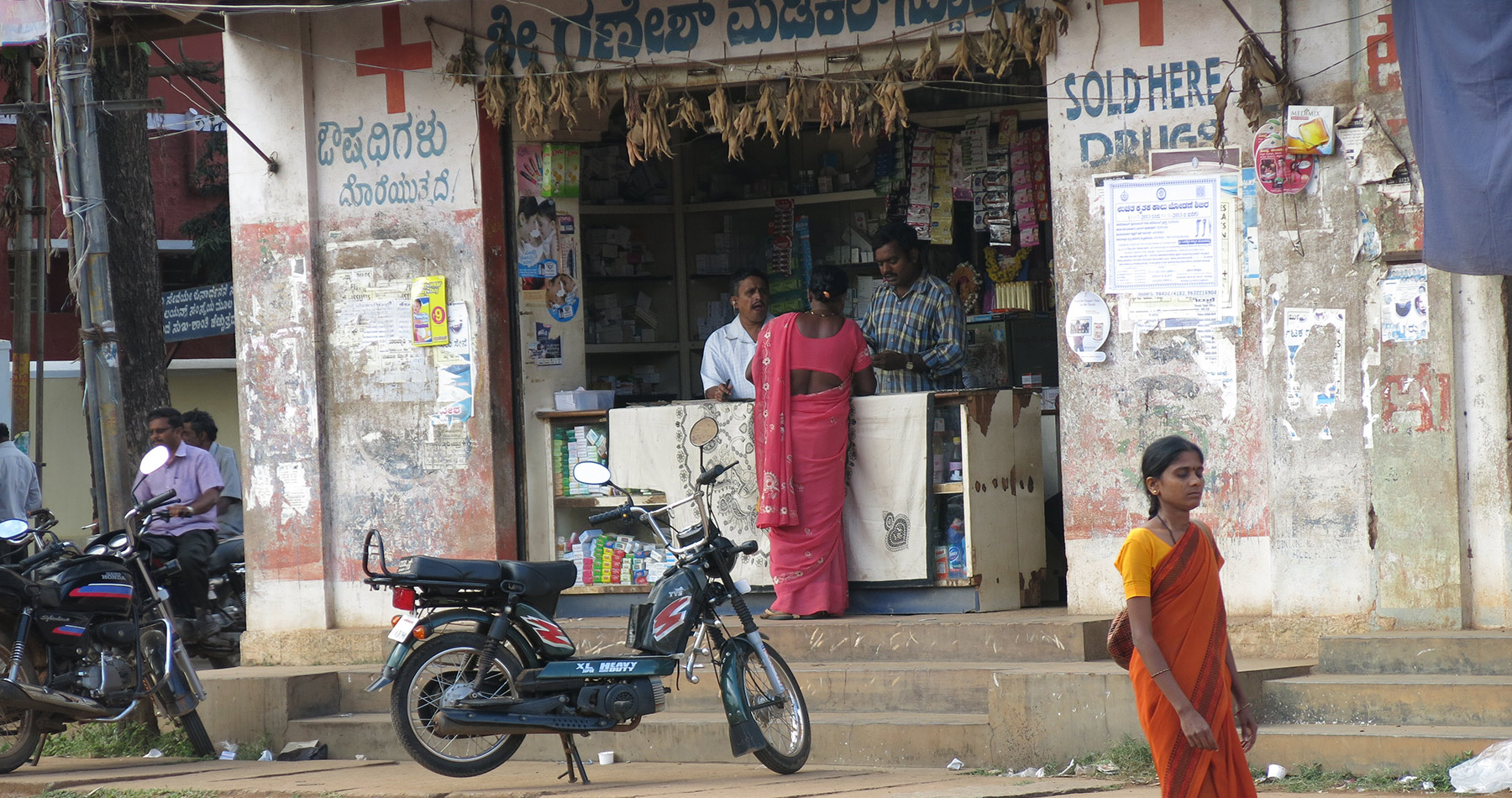
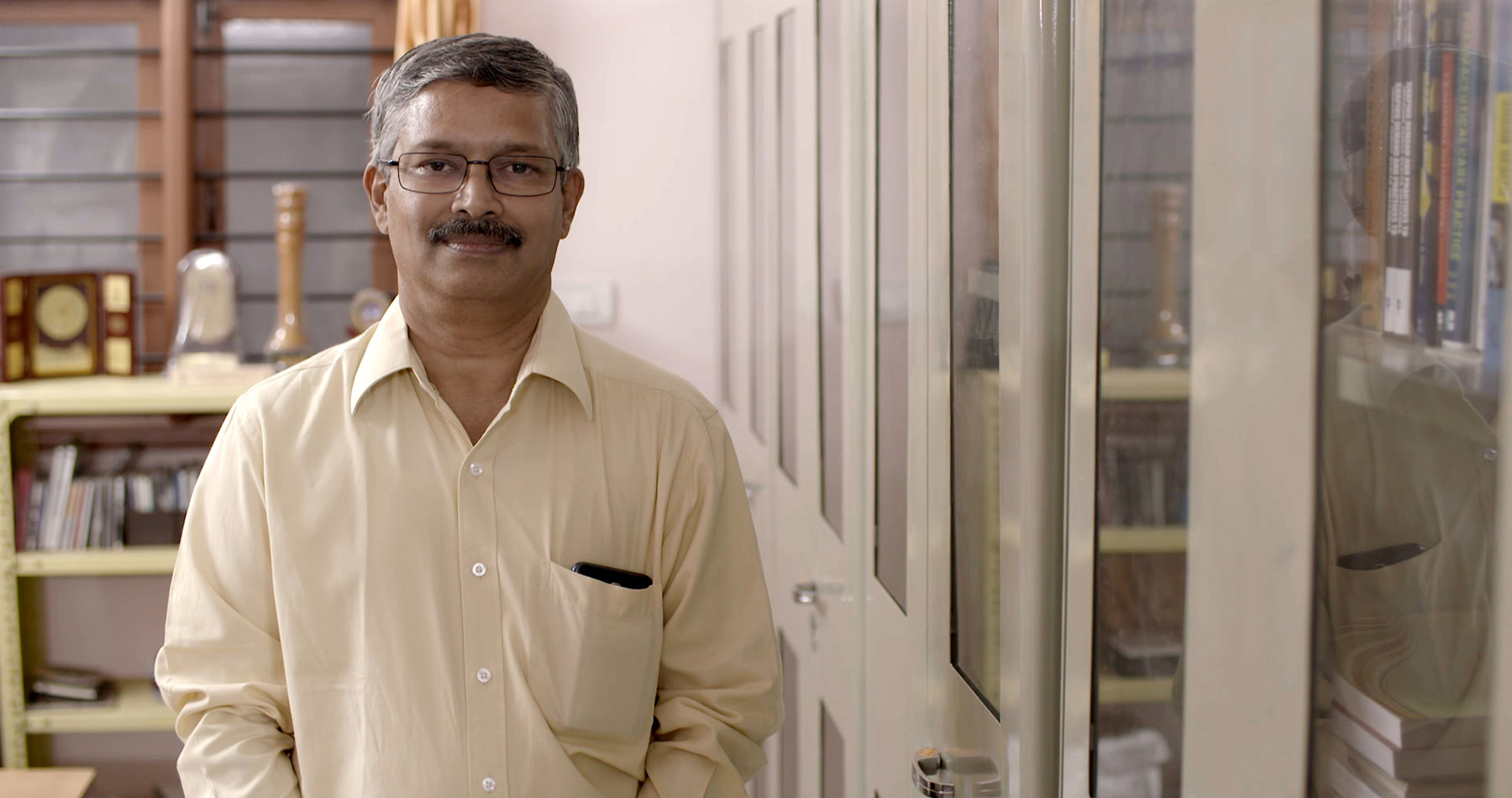
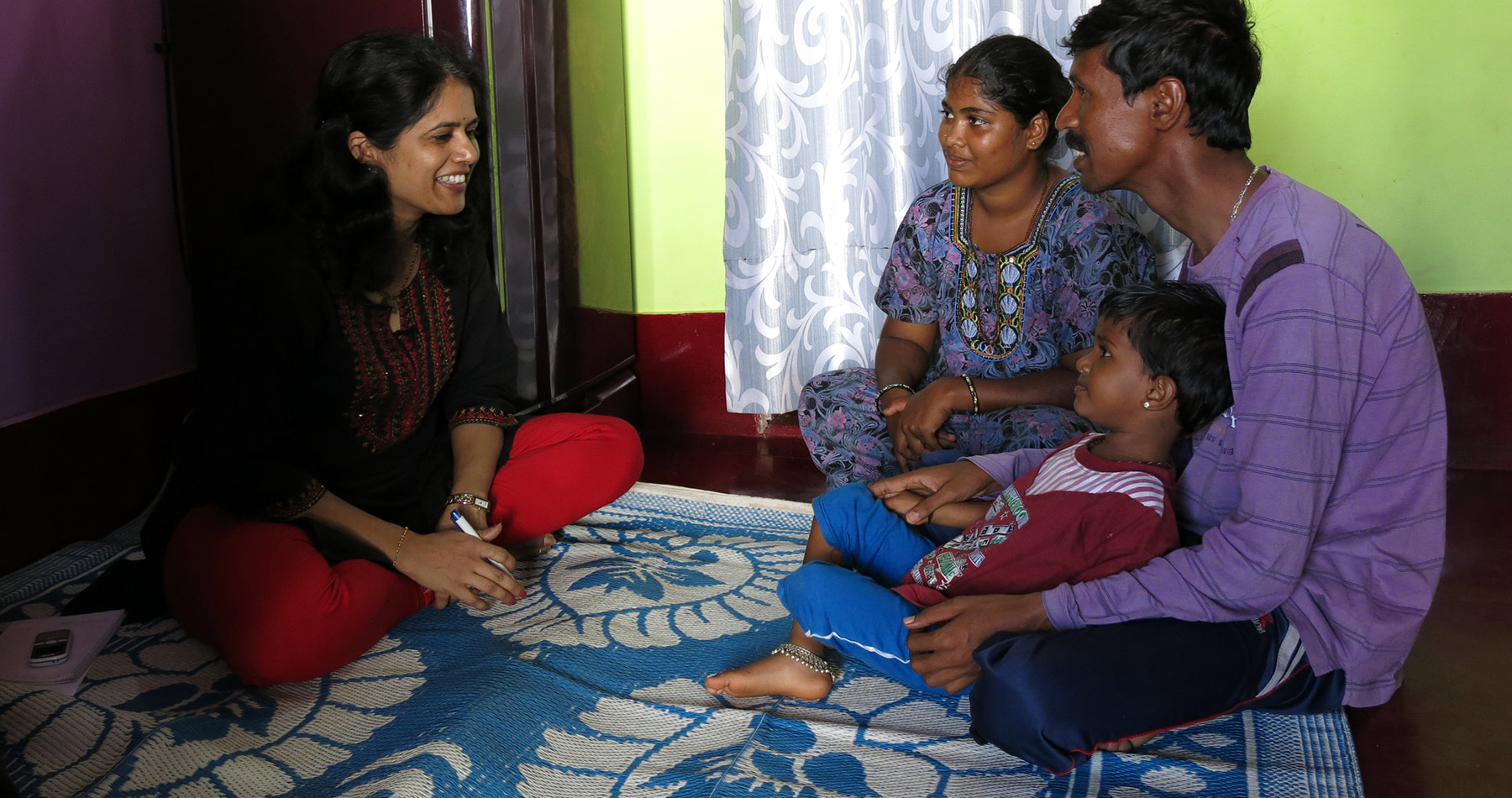
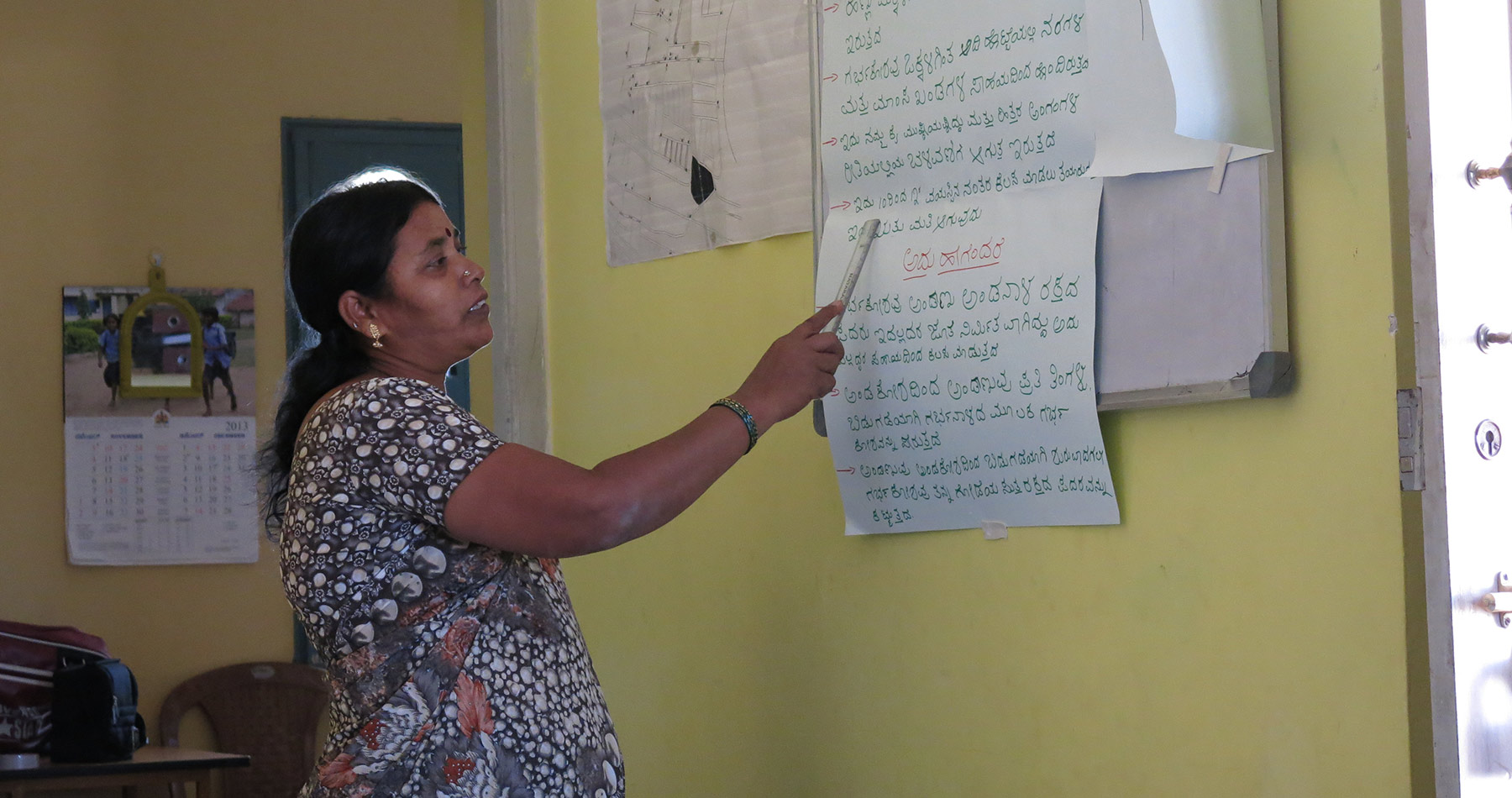
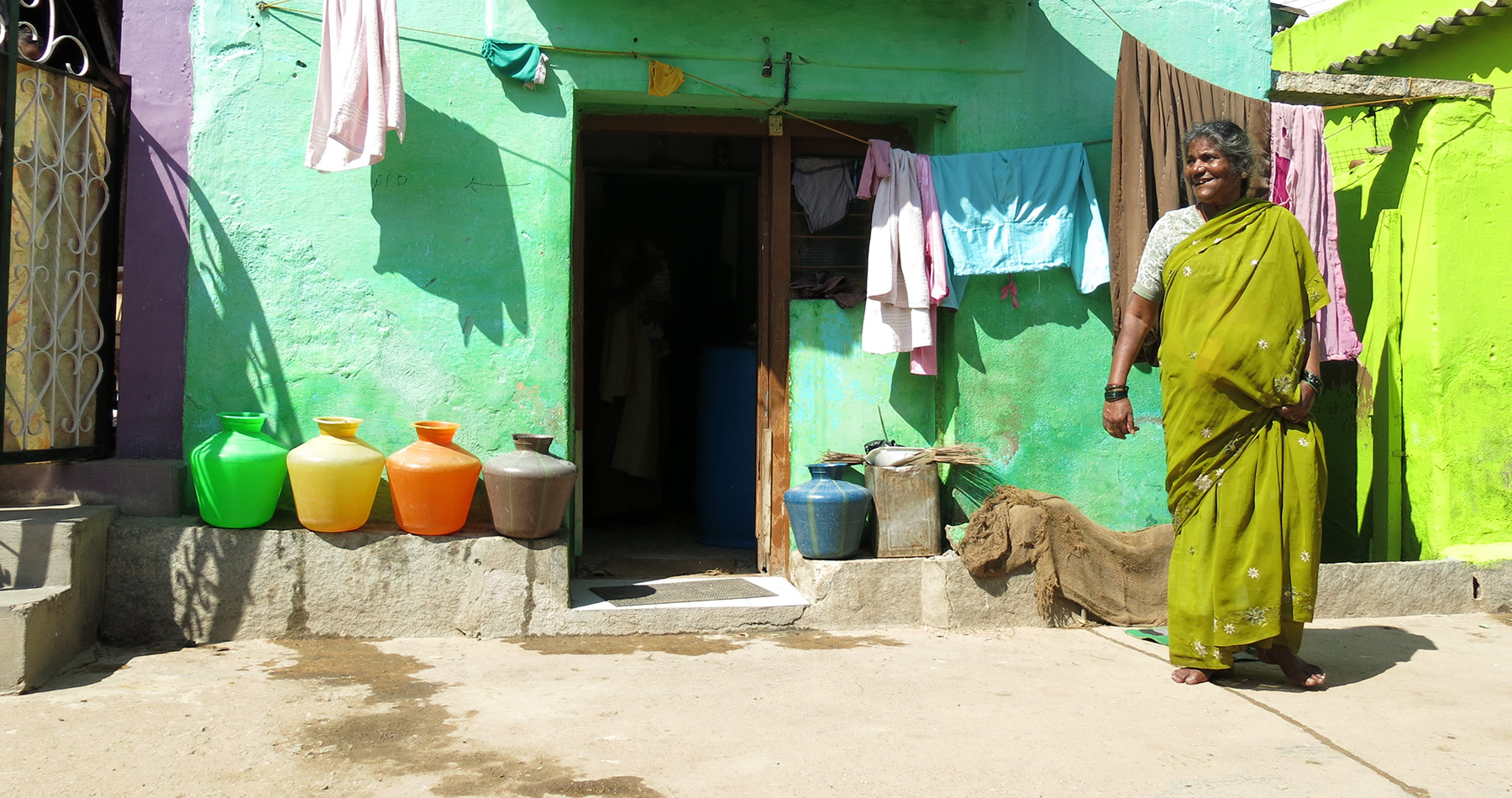
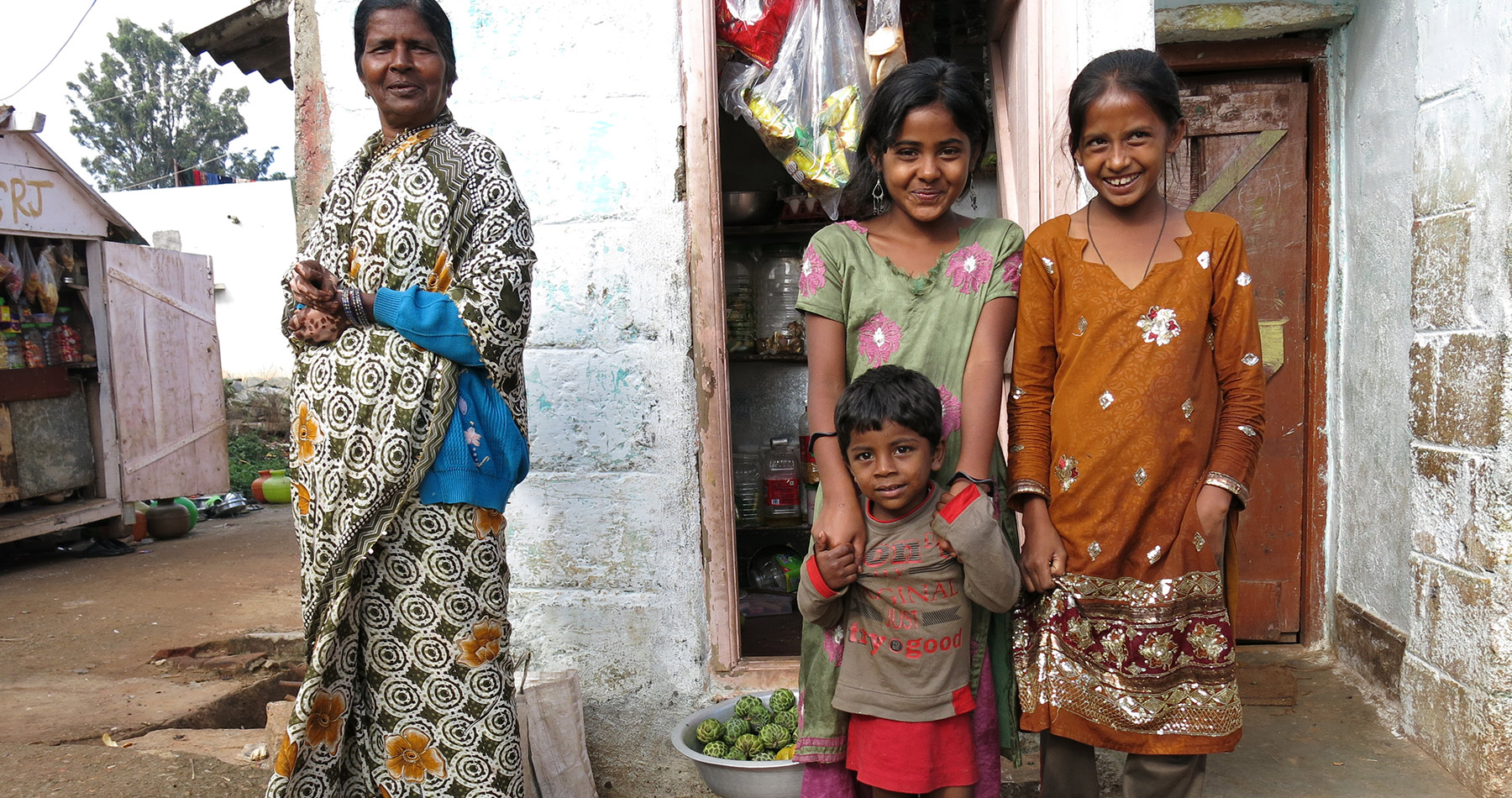
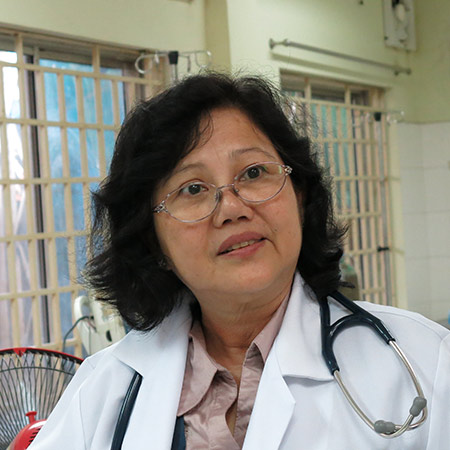
“Besides clinical expertise, we also learned research skills from ITM scientists. We never had such a special long-term partnership before.”
Dr. Sopheak Thai, SHCH Director of Infectious Diseases
At the start of this century, HIV/AIDS spread rapidly in Cambodia, ravaging poor communities. ITM’s HIV/AIDS expertise helped the non-governmental Sihanouk Hospital Center of Hope (SHCH) to greatly improve the standard of care for HIV-patients. The collaboration between the two institutes also produced outstanding results for the management of tuberculosis and antimicrobial resistance.
The number of people with HIV receiving treatment in low-income countries has increased 10-fold since 2002, but many more patients are yet to be reached. The early HIV/AIDS epidemic in Cambodia revolved largely around the sex trade and heterosexual transmission. Trained by ITM researchers, SHCH became one of the first centres providing anti-retroviral therapy (ART) to HIV patients. Today, the hospital regularly follows-up around 3000 HIV-patients on ART. Patients also participate in discussion groups with peers. Talking to each other about their illness, psychological problems and social exclusion provides emotional support. Sihanouk hospital staff has also been training doctors throughout Cambodia in the context of the successful national HIV-programme.
With ITM support, a cutting-edge laboratory delivering quality-assured diagnostics was installed at SHCH. The lab has allowed SHCH to build up one of the country’s largest data collections on bacterial bloodstream infections by systematically drawing blood for blood cultures from all patients arriving at the hospital with fever. SHCH and ITM researchers use this unique data to gain precious insights into antibiotic resistance and bacterial infections in Cambodia.
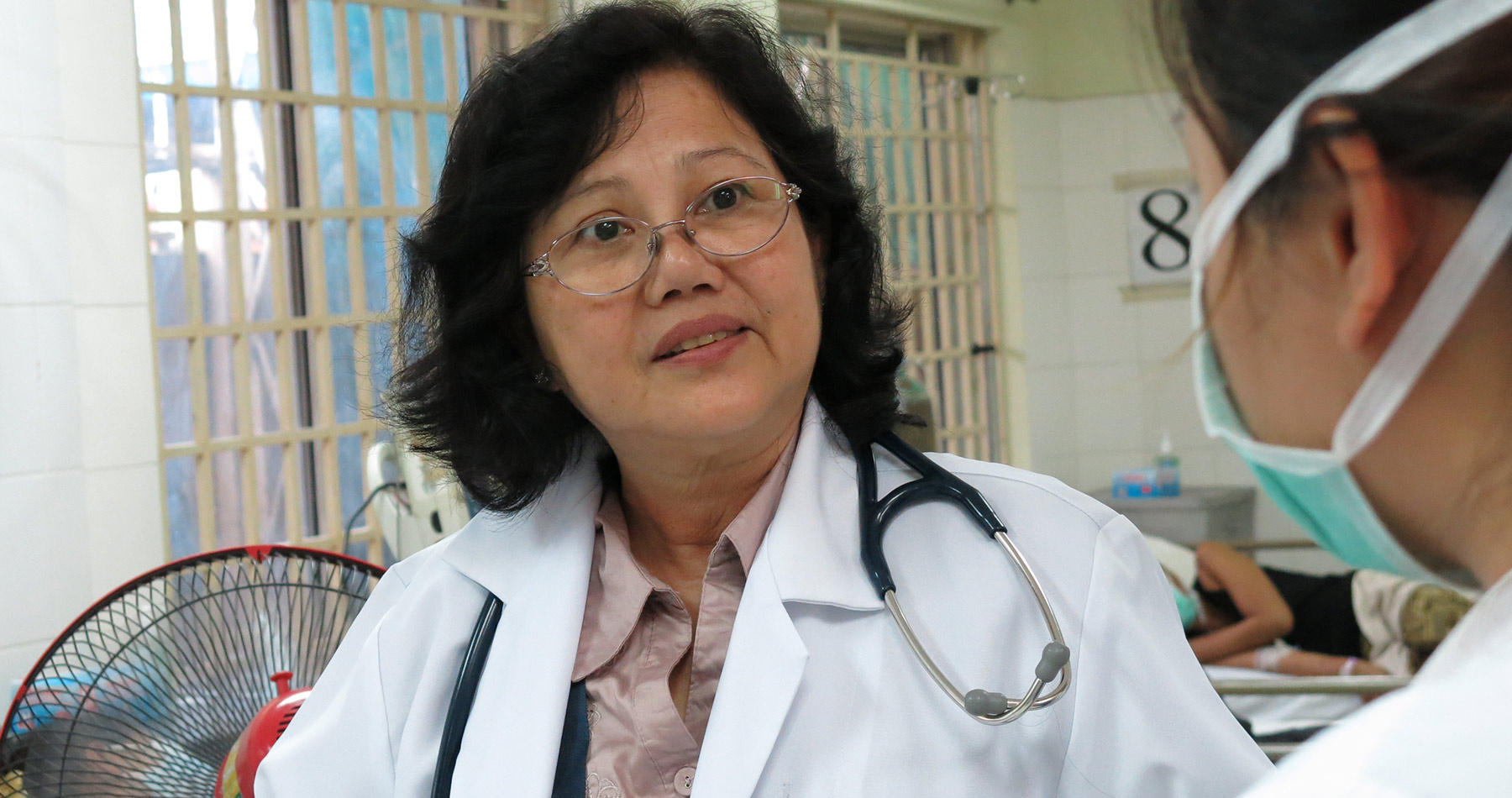
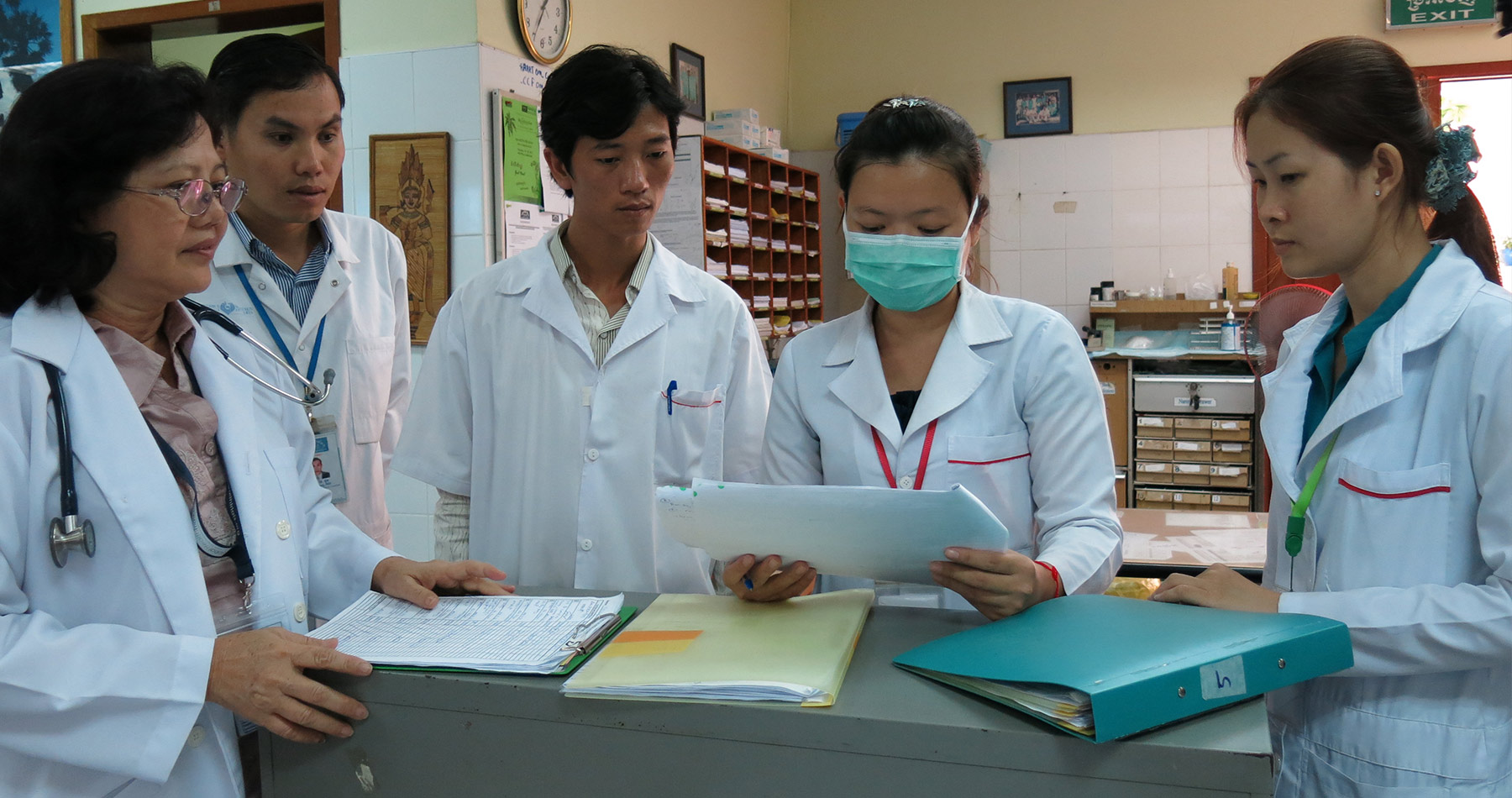
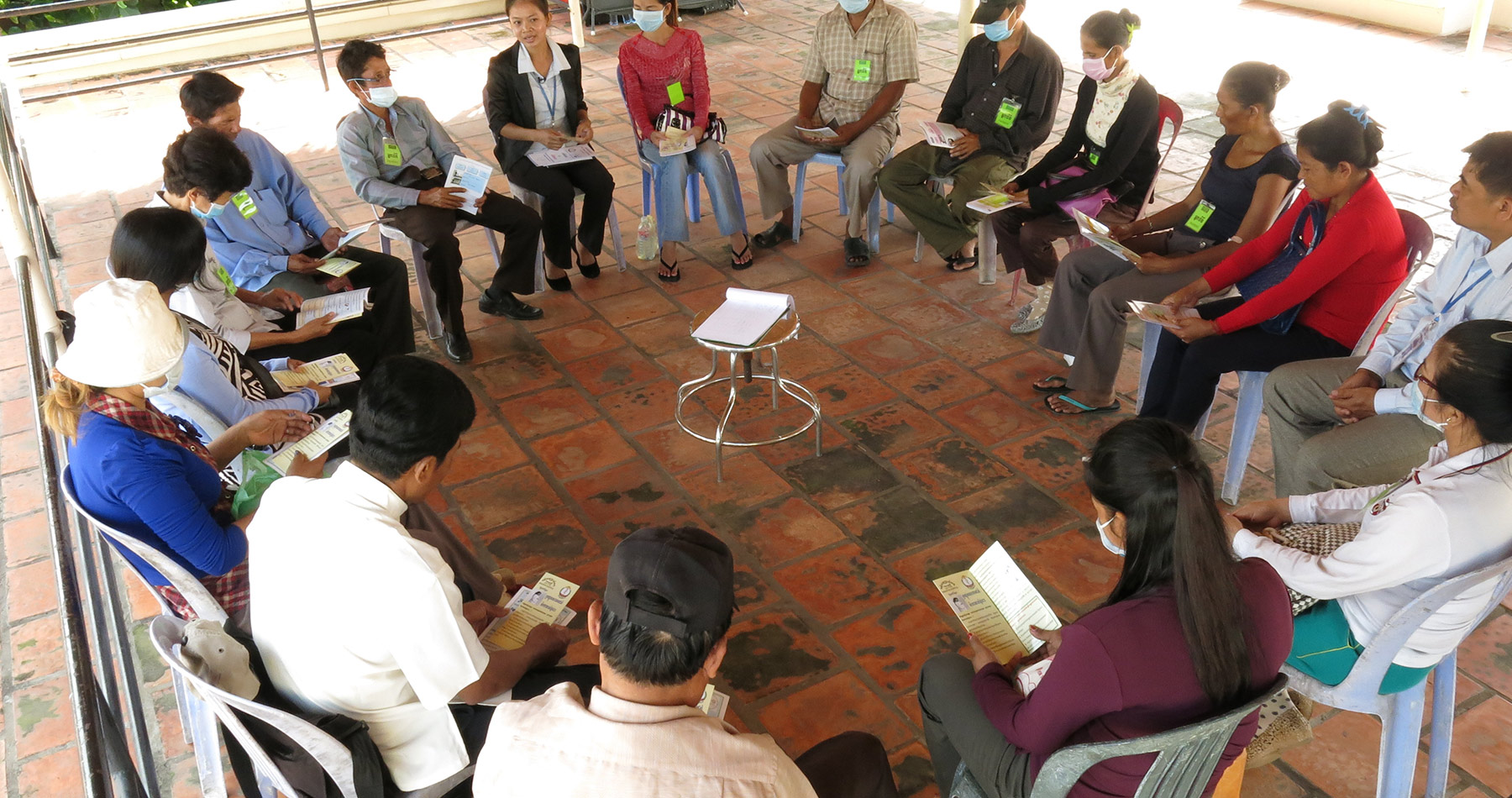
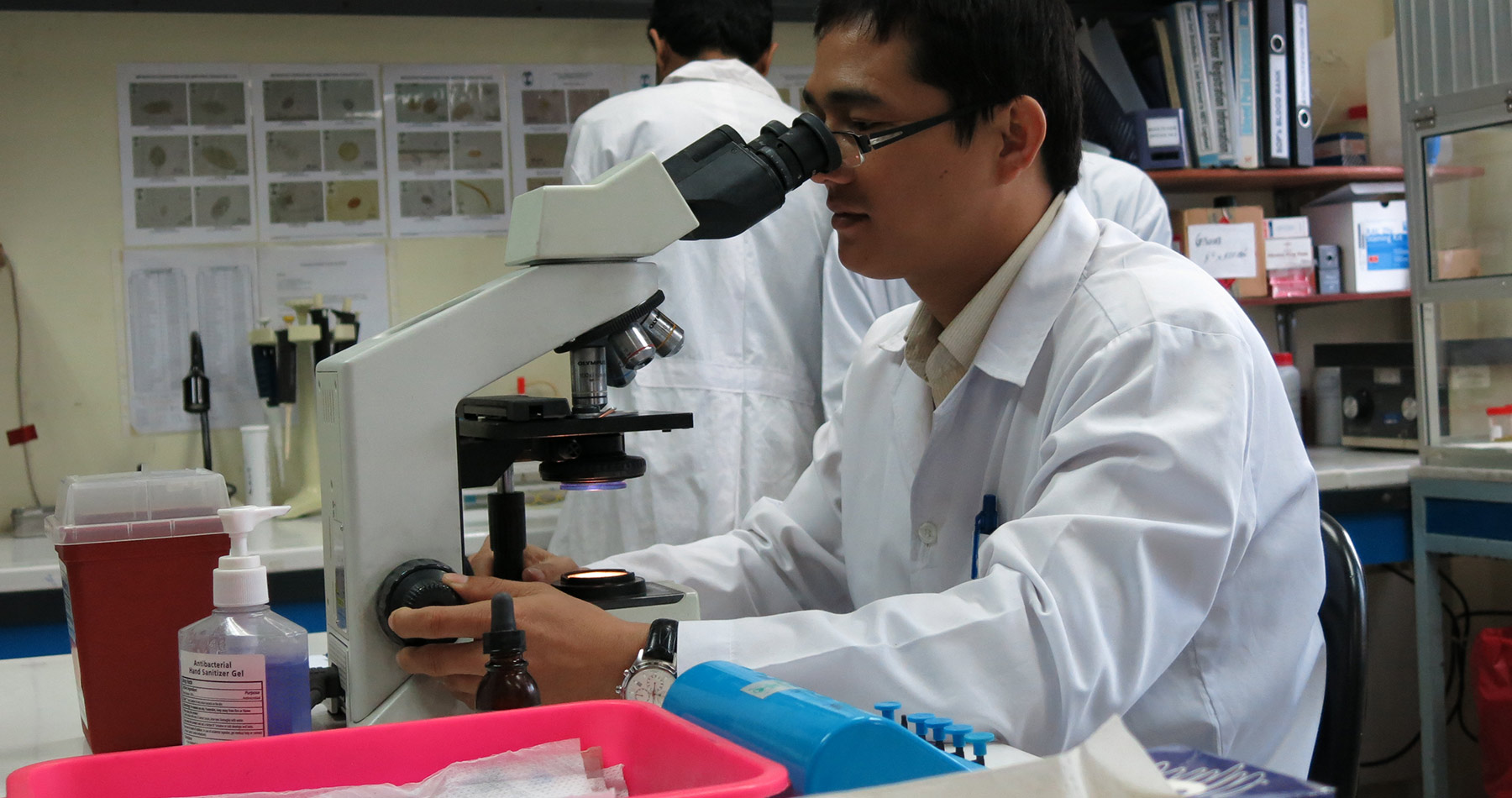

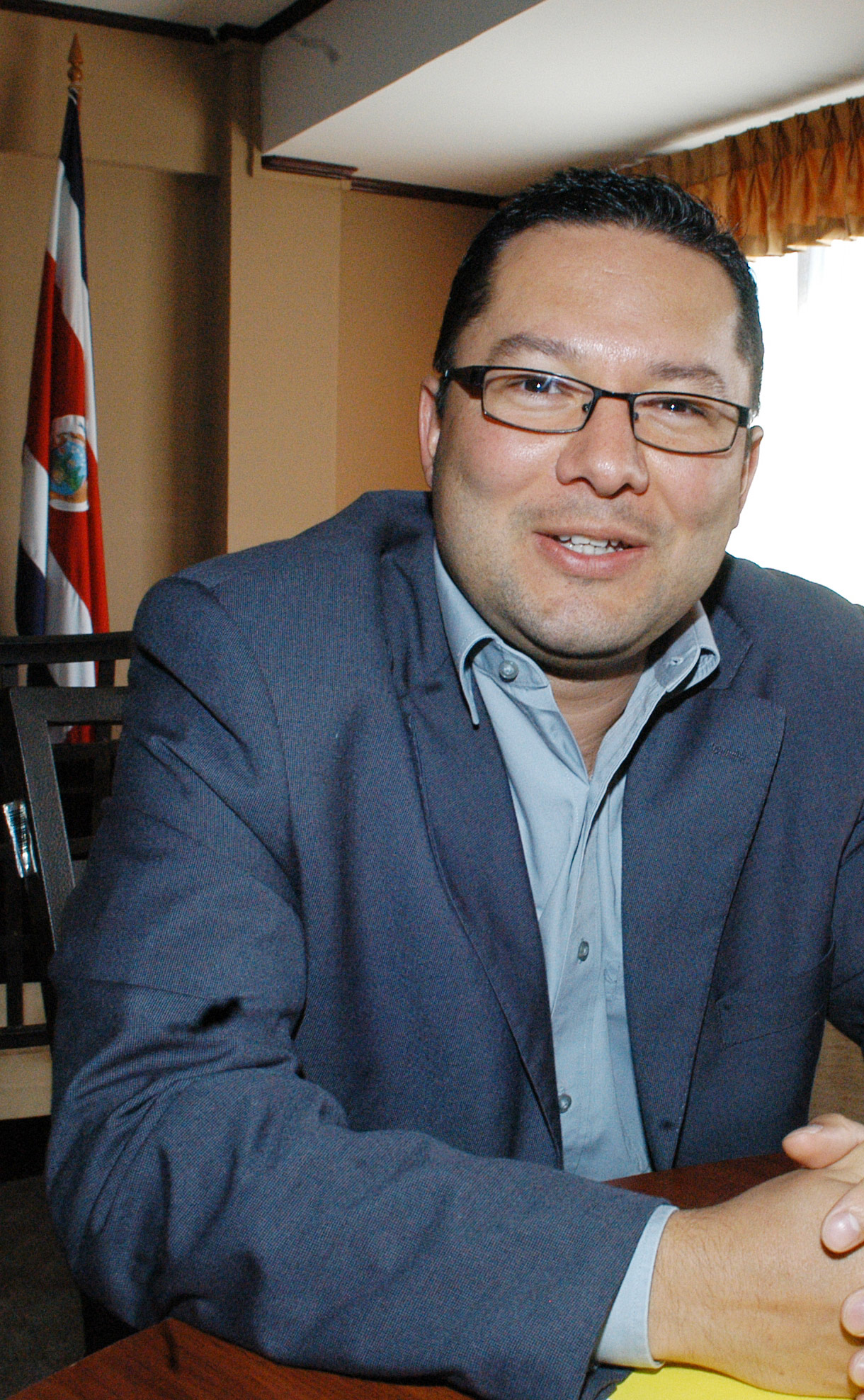


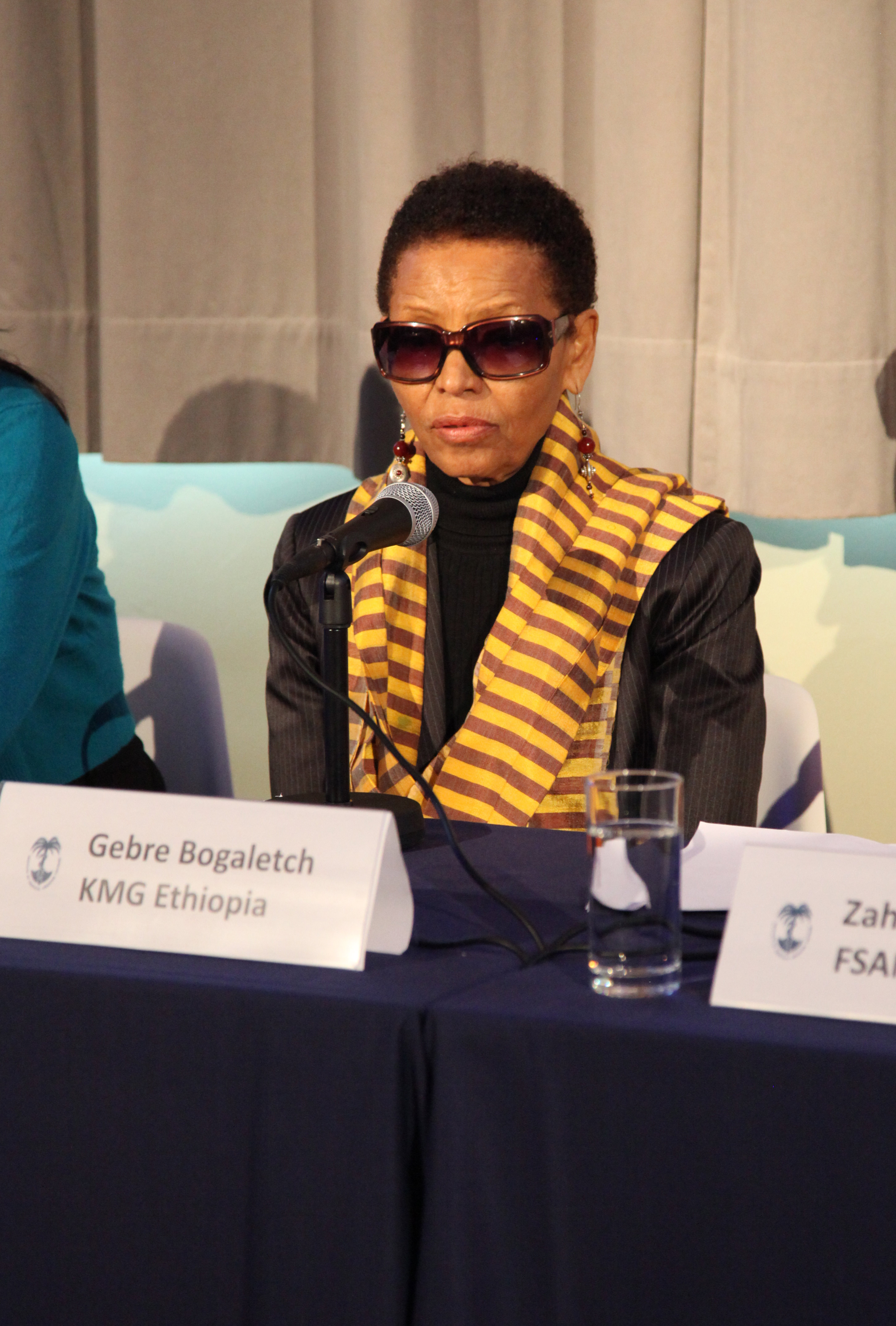
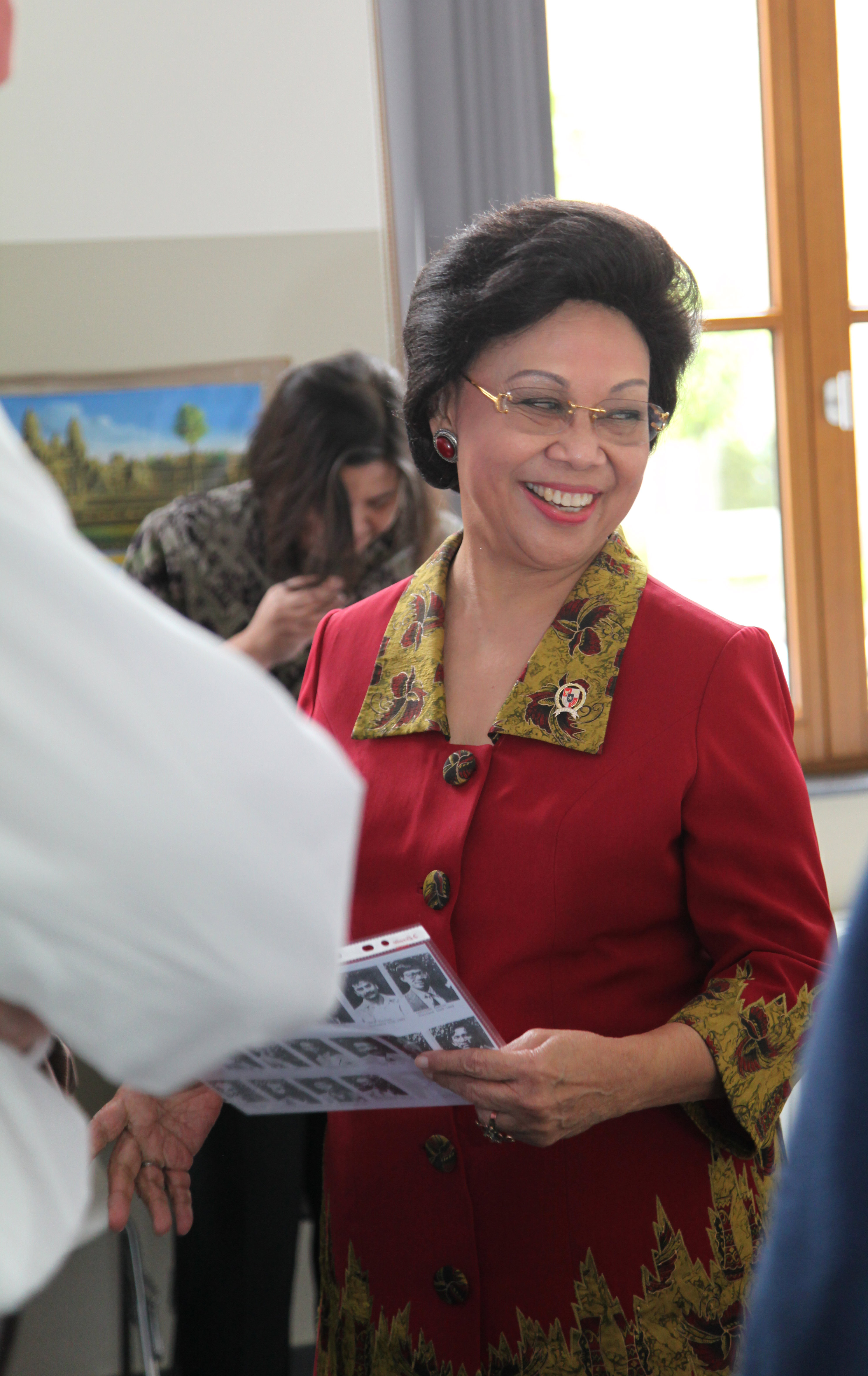
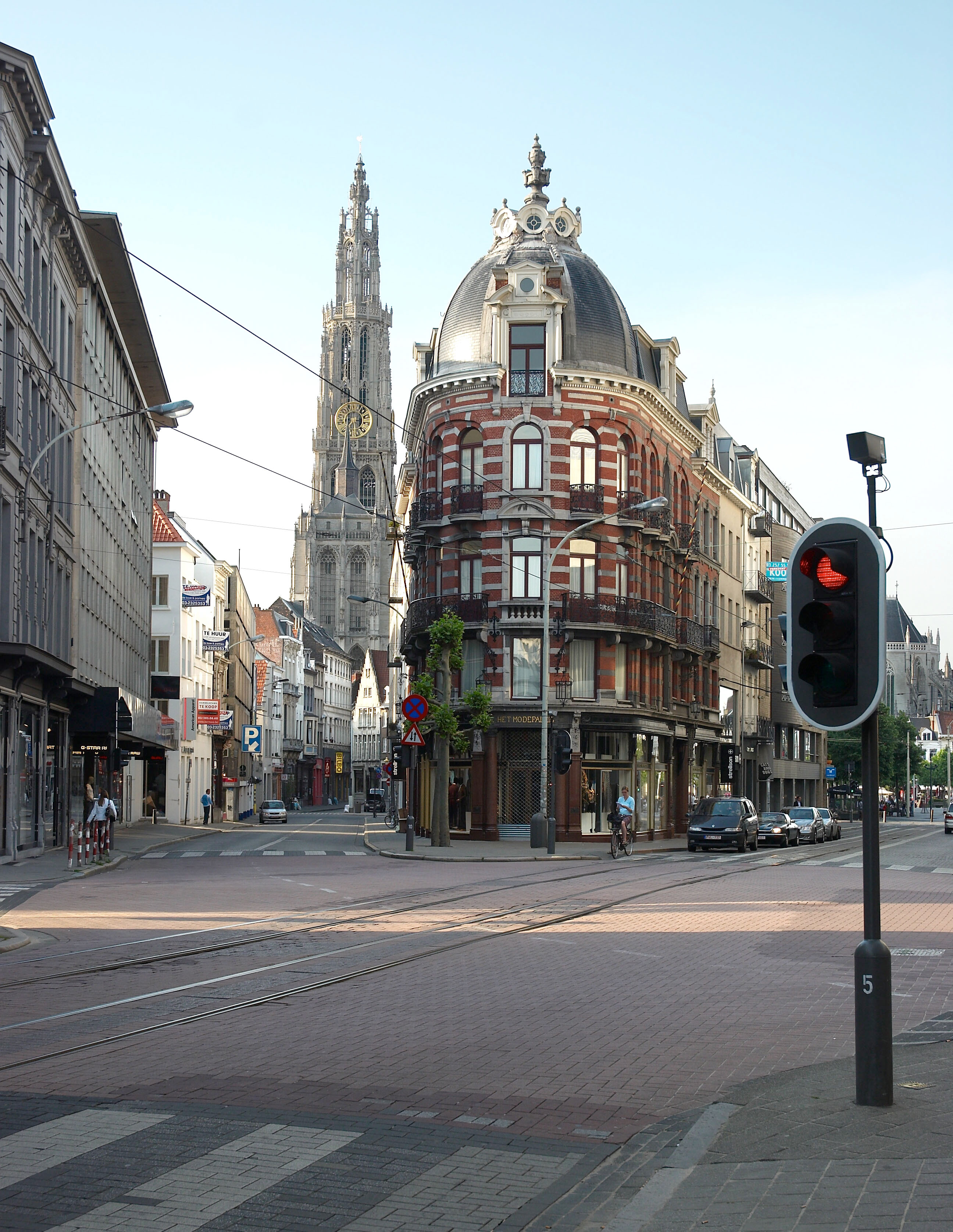
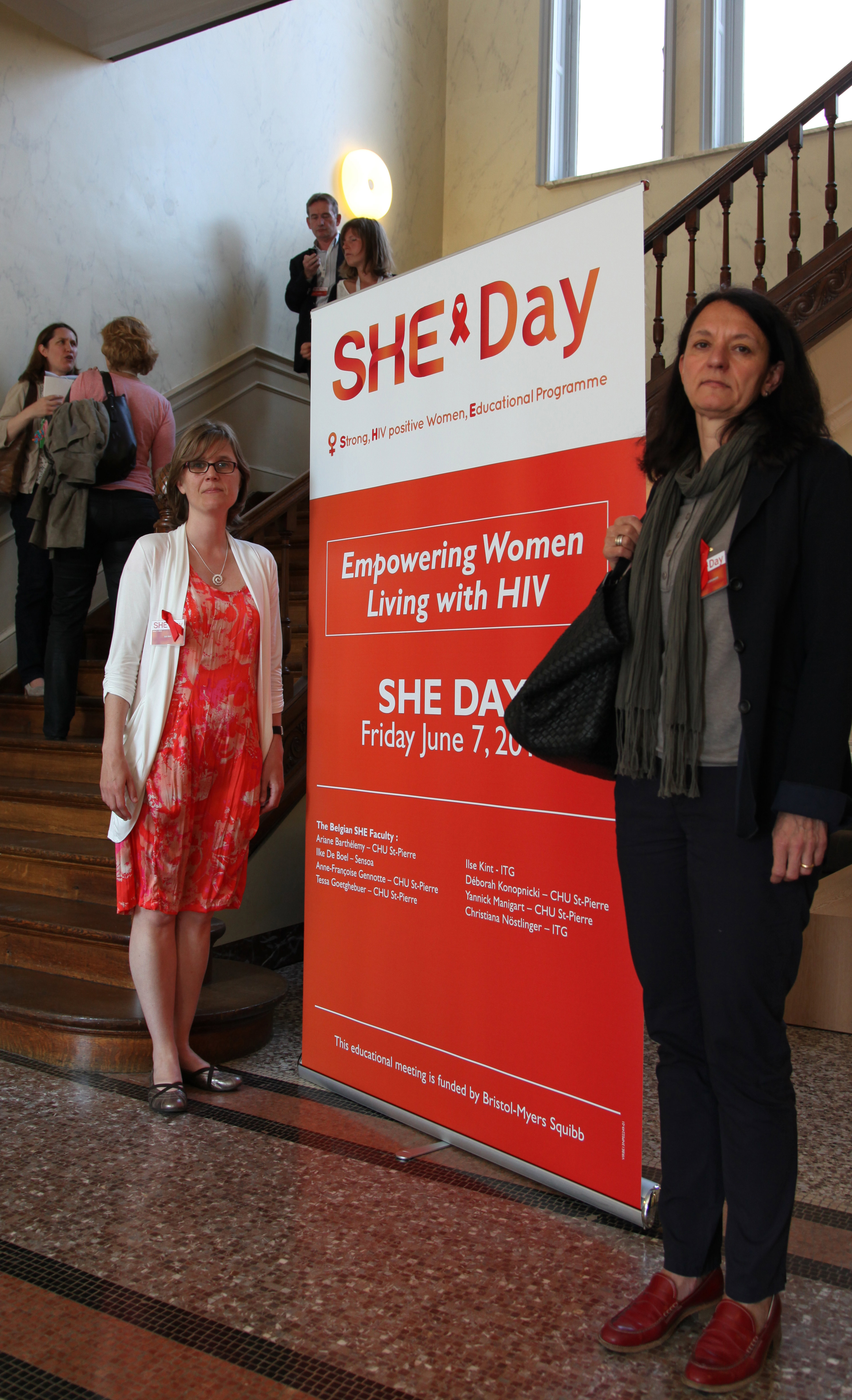
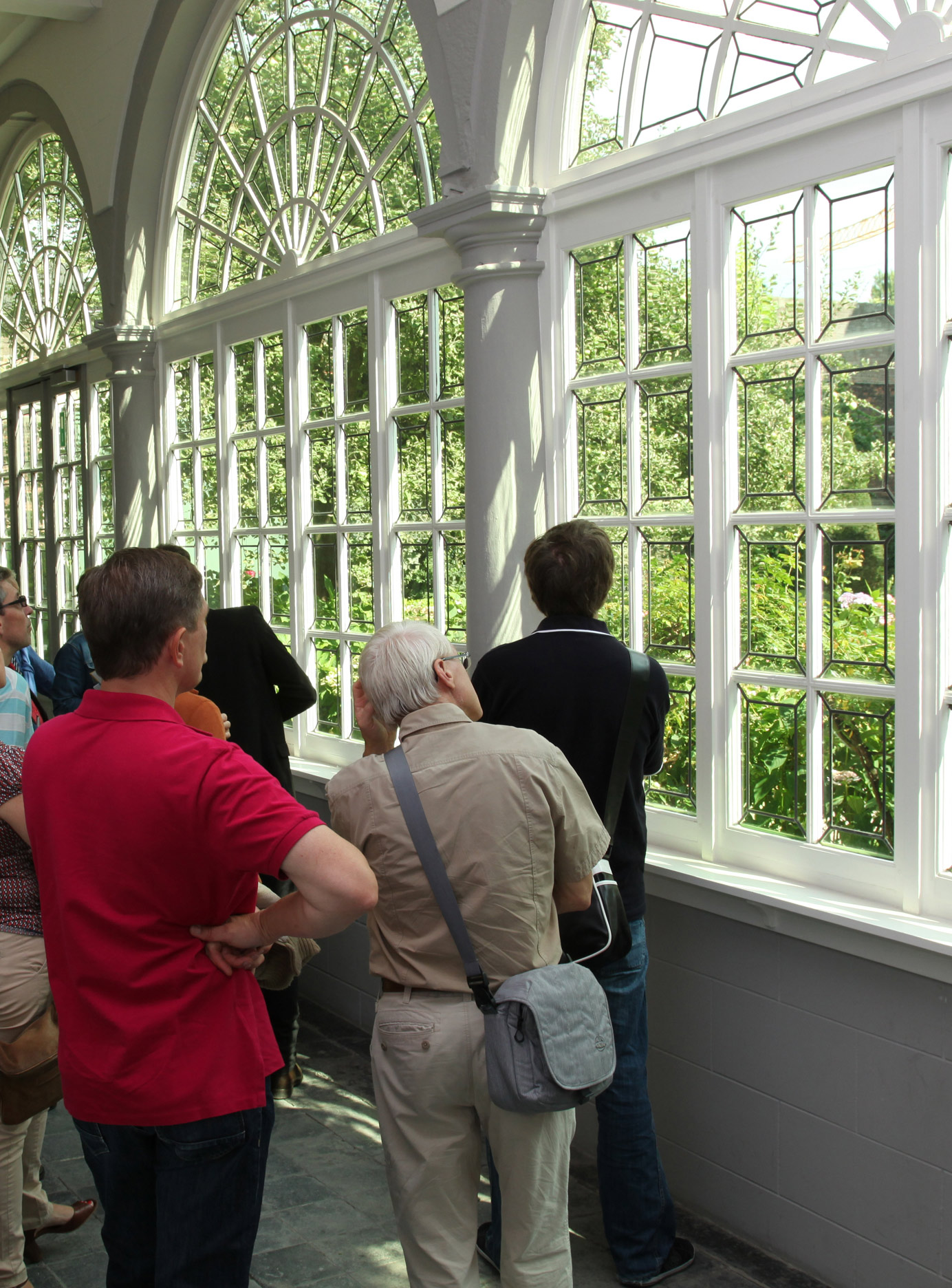
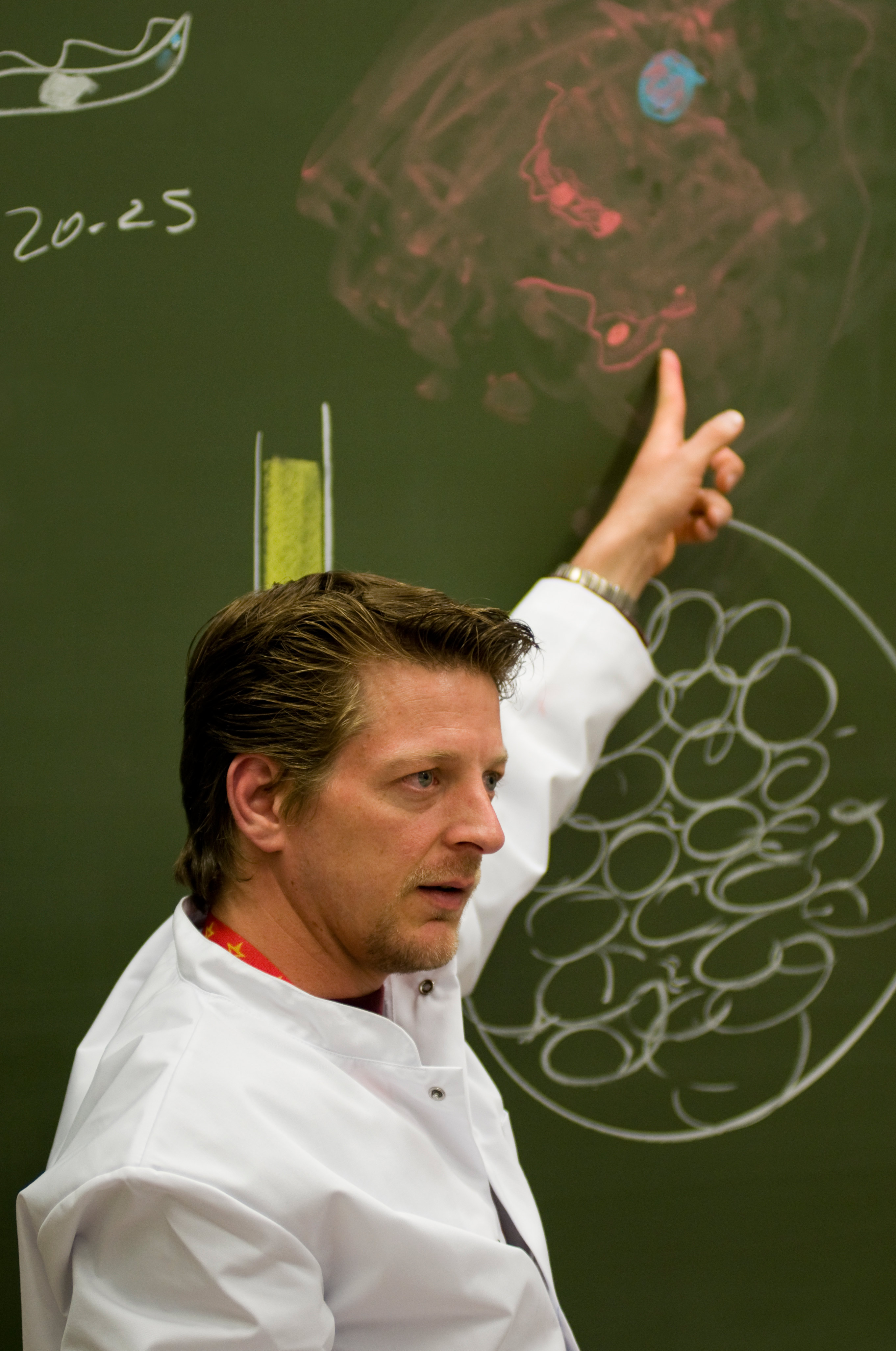
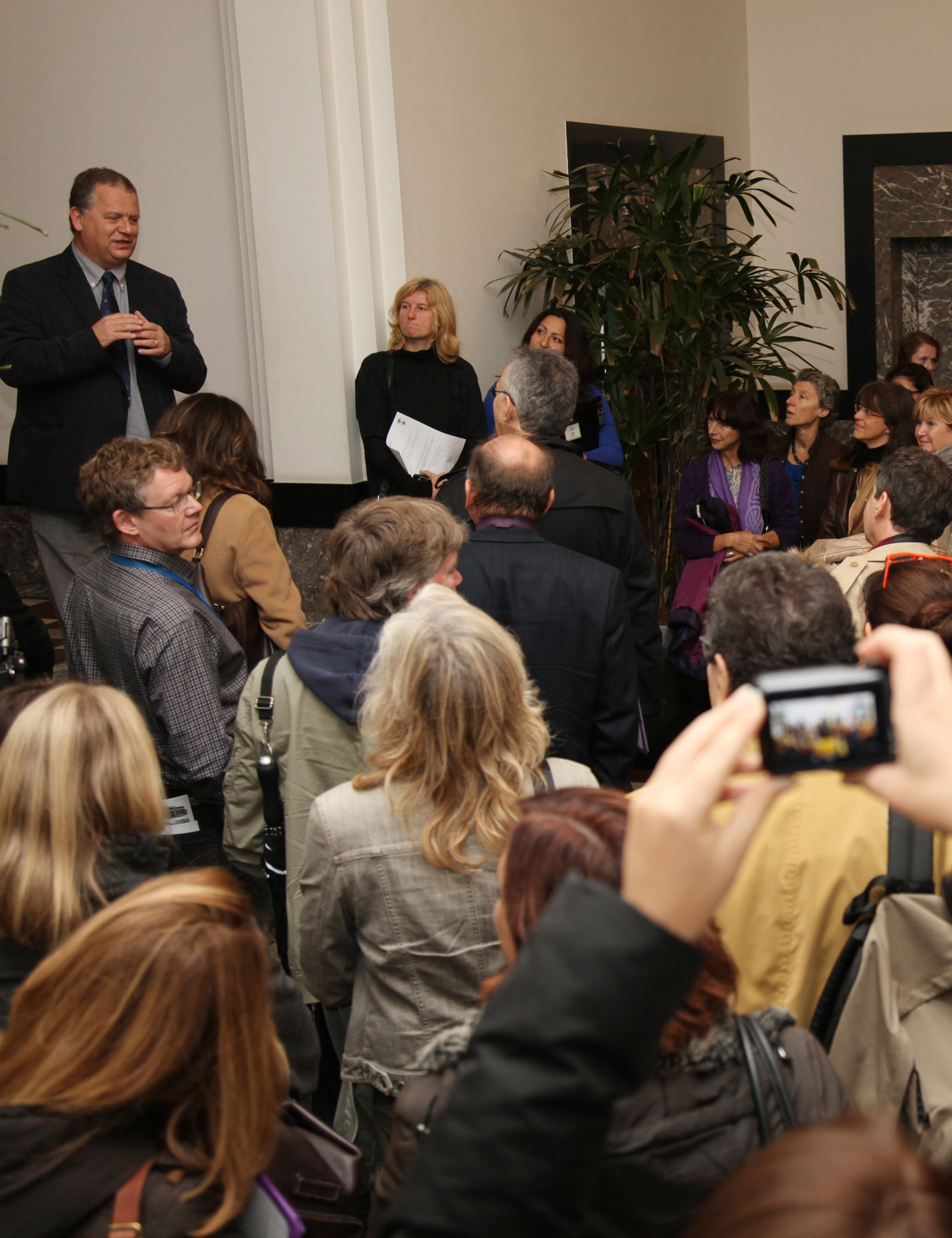

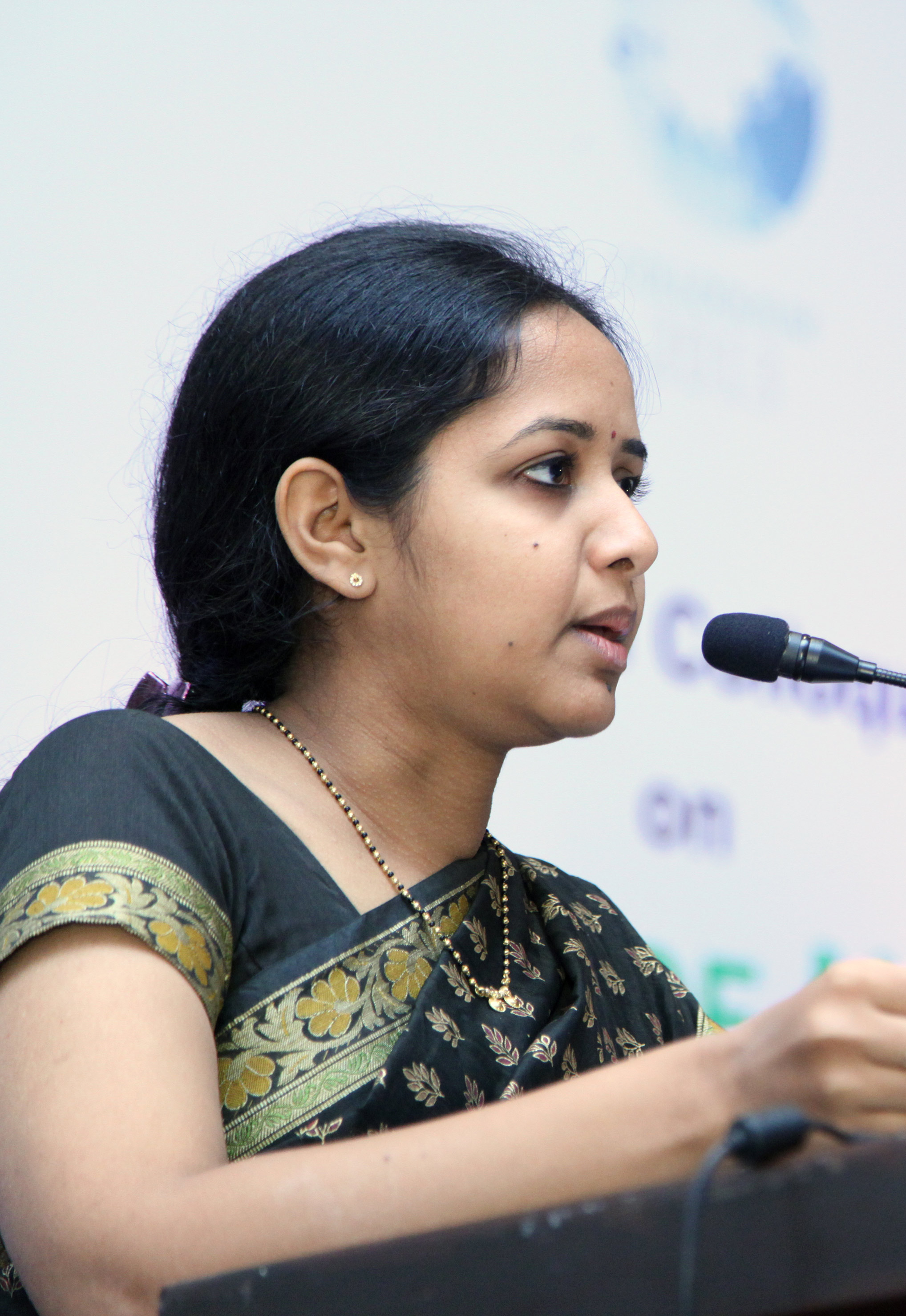
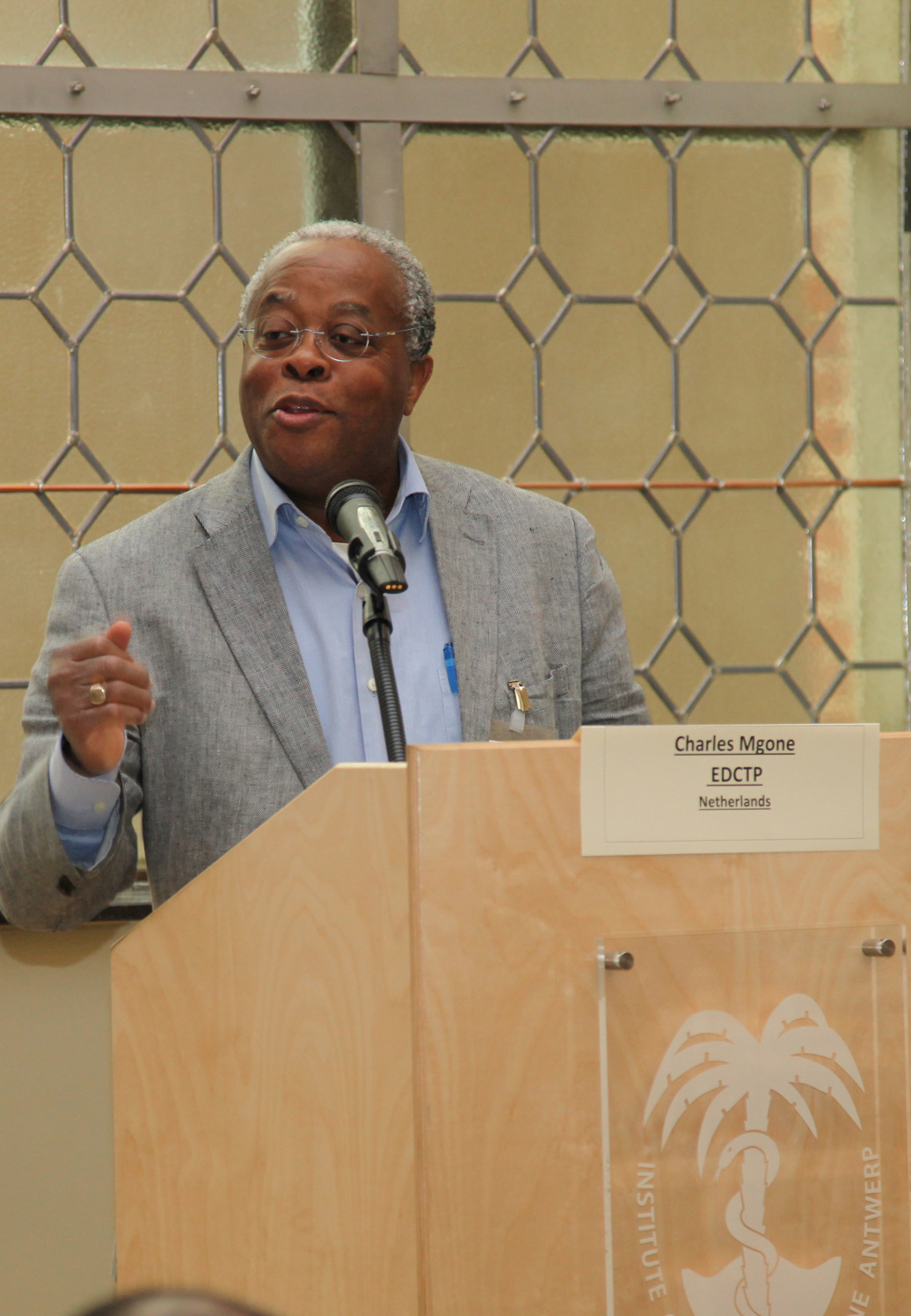
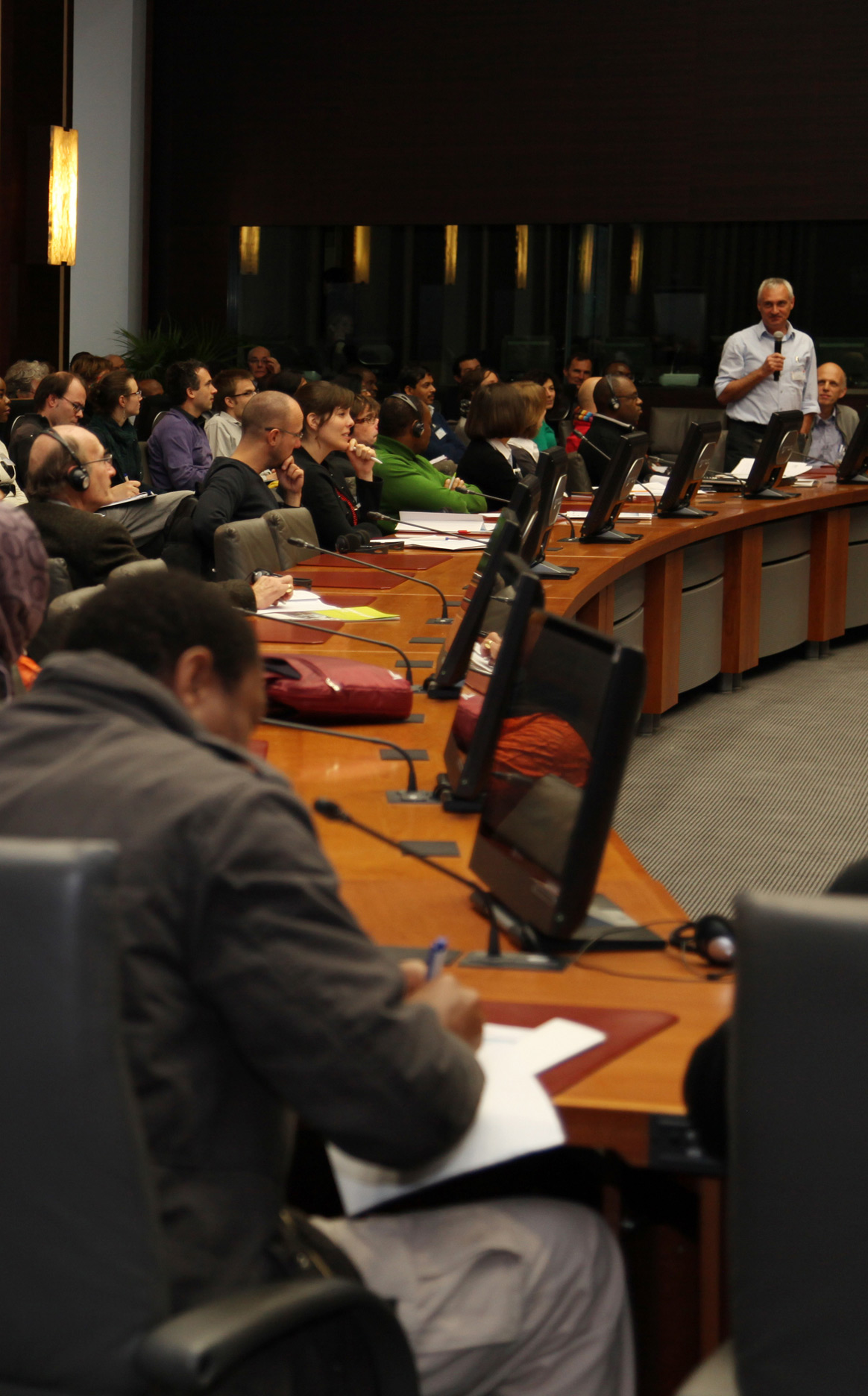
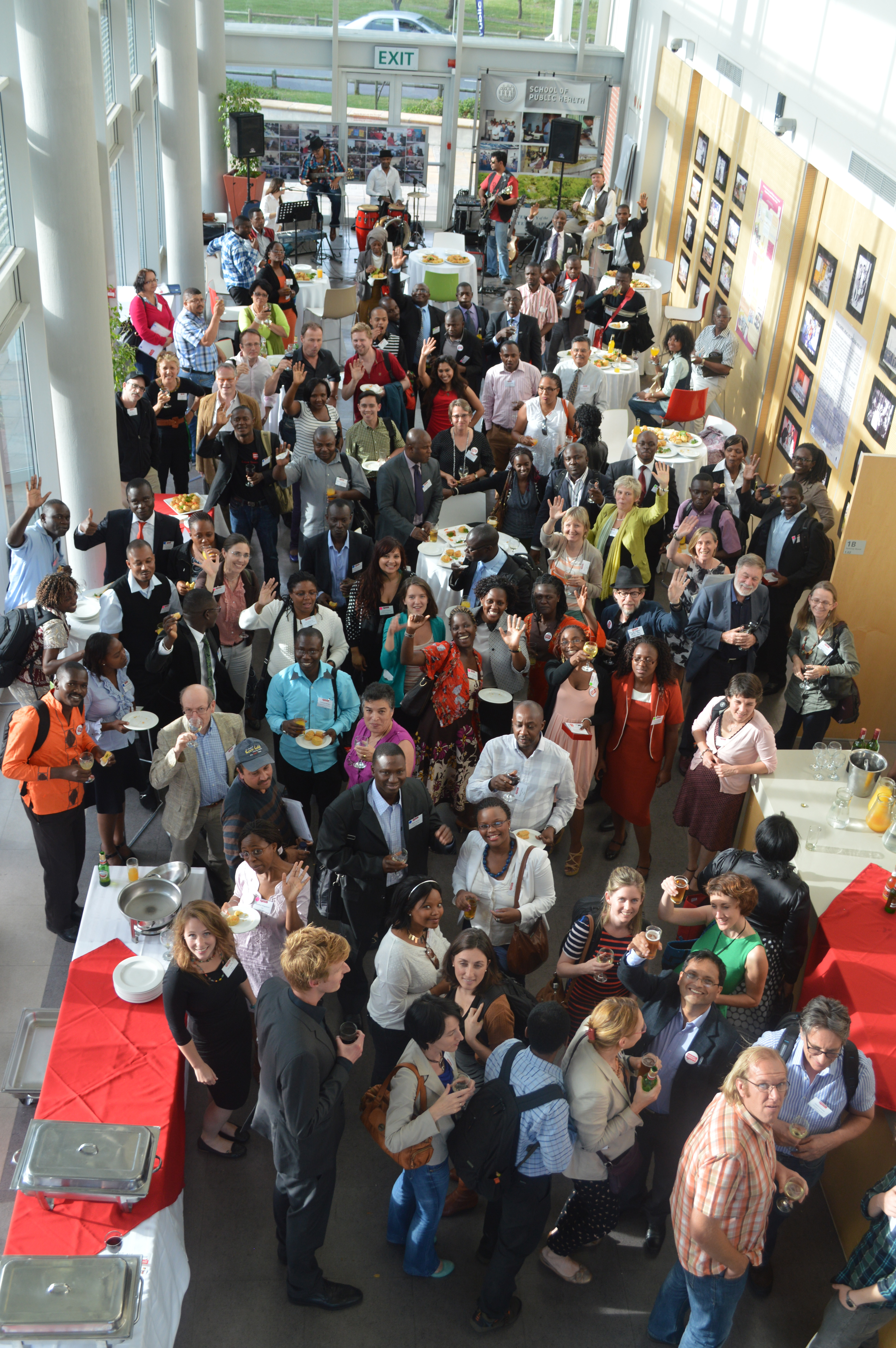
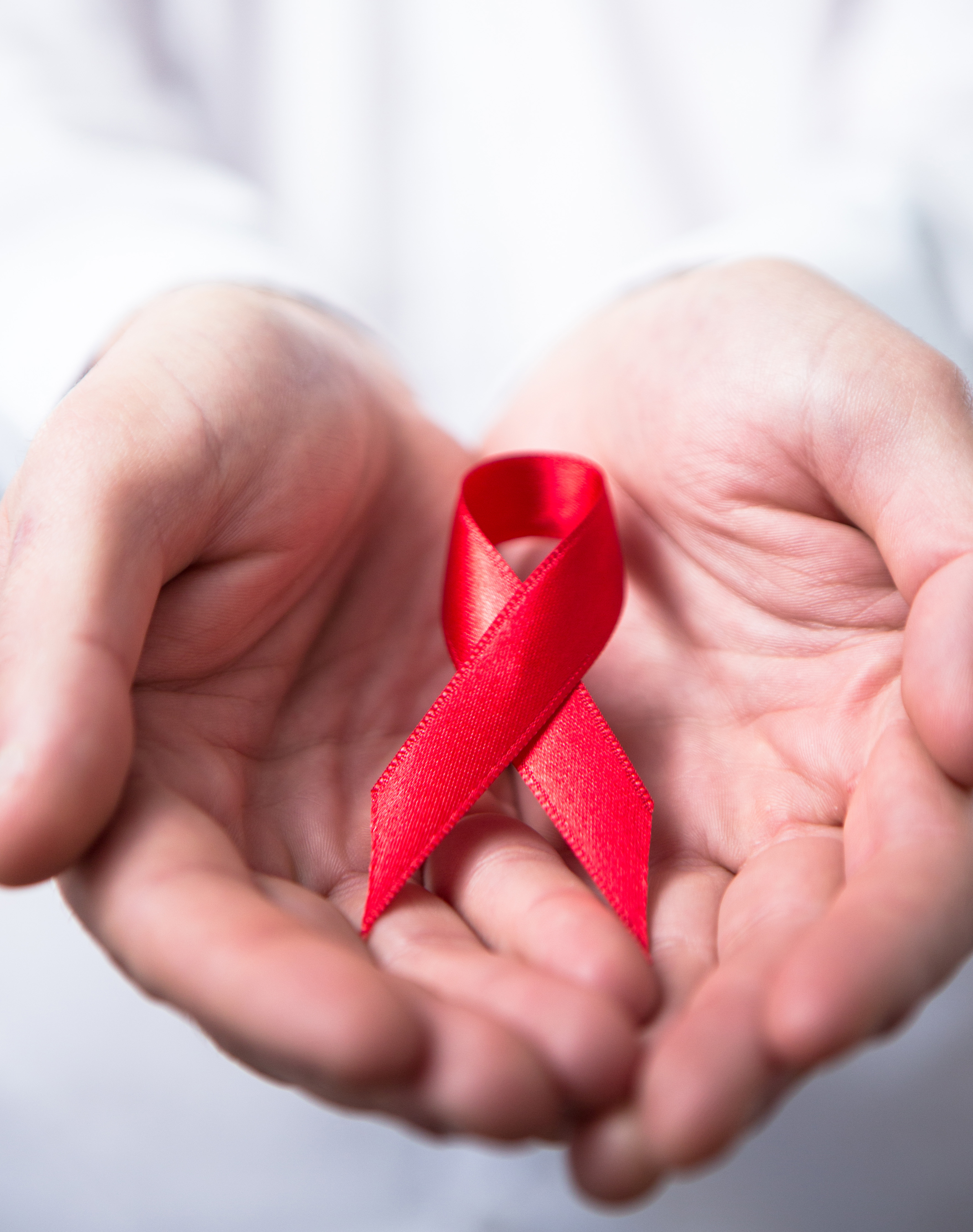
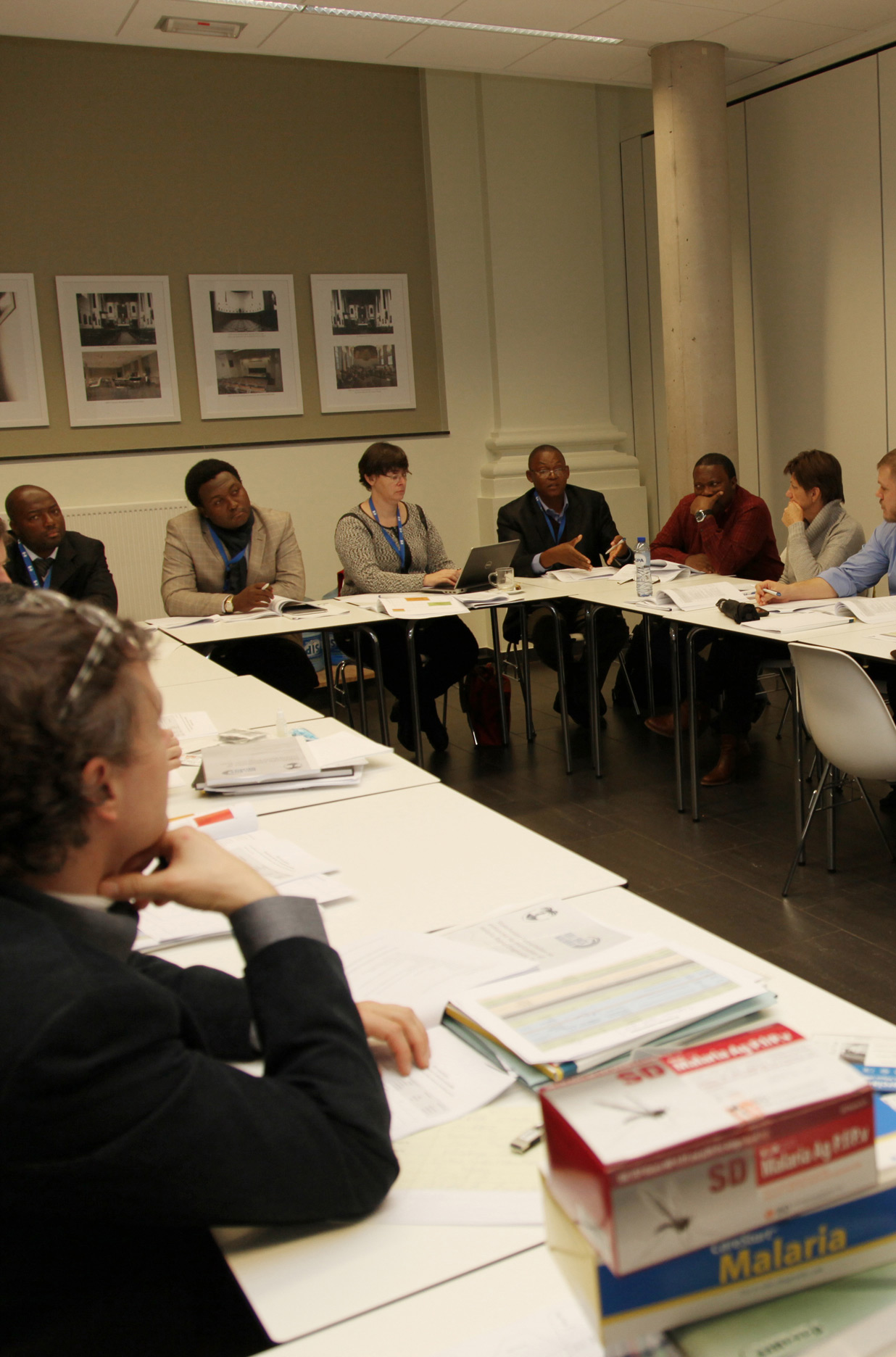
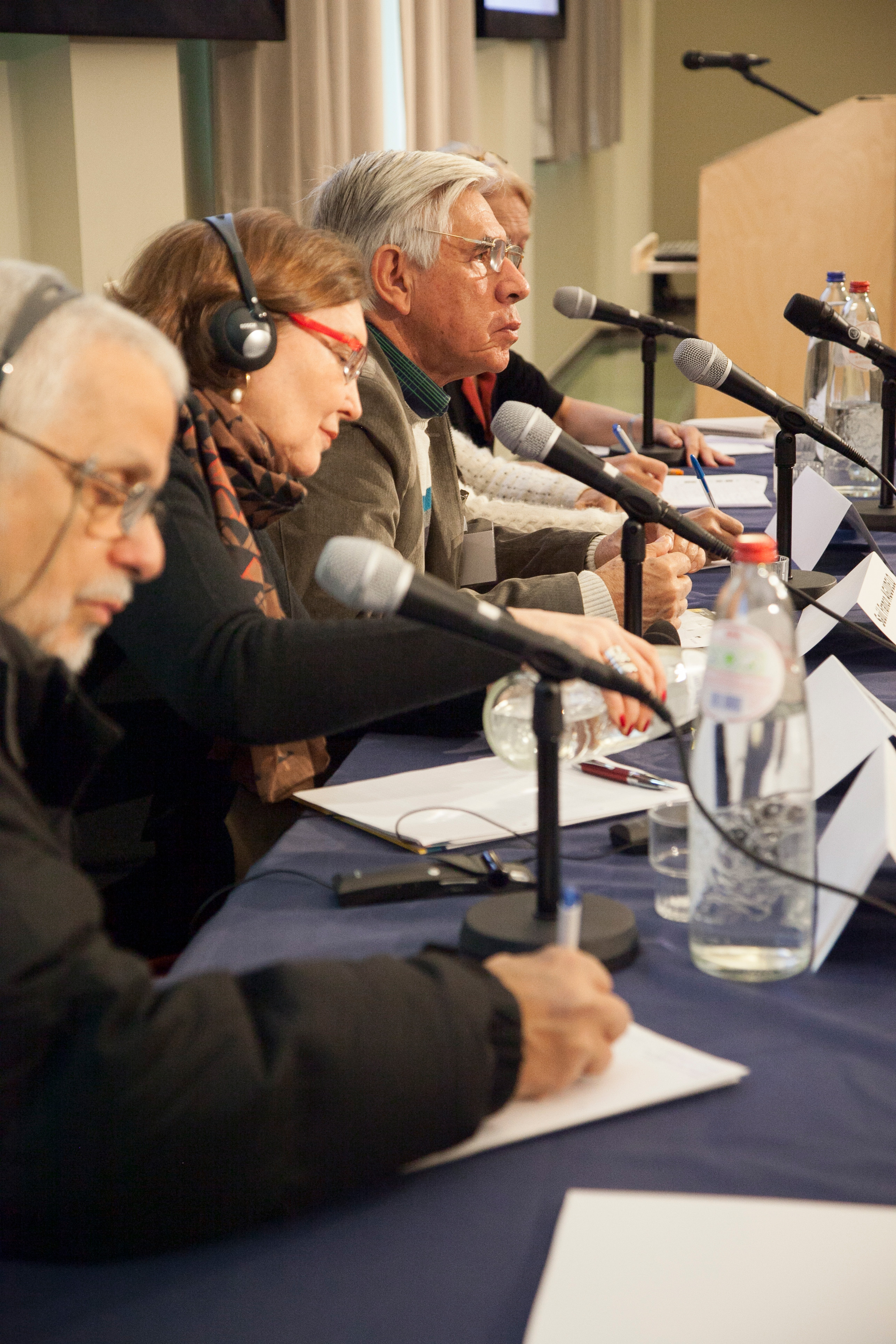


Thanks to the initiative of ITM anthropologist, Dr. Koen Peeters, ITM signed a memorandum of understanding with Nagasaki University in Antwerp, followed by a visit to Japan in 2014. The two institutions will collaborate in research and education. Since 2008, Koen Peeters has been teaching a course on Qualitative Research Methods for International Health at Nagasaki University.
Keilor Rojas-Jimenez, the Vice-Minister of Science, Technology and Telecommunications of Costa Rica, visited ITM as part of an official visit to Belgium to strengthen the ties between Costa Rica and Belgium in strategic areas that involve innovation, research and higher education.
Our motto for World Malaria Day was “using knowledge against malaria”. ITM is involved in innovative and multi-disciplinary research in worldwide partnerships to beat malaria. View our World Malaria Day information package, including a malaria infographic.
Production company Eyeworks and TV-channel VTM presented an ambitious project to the Flemish public: ‘Cordon’, a 10-episode series based on a fictitious virus breaking out in the city of Antwerp. ITM was asked to provide scientific and medical feedback for the series and some of the scenes where shot at the Institute itself. ITM took part in the project in order to raise awareness about the devastating impact of tropical and global infectious diseases. The series was televised in March 2014.
Dr. Gebre Bogaletch visited ITM the day after receiving the King Baudouin African Development prize for her leadership and determination to build on a remarkable personal journey to empower women in Ethiopia. Dr. Bogaletch is the co-founder of Kembatti Mentti Gezzimma (KMG) and established a true community-based movement for social change in her country.
In a debate organised by ITM’s Woman & Child Health Research Center (W&CHRC), Dr. Bogaletch talked about ways to address Female Genital Mutilation (FGM) and women’s rights, sharing experiences from Ethiopia and the African diaspora.
The Indonesian Minister of Health and ITM alumna, Dr. Nafsiah Mboi, gave a public lecture at ITM stressing the importance of health coverage systems. Originally trained as a pediatrician, Dr. Mboi earned a master’s degree in Public Health at ITM. In June 2013, she started a two-year term as Chair of the Global Fund and is dedicated to the fight against AIDS, tuberculosis and malaria. Through innovative research, ITM intends to contribute to the Global Fund’s goal to save millions of lives.
The Nationalestraat is a well-known main street in Antwerp. Located in the middle of the fashion district at the edge of the historical centre, the Nationalestraat is home to the Fashion Museum, numerous quaint boutiques, cafes, shops and the Institute of Tropical Medicine. After several months of being under construction, ITM joined Quartier National, an association of local businesses, in organising a grand re-opening festival for residents of Antwerp and beyond.
ITM is one of the founders of the new Belgian branch of the European ‘SHE’ programme. ‘SHE’ (Strong, HIV positive, Empowered Women) integrates the perspectives of women living with HIV and the physicians involved in their care. It aims at empowering female HIV patients and at educating health care providers to improve the care and life quality of women living with HIV. On Friday, 7 June, the first ‘SHE’ symposium took place in Brussels.
ITM is lucky be housed in pristine architecture, which includes a classical Art Deco building with a sunken garden and boasting unique architectural detail, as well as a former convent that now houses ITM’s Department of Public Health. Once a year, we open our doors to architecture and history enthusiasts. The 25th edition highlighted the best of the past 24 Open Heritage Days. This past Open Heritage Day, we welcomed over 1,300 visitors and provided them with an extra bit of Institute of Tropical Medicine history.
Traditionally, ITM inaugurates the academic year in September with a festive opening ceremony. Each year, around 500 researchers, medical doctors and nurses follow advanced courses at ITM.
Around 100 staff from the European Commission’s Directorate-General for Research visited ITM on their annual 'away day' to hear presentations and a discussion on our vision for international development and cooperation.
On 23 October, ITM’s new Board fo Directors was installed. Cathy Berx, governor of the Province of Antwerp, was re-confirmed as chair of the board.
In 2013, ITM’s flagship scientific event was organised by our Indian partner, the Institute of Public Health (IPH) in Bangalore, and ITM’s Department of Public Health. Over 200 participants from 30 countries gathered in Bangalore to discuss health care systems and neglected diseases. It was the third and final colloquium in a series about research on control of neglected infectious diseases, including zoonoses (diseases transferred from animals to humans). Dr. Vijayashree HY and David Hendrickx wrote up reports of all scientific sessions on this blog.
The European & Developing Countries Clinical Trials Partnership (EDCTP) meeting in Antwerp was co-hosted by ITM. The meeting of 56 participants from research institutions, funders and international organisations was part of preparations for the second EDCTP programme, which will start in 2014 as part of the European research framework programme Horizon 2020.
The 2013 annual seminar of Be-cause health, a pluralistic platform connecting Belgian actors in international health, was dedicated to “Health-y answers to complexity”. Participants discussed how to improve health care in the context of complex health systems, which are constantly changing and interacting with the surrounding environment. The meeting held at the Egmont Palace was organised by ITM in collaboration with Medicus Mundi International. ITM is the coordinator of the Be-cause health platform.
The 2013 Emerging Voices training and symposium took place in Cape Town. It provided a platform for exchange between 50 young researchers working in HIV research on the African continent so that their ideas and opinions could emerge. The event was organised jointly by ITM and the University of Western Cape (UWC)’s School of Public Health, and took place before the biannual AIDS in Africa Conference (ICASA) started in Cape Town.
Just prior to World AIDS Day, ITM’s Wim Vandenberghe received a PhD title for his research into the health of sexual minorities (people whose sexual orientation is not heterosexual) in Belgium. According to his study, cross-border prevention is essential in the fight against the HIV epidemic.
At a meeting jointly organised by the Roll Back Malaria Partnership and ITM, manufacturers and implementers of rapid diagnostic tests (RDTs) agreed upon a set of requirements for these tools in an effort to improve use and boost the scaling up of malaria testing. RDTs are used to diagnose malaria in the field, but among other shortcomings, variations in product features have led to test failures. Discussions at the meeting were based on a two-year study led by ITM’s Jan Jacobs (see also research highlights in this report).
The conference “Health care delivery and financing: non-commercial goods!” was a unique exercise in South-North technical cooperation whereby Latin American scientists shared lessons learned from 30 years of commercially driven health policies and financing to inform policy making in Europe.
The conference was jointly organised by ITM’s Department of Public Health and the SESA (Centre d’études socio-économiques de la santé, Catholic University of Louvain), under the auspices of the International Association of Health Policy.
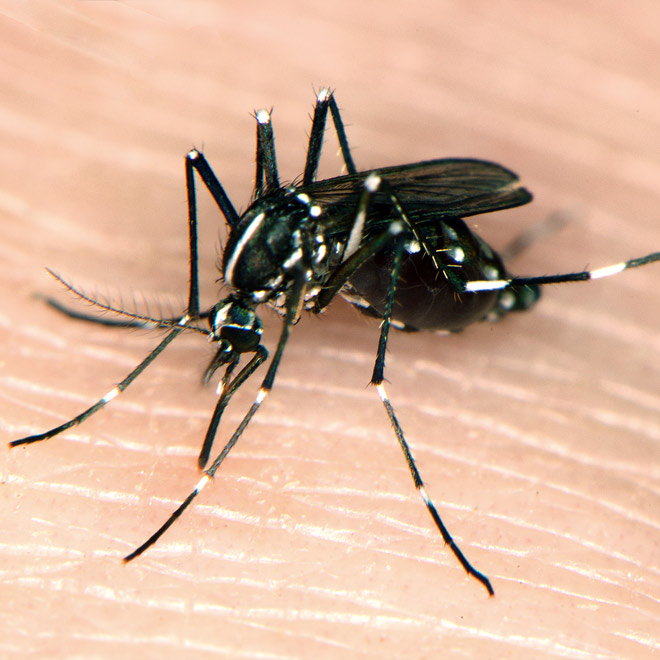
The Asian tiger mosquito (Aedes albopictus) was spotted in Belgium for the first time in 2000 and was seen again in 2013. ITM researchers have been keeping a close eye on a population of the exotic species at a tyre import company near the port of Antwerp. The tiger mosquito can carry dangerous viruses, but has not yet been able to survive winters in our region.
Aedes albopictus has a preference for human blood and is highly aggressive. It originated in South-East Asia, but has already invaded America and Southern Europe and has now also reached Belgium. As one of the 100 most invasive species, the tiger mosquito travels around the world via the import/export of goods, particularly in used tyres and lucky bamboo (Dracaena braunii) plants. Water that remains in the tyres, or that is used for transporting plants when they are shipped, forms an ideal habitat for the eggs laid by these mosquitoes.
The likelihood that the imported tiger mosquitoes carry viruses like dengue or chikungunya is very low. These viruses typically enter the country by means of an infected traveller, who in turn may become the source of an indigenous infection. For transmission of the virus to occur, the virus and the tiger mosquito need to be present in the same place at the same time.
ITM’s on-going investigation is part of a surveillance project of exotic mosquitoes, biting midges and ticks, funded by the Federal Agency for the Safety of the Food Chain (FAVV). The population of Asian tiger mosquitoes in the port of Antwerp was found to be active when last inspected in October 2013. This spring, ITM researchers will check whether their eggs have survived. Shipments of lucky bamboo plants that enter our country will continue to be monitored throughout 2014.
ITM believes that a long-term surveillance plan at potential Belgian points of entry is needed. However, the use of biological control agents (biocides), as an additional control measure to combat the tiger mosquito, is currently illegal in Belgium. And procuring an exemption from the Biocides Act to legalise them will take time. Nevertheless, the registration and use of biological control agents, in accordance with EU legislation, is essential to prevent the spread of the tiger mosquito, and thus to prevent outbreaks of currently incurable diseases in the future.
Total income: € 51,5 million
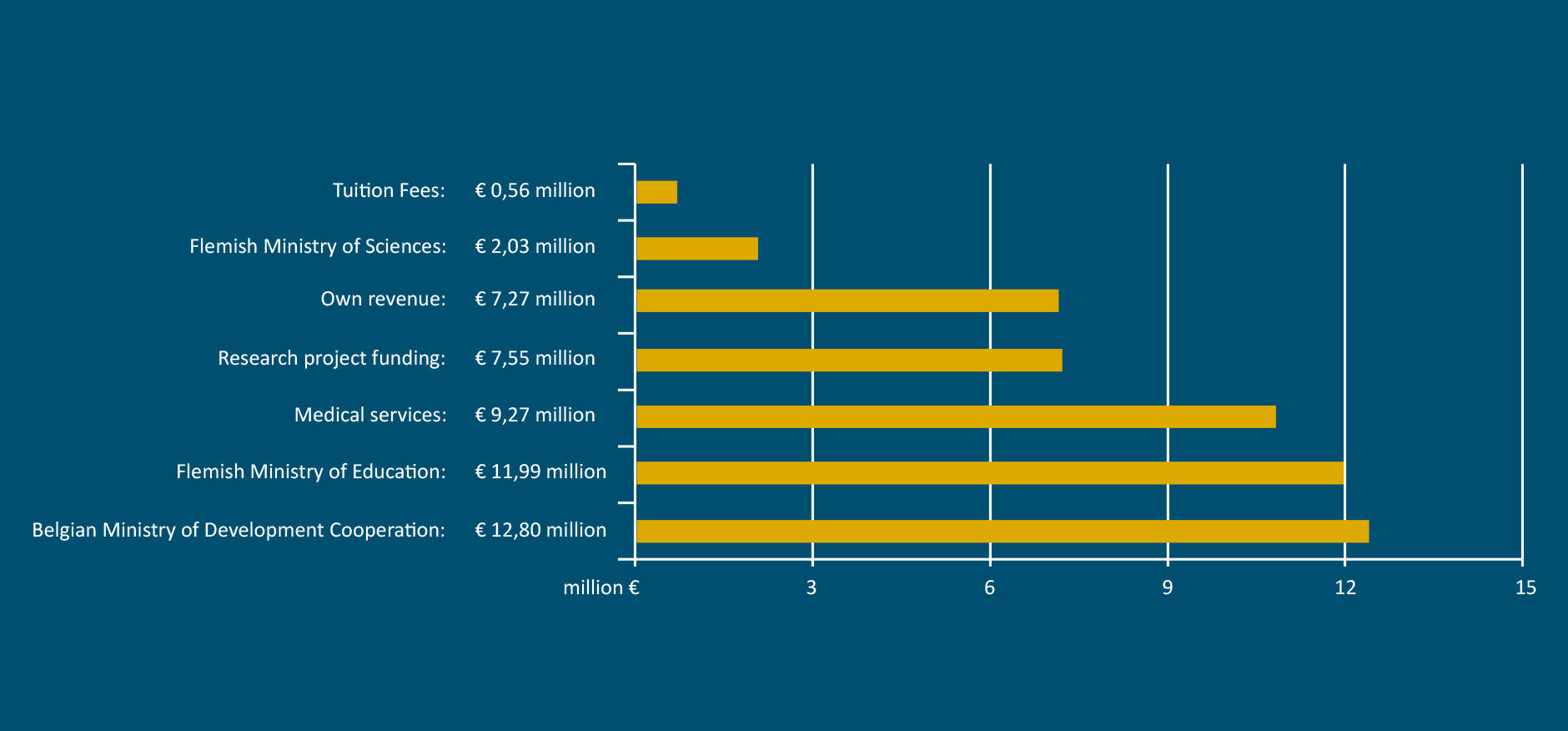

In 2013, Katja Polman was appointed professor. Her research within the Unit of Medical Helminthology focuses on the (eco-)epidemiology of human worm infections, such as schistosomiasis and soil-transmitted helminthiasis. Current emphasis is on mixed and co-infections and how these shape disease epidemiology and control. Her team also studies helminth-nutrition interactions and their role in chronic diseases.
ITM also appointed two promising tenure-track professors in 2013. These positions are intended for early-career postdoctoral scientists who can develop their curriculum over a period of five years before receiving full tenure.
Bruno Meessen will continue his research on innovative health financing as tenure-track Professor and Head of the Unit of Health Economics. His team works on innovative strategies at the population and system levels with a focus on co-developing, documenting, supporting and disseminating new systemic solutions. Meessen will build on acquired expertise in specific domains of health care financing, such as performance-based financing, but will also expand the scope of his research to include innovative organisational models for rapidly changing societies.
Maxime Madder was appointed tenure-track Professor and Head of the Unit of Veterinary Entomology, which studies vectors that are related to animal and zoonotic diseases. Current research focuses on the invasion of the Rhipicephalus microplus tick in West-Africa and invasive vector species, like the tiger mosquito, in Belgium. The unit also studies the ecology, biology and vector competence of insects related to the outbreak of nodding syndrome in Africa.
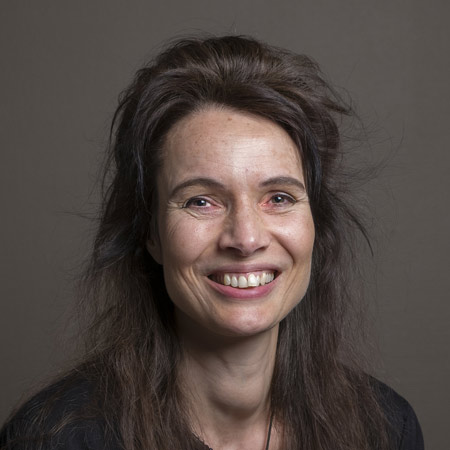

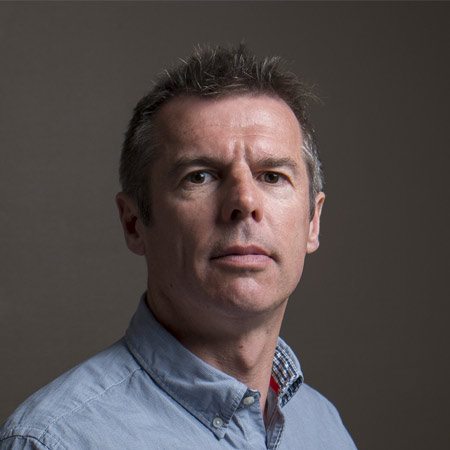
Composition on 23 October 2013
Ms. Cathy Berx (*)
Governor of the Province of Antwerp
Appointed by the Province of Antwerp
Mr. Alain Verschoren (*)
Appointed by the University of Antwerp (UA)
Ms. Minne Casteels (*)
Appointed by KU Leuven
Ms. Anne Van Autreve (member since 18 December 2013)
Appointed by the Flemish Ministry international Flanders
Mr. Patrick De Baetselier
Appointed by the Vrije Universiteit Brussel (VUB)
Ms. Linda De Kock
Appointed by the Flemish Ministry of Education and Training
Ms. Myriam De Spiegelaere
Appointed by the Conseil Interuniversitaire de la Communauté Française
Mr. Dirk Dewolf (member since 18 December 2013)
Appointed by the Flemish Ministry of Welfare, Public Health and Family
Ms. Kathleen D'Hondt
Appointed by the Flemish Ministry of Economy, Foreign Policy, Agriculture and Rural Policy
Mr. Bruno Gryseels (*)
Director of the Institute of Tropical Medicine in Antwerp
Ms. Liesbeth Homans
Appointed by the city of Antwerp
Mr. Frank Monteny (member since 18 December 2013)
Appointed by the Federal Ministry of Science Policy
Mr. Peter Moors
Appointed by the Federal Public Service of Foreign Affairs, Foreign Trade and Development Cooperation, Directorate-General Development Cooperation and Humanitarian Aid
Mr. Jan Phillippé (*)
Appointed by the Ghent University (UG)
Mr. Koenraad Vandewoude (member since 18 December 2013)
Appointed by the Federal Ministry of Public Health
Mr. Luc Bertrand (member since 8 Januari 2014)
Managing Director of Ackermans & van Haaren nv
Appointed by the Board of Governors
Mr. Karel Baert (*) (member since 8 Januari 2014)
Partner Egon Zehnder International
Appointed by the Board of Governors
Mr. Ajit Shetty (member since 26 Februari 2014)
former Chair of the Board of Governors of Janssen Pharmaceutica
Appointed by the Board of Governors
Ms. Elies Van Belle (member since 26 Februari 2014)
Medical advisor of Memisa
Appointed by the Board of Governors
Mr. Johan Dhondt (**)
Chairman of the College of Government Commissioners
Government Commissioner at the Vrije Universiteit Brussel, the Universitaire Associatie Brussel, the Brussels Faculty for Protestant Theology and the Institute of Tropical Medicine in Antwerp
Appointed by the Flemish Minister of Education, Youth, Equal Opportunities, and Brussels
Ms. Lieve Schueremans (**) (since 18 December 2013)
General Manager of the Institute of Tropical Medicine in Antwerp
Appointed by the Board of Governors
Mr. Tom Koyen
Appointed by the administrative and technical staff of the Institute of Tropical Medicine in Antwerp
Mr. Werner Soors
Appointed by the assisting academic staff of the Institute of Tropical Medicine in Antwerp
Mr. Bart Criel
Appointed by the academic staff of the Institute of Tropical Medicine in Antwerp
(*) Member of the Bureau
(**) Observer in the Bureau
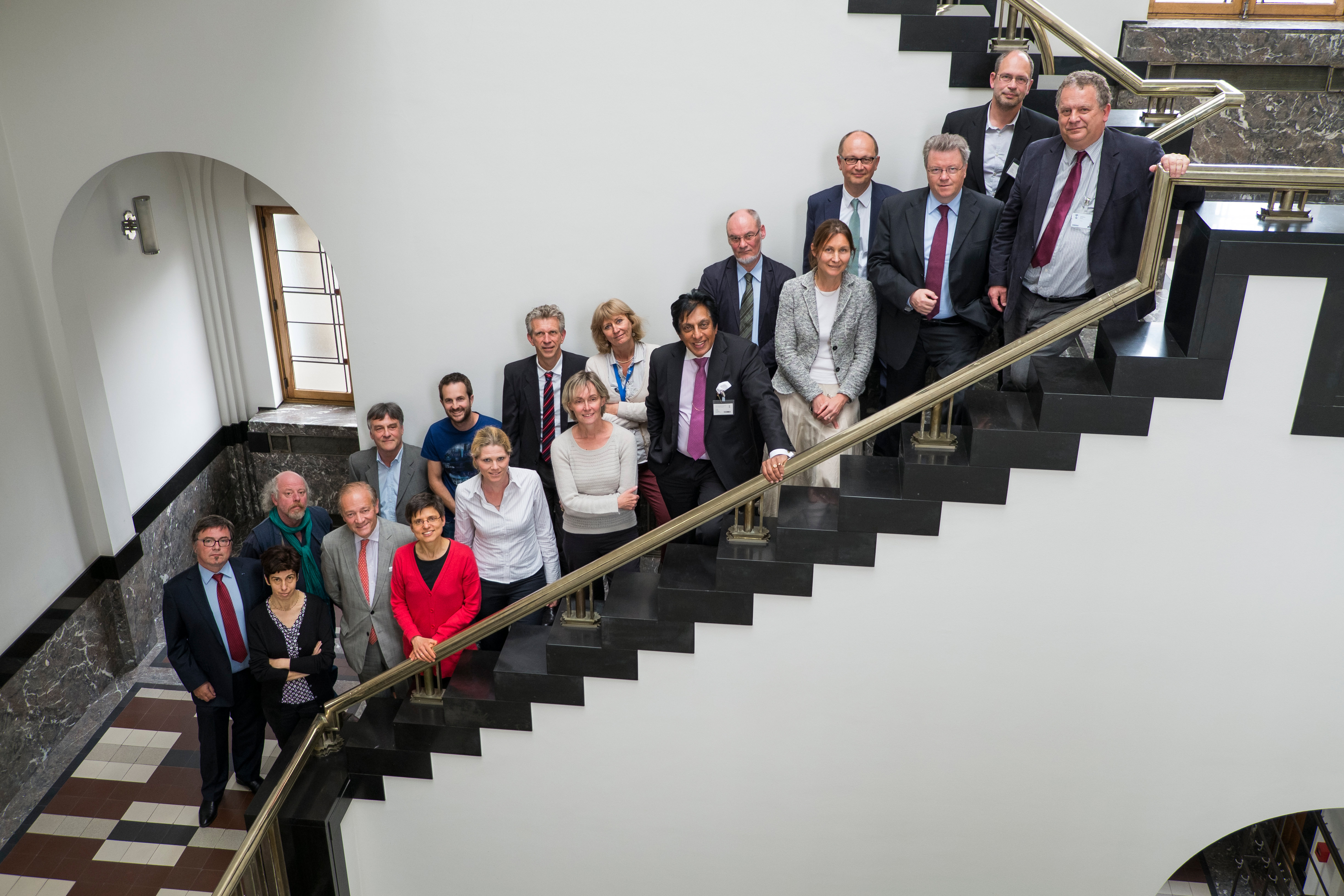

You can contribute to a neglected medical science and the health of billions of people by donating to the Institute of Tropical Medicine or by including us in your will.
www.itg.be/mycontribution or call +32 3 247 65 98
IBAN: BE 38 2200 5311 1172 • BIC/SWIFT: GEBABEBB
Ackermans & van Haaren NV • Agence Nationale des Recherches sur le Sida (ANRS) • Antwerp Dinner Foundation • Artsen zonder Grenzen / Médecins sans Frontières • Belgische Technische Coöperatie (BTC/CTB) • Bill & Melinda Gates Foundation • Centrum voor Informatie en Samenlevingsopbouw vzw (CISO) Stad Antwerpen• Conrad, USA • Cordaid • Epicentre • European Commission • European & Developing Countries Clinical Trials Partnership (EDCTP) • Family Health International (FHI) • Federaal Agentschap voor de Veiligheid van de Voedselketen (FAVV) • Federaal Wetenschapsbeleid (Belspo) • Foundation for Innovative New Diagnostics (FIND) • Fonds voor Wetenschappelijk Onderzoek – Vlaanderen (FWO) • INBEV-Baillet Latour Fund • Institute of Medical Science, India • International Diabetes Foundation • International Livestock Research Institute (ILRI) • The International Union against Tuberculosis and Lung Diseases (UNION) • Médecins du Monde • Equilibres et Populations • MRC The Gambia • Wemos • Dormeur Investment Service Ltd • Gilead Sciences Europe • National Institute of Health (NIH) • Medicus Mundi Belgium • National Tuberculosis Program, Pakistan • Provincie Antwerpen • Rijksinstituut voor Ziekte- en Invaliditeitsverzekering (RIZIV) • Stad Antwerpen • Tibotec • The World Bank • UBS Foundation • United Nations Population Fund (UNFPA) • Unicef • Instituut voor de Aanmoediging van Innovatie door Wetenschap en Technologie in Vlaanderen (IWT) • Vlaamse Interuniversitaire Raad (VLIR) • Vlaams Agentschap Innovatie, Overheidsinvesteringen, Media & Armoedebestrijding • Vlaams Agentschap voor Internationale Samenwerking (VAIS) • Vlaams Ministerie voor Welzijn • Vlaams Agentschap Zorg & Gezondheid • World Health Organization (WHO) • and many other organisations, companies and individuals.
Bruno Gryseels
Roeland Scholtalbers
Eline Van Meervenne, Nico Van Aerde
Patriek Desplenter, Stefan De Pauw, San-Ho Correwyn
Patriek Desplenter, Christoffel De Gruyter
Mike Claes, Stefan De Pauw, Lies Huyskens, Roeland Scholtalbers
The Institute of Tropical Medicine in Antwerp
Foundation of Public Utility (N. 0410.057.701)
Nationalestraat 155,
2000, Antwerp, Belgium
www.itg.be
www.twitter.com/ITMantwerp
www.facebook.com/ITGITMantwerp
www.twitter.com/TropischITG
General enquiries: +32 3 247 66 66 info@itg.be
Fax: +32 3 216 14 31
Communication: +32 3 324 707 29 communicatie@itg.be
Library: +32 3 247 62 40 bib@itg.be
Medical services: +32 3 247 65 65
Medical emergencies: +32 3 821 30 33 (University of Antwerp)
Travel-info fax: +32 0 900 35 106
Travelphone: +32 0 900 10 110
www.travelhealth.be
The entire content of this report is protected by copyright, full details of which are available from ITM.
Images in this report were taken with full understanding, participation and permission of the subjects. The images truthfully represent the depicted situation both in its immediate and in its wider context and so as to improve public understanding of our work, as well as the realities and complexities of poverty-related diseases and health care.
Contact: Roeland Scholtalbers, Head of Communications, rscholtalbers@itg.be, +32 32470729